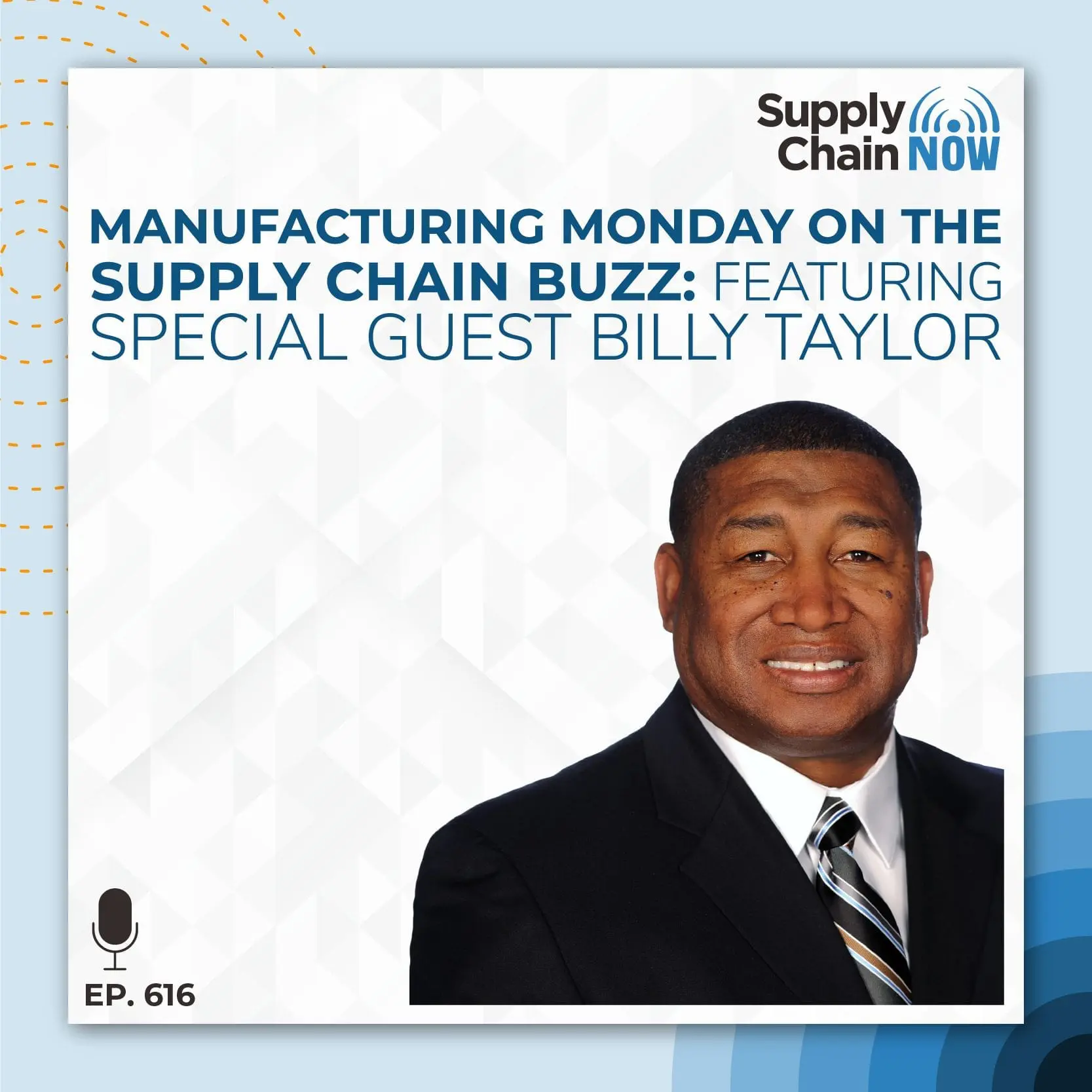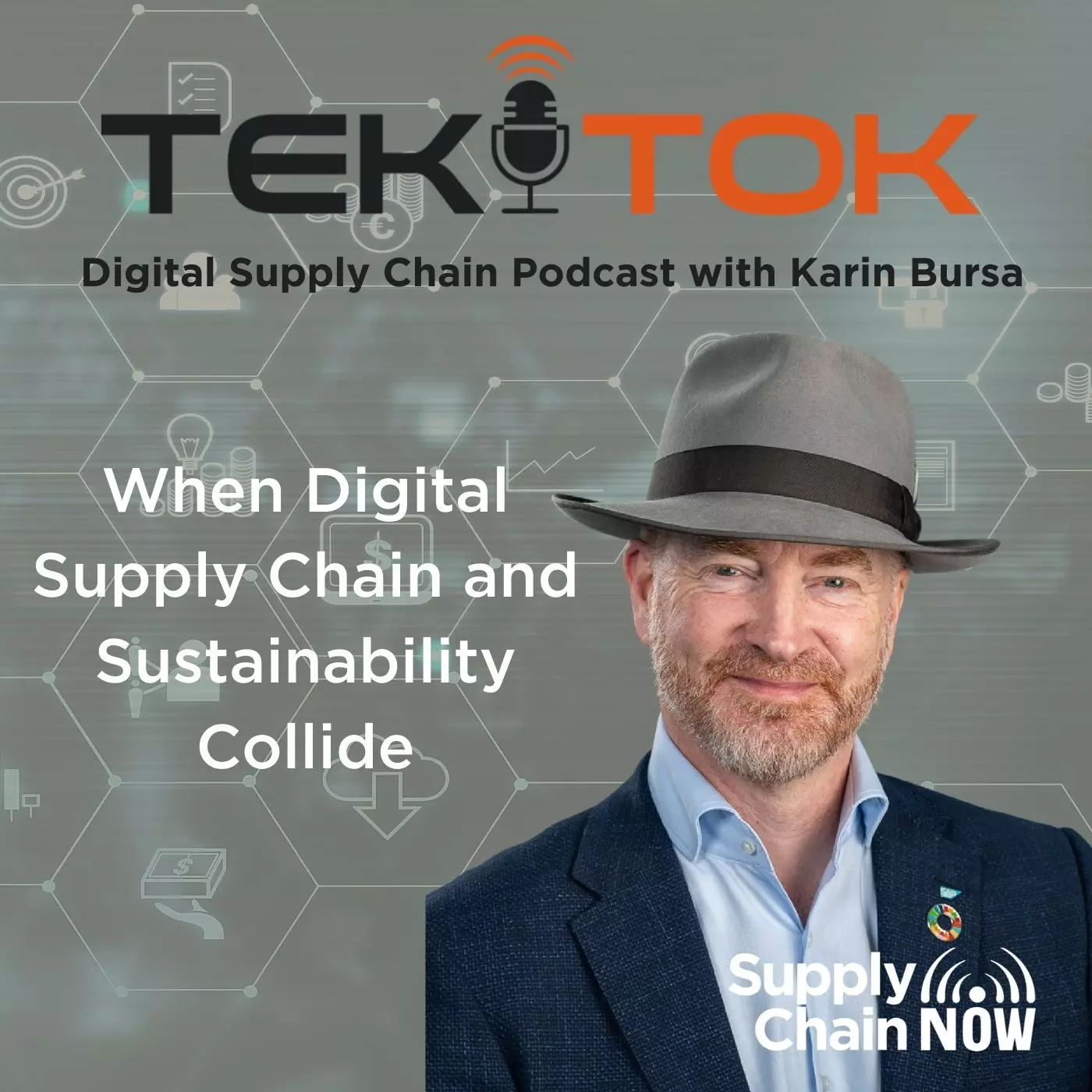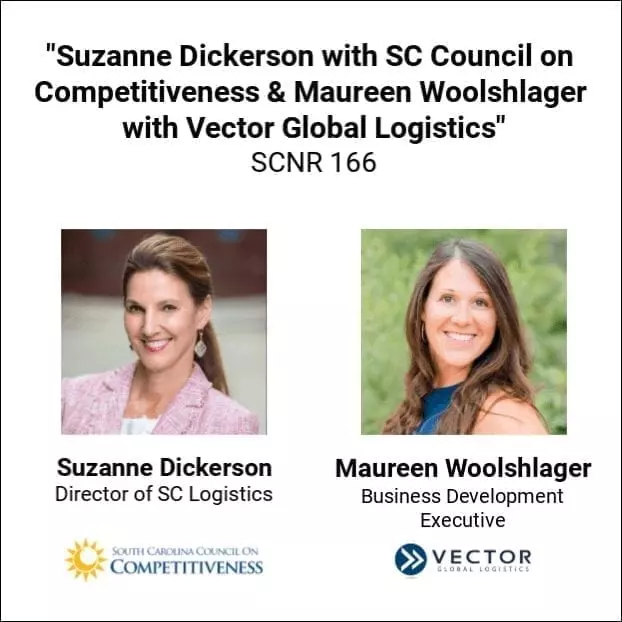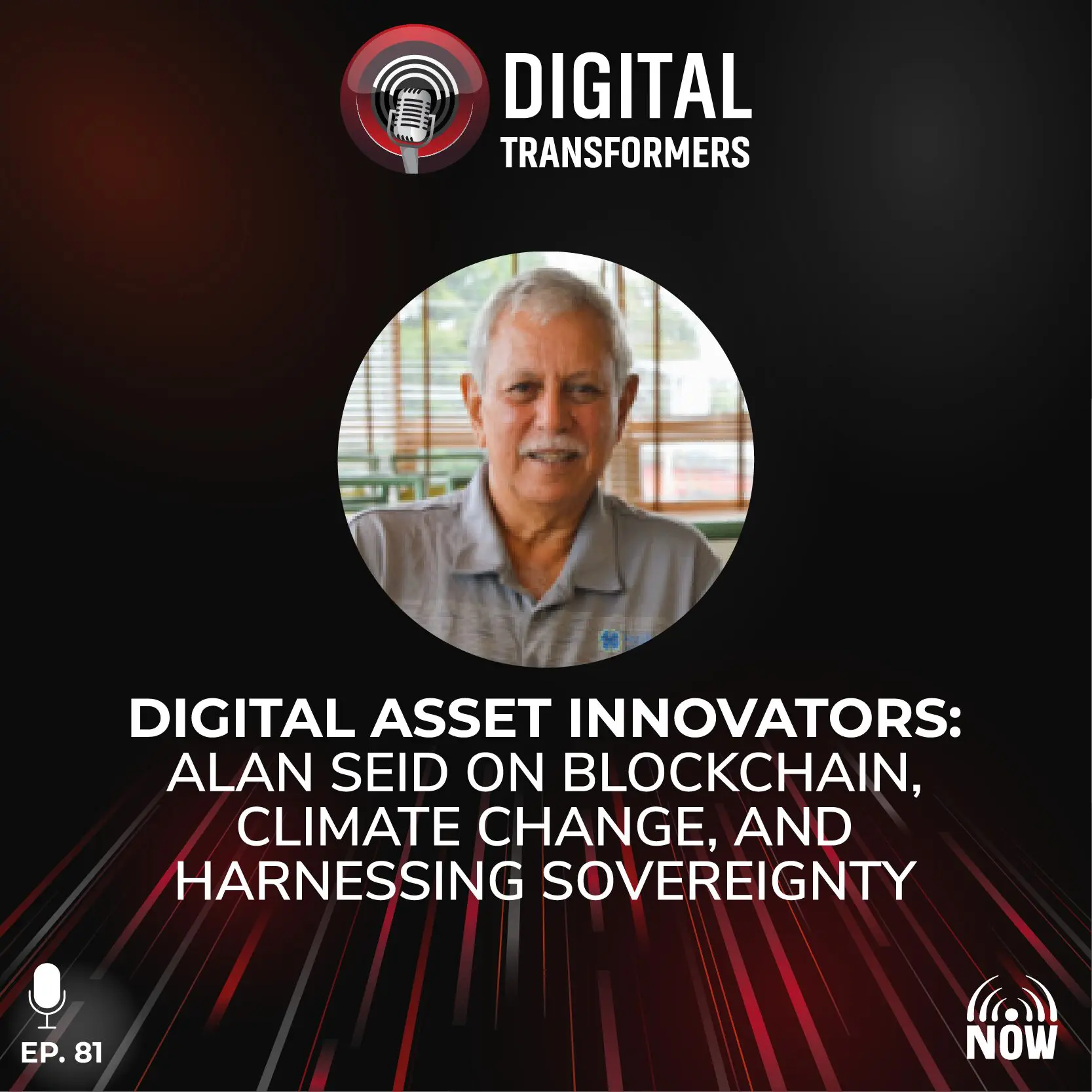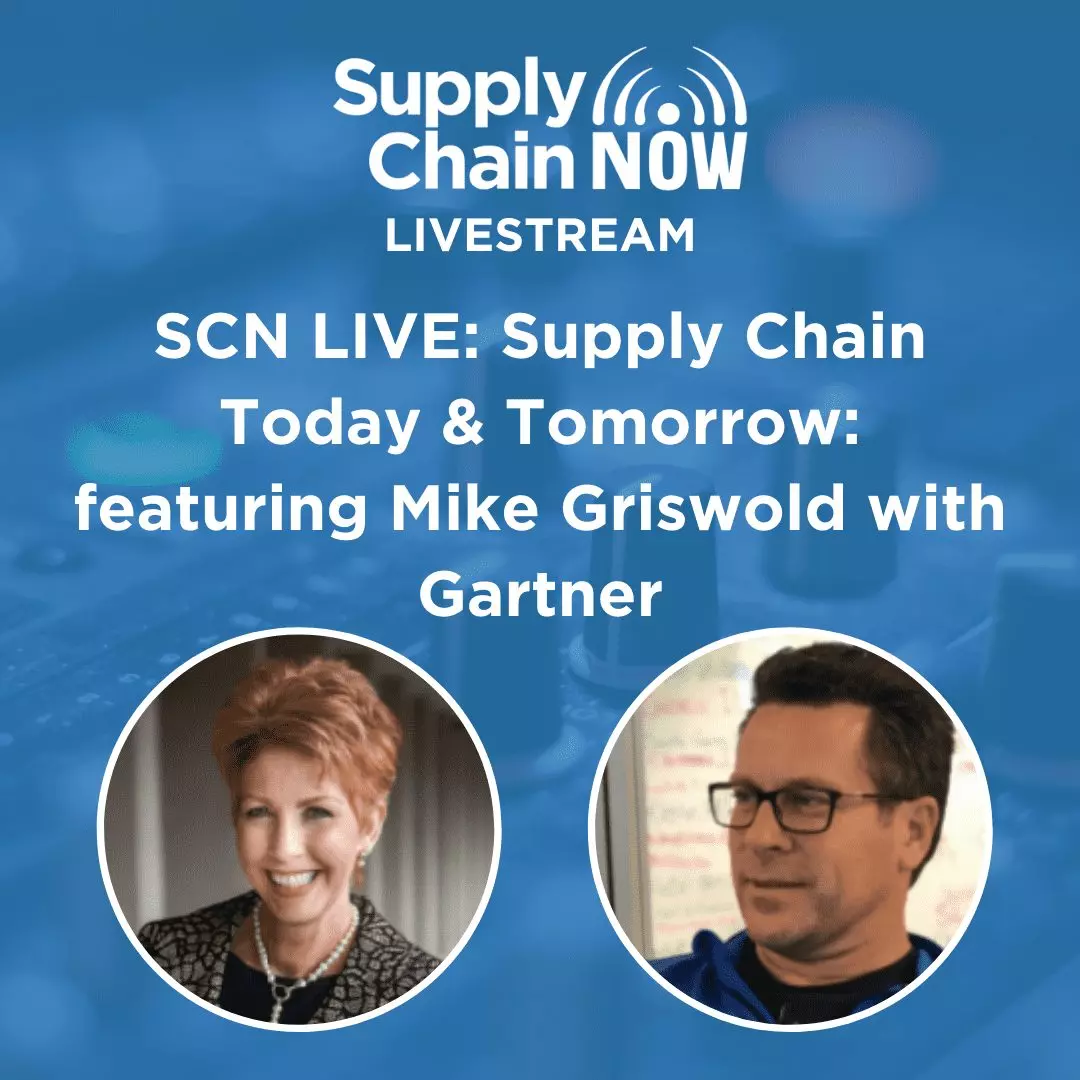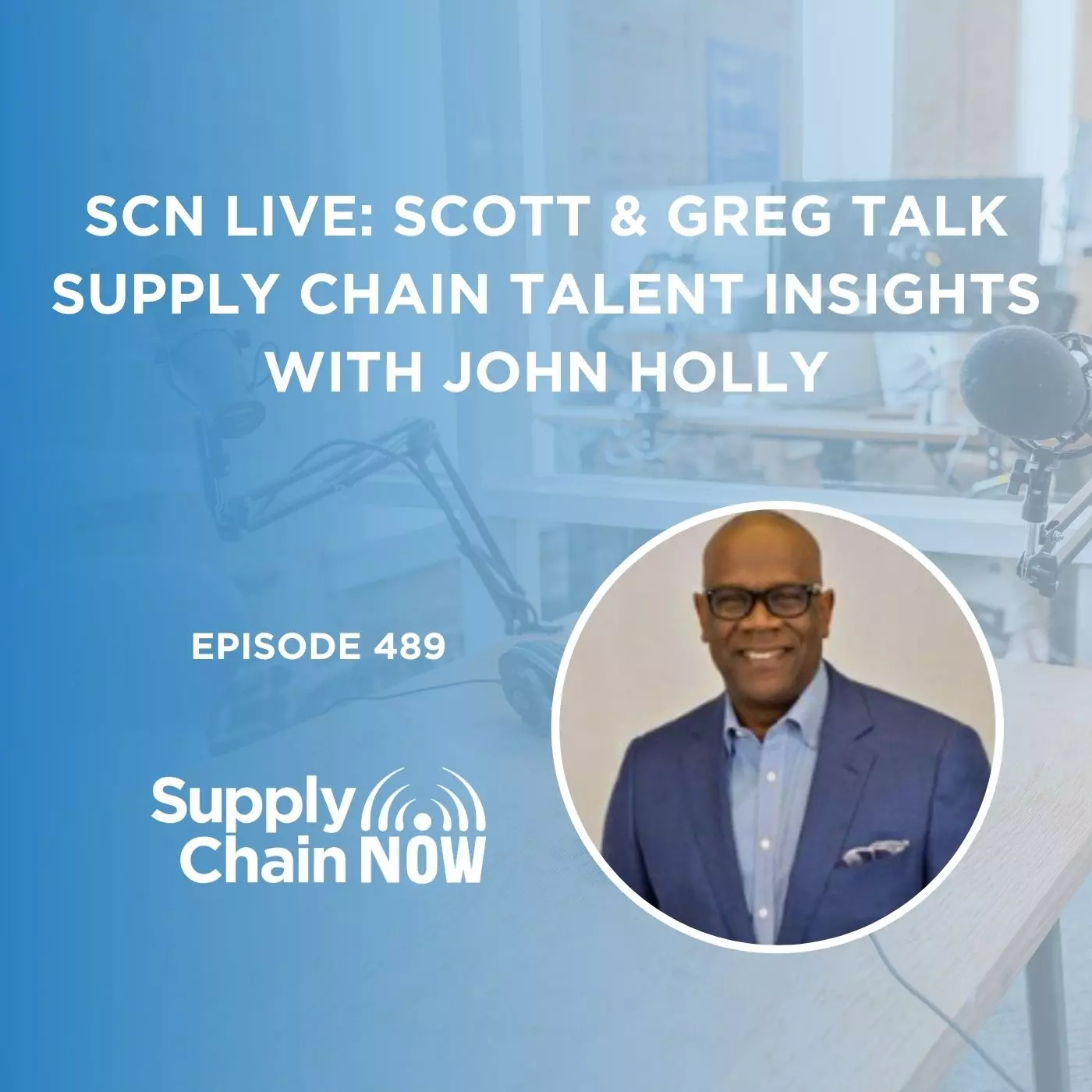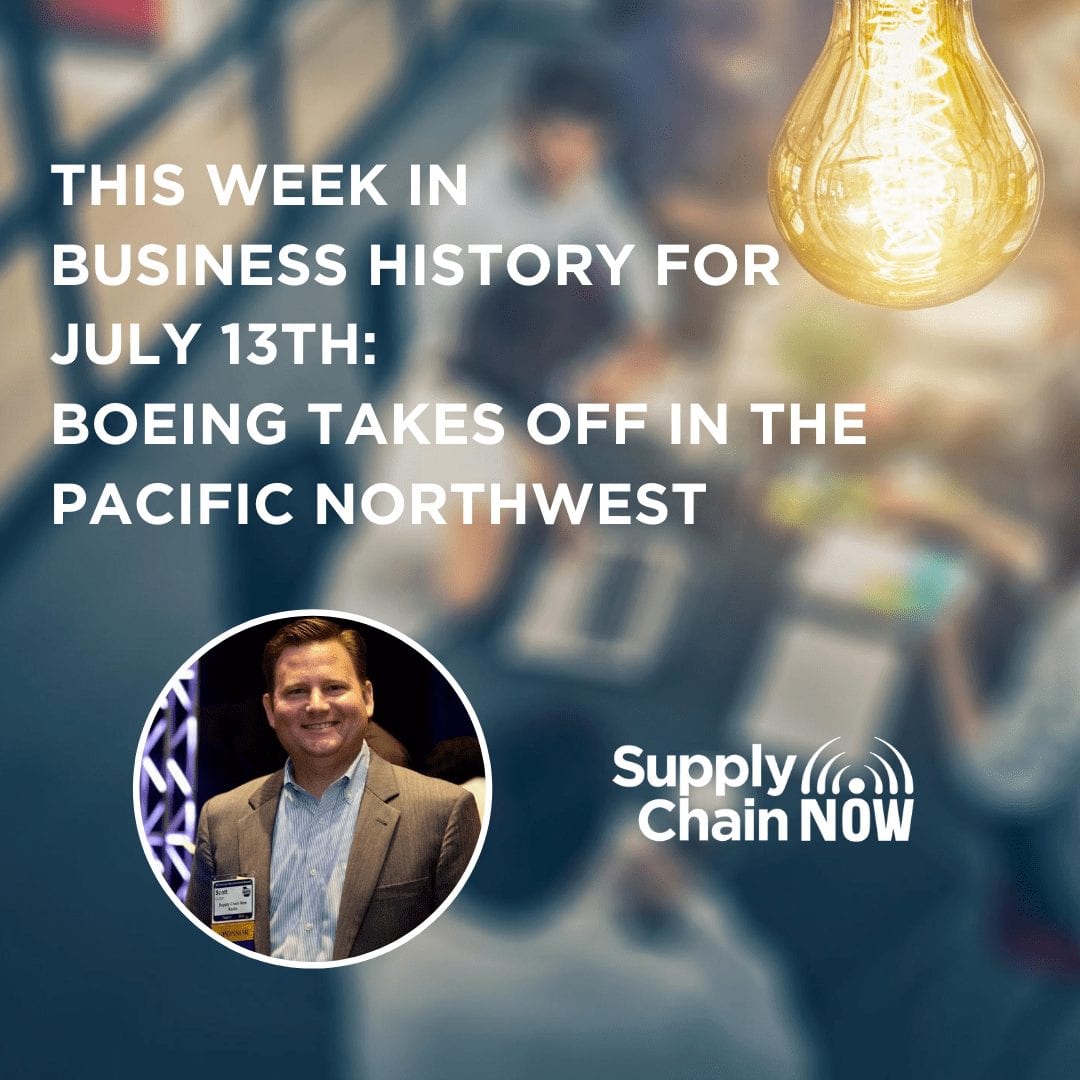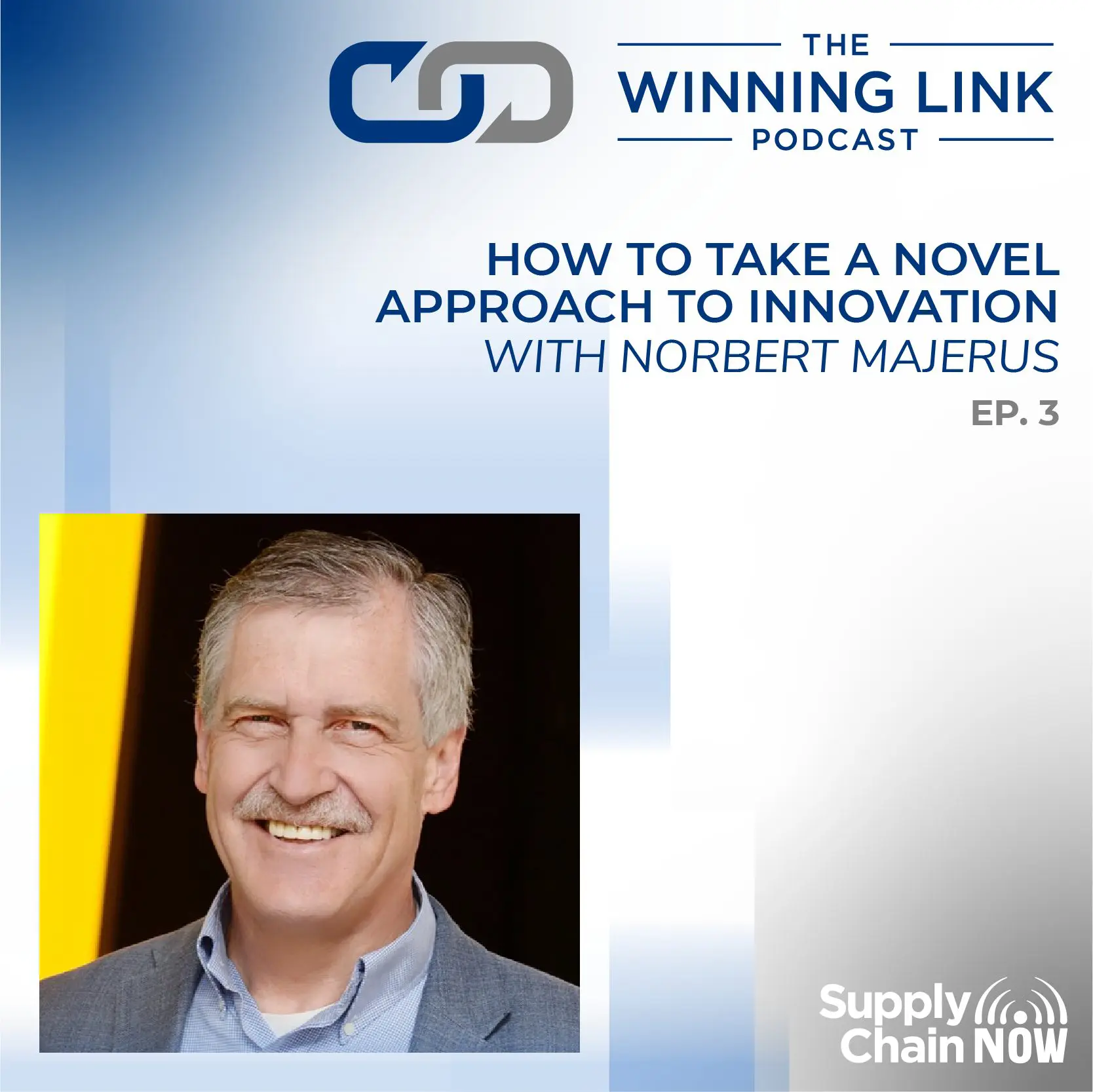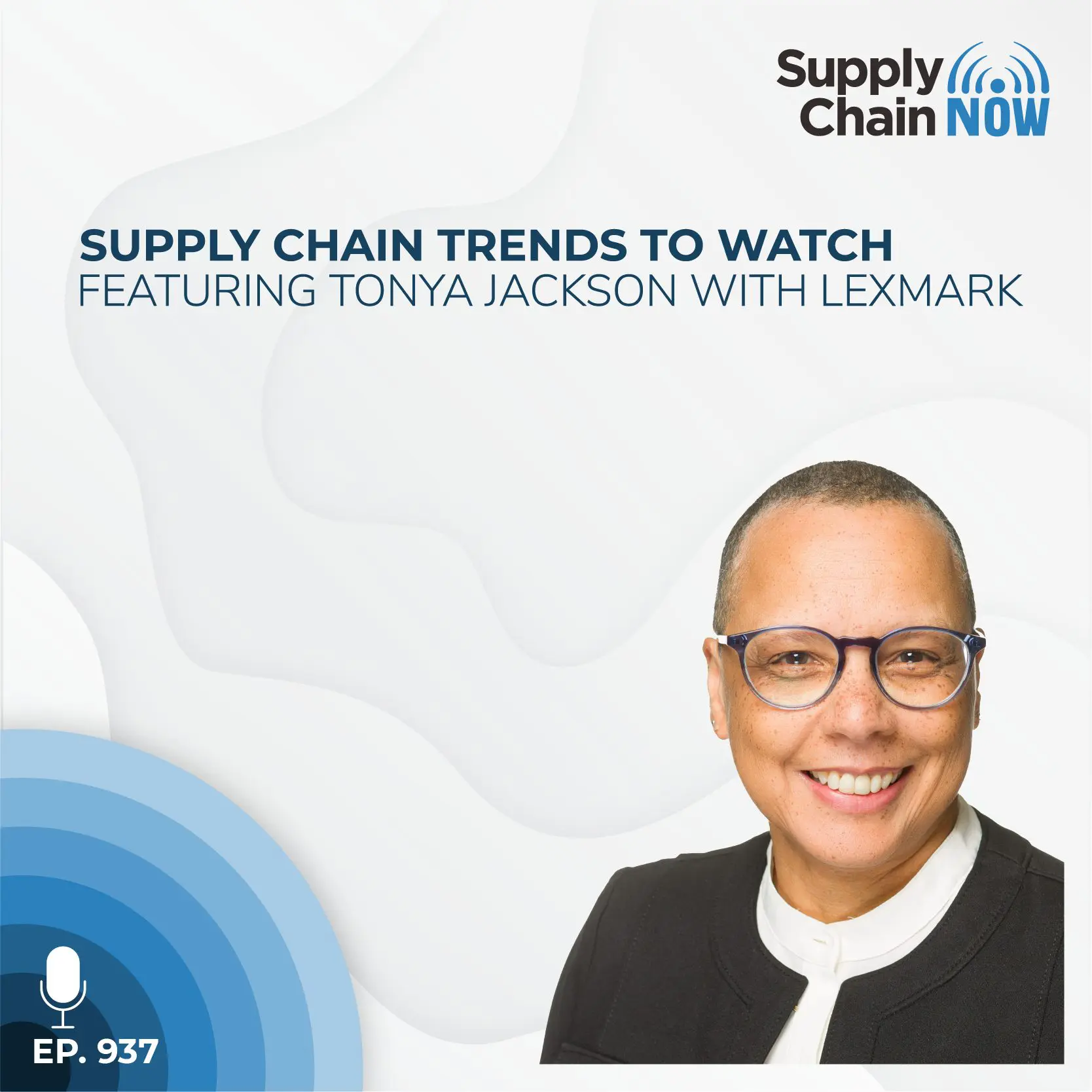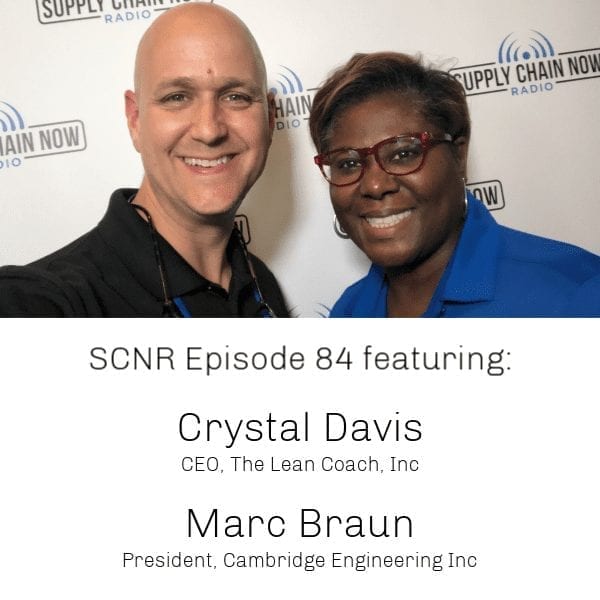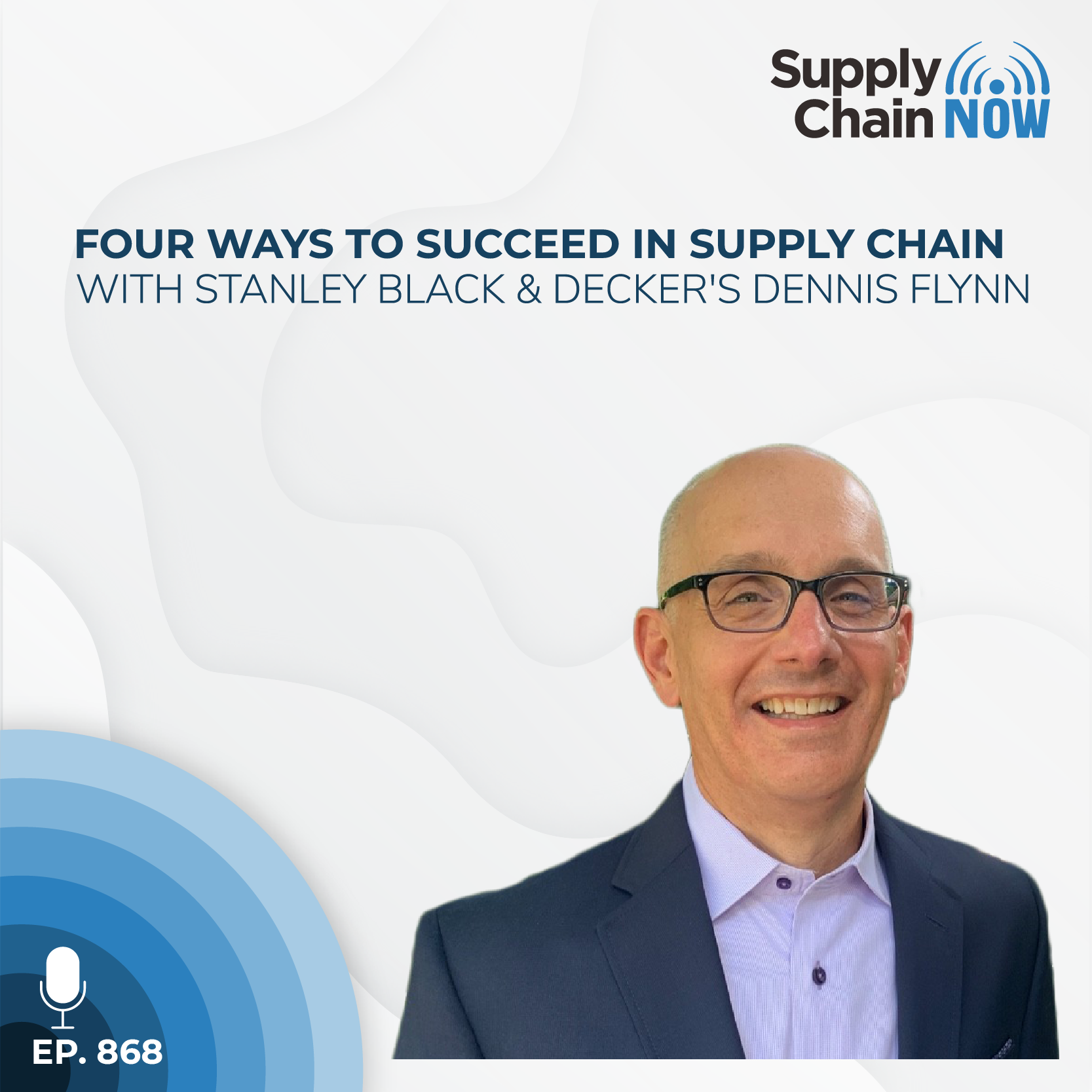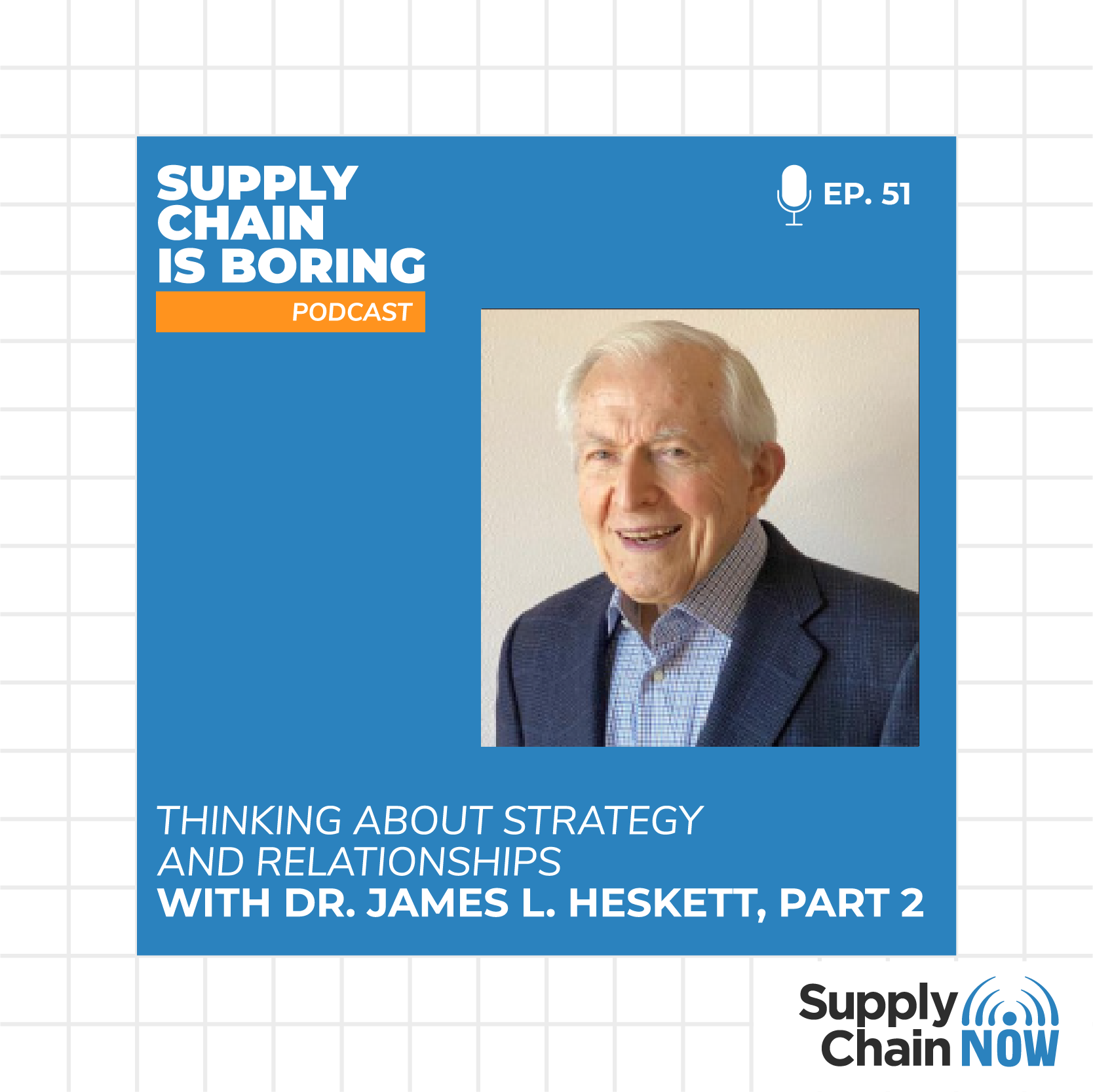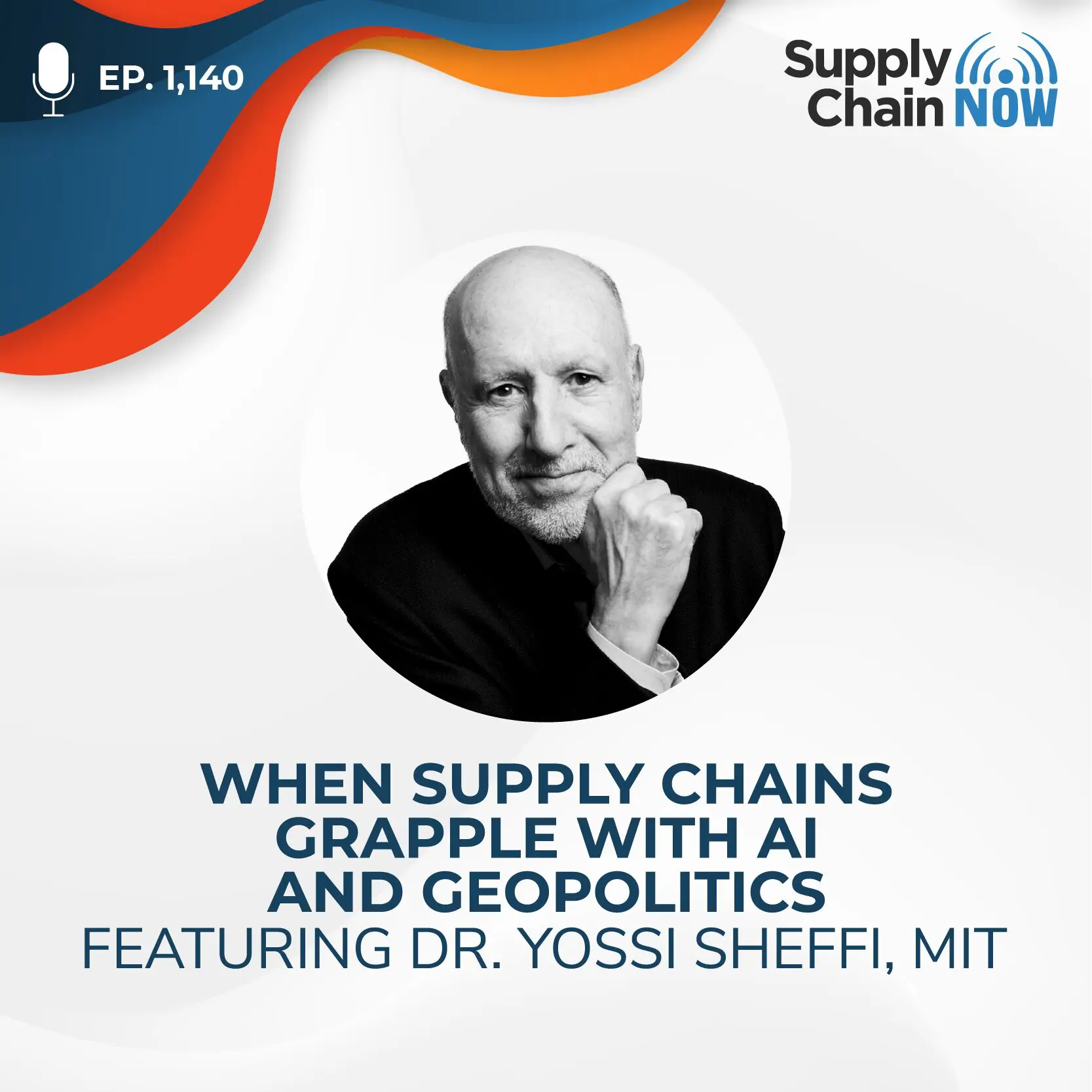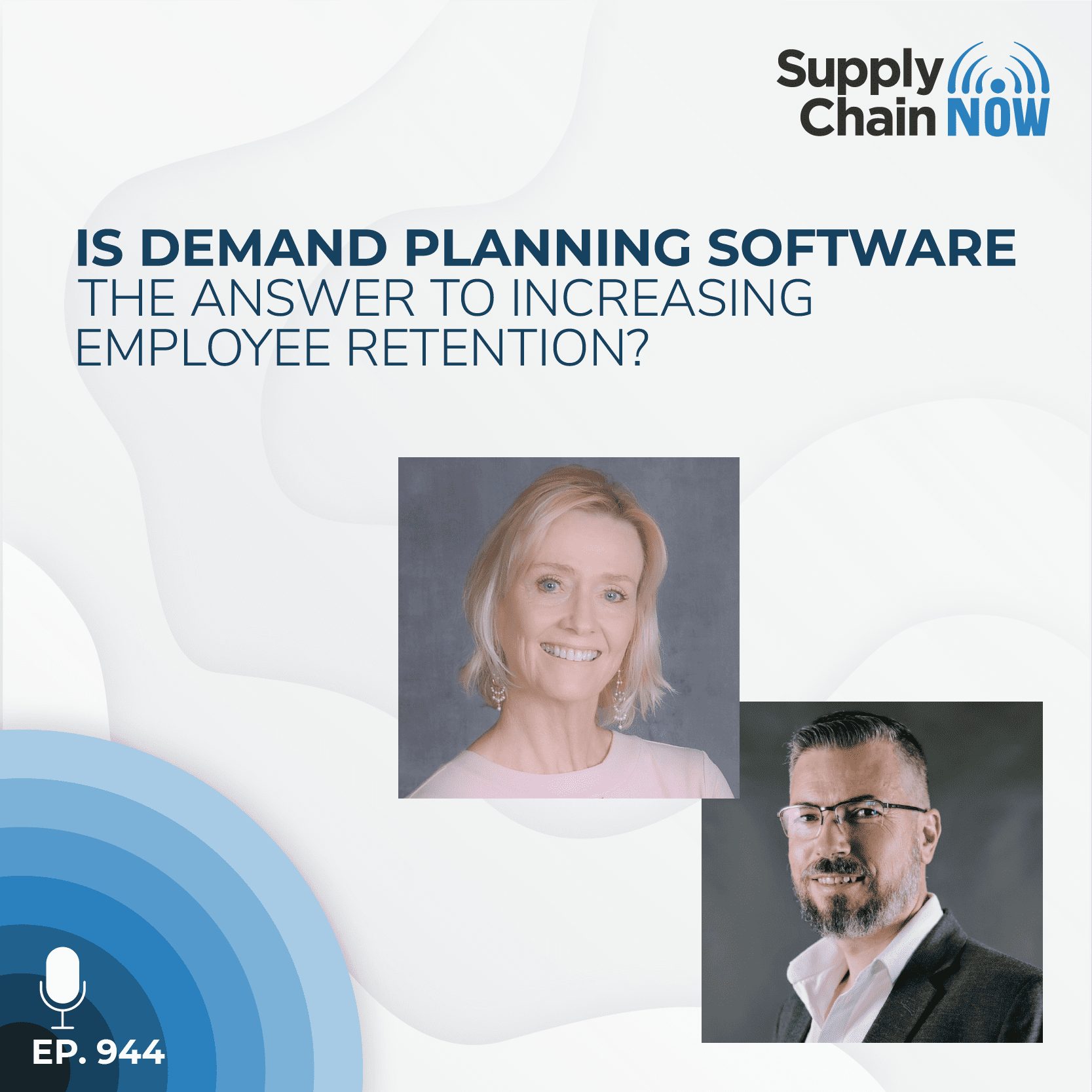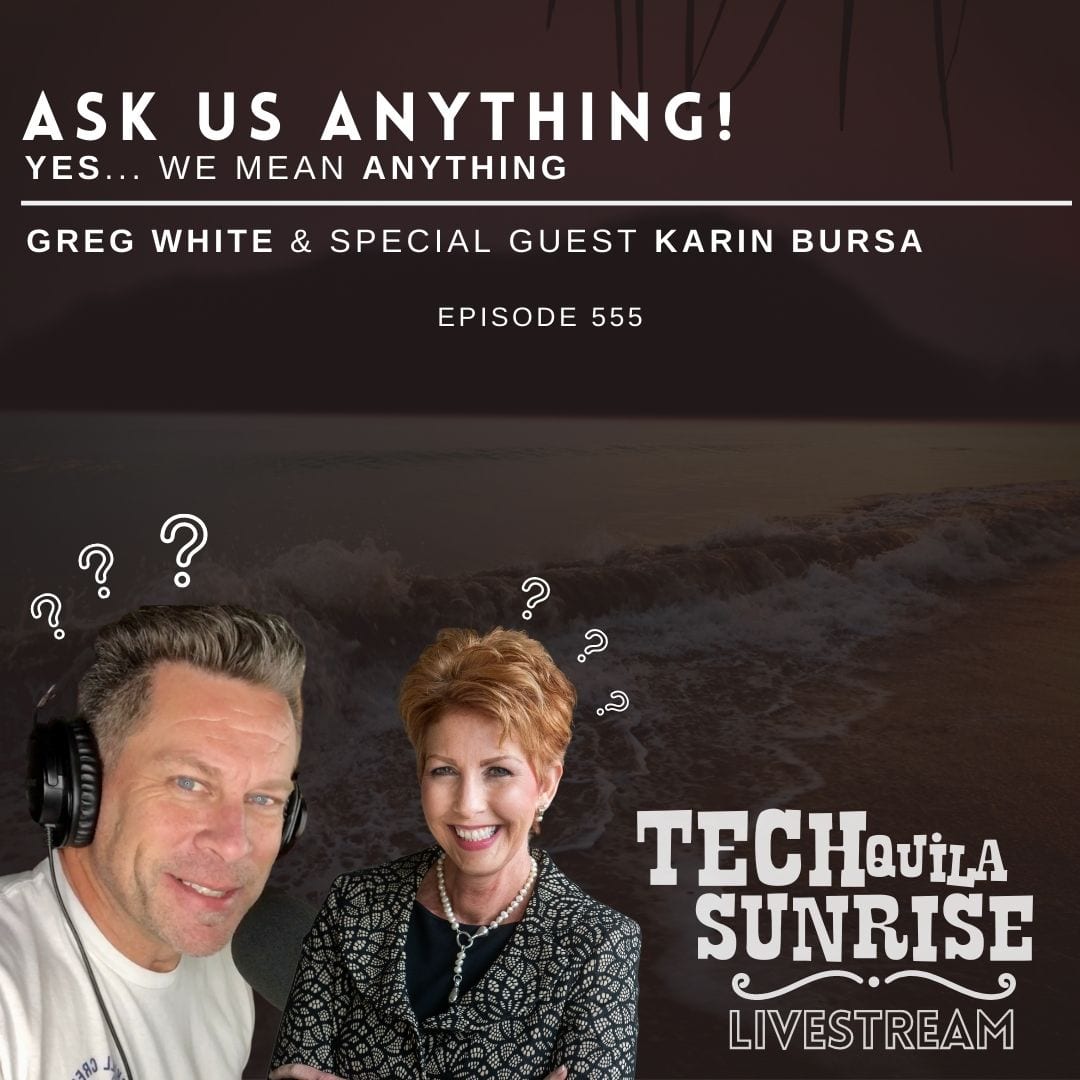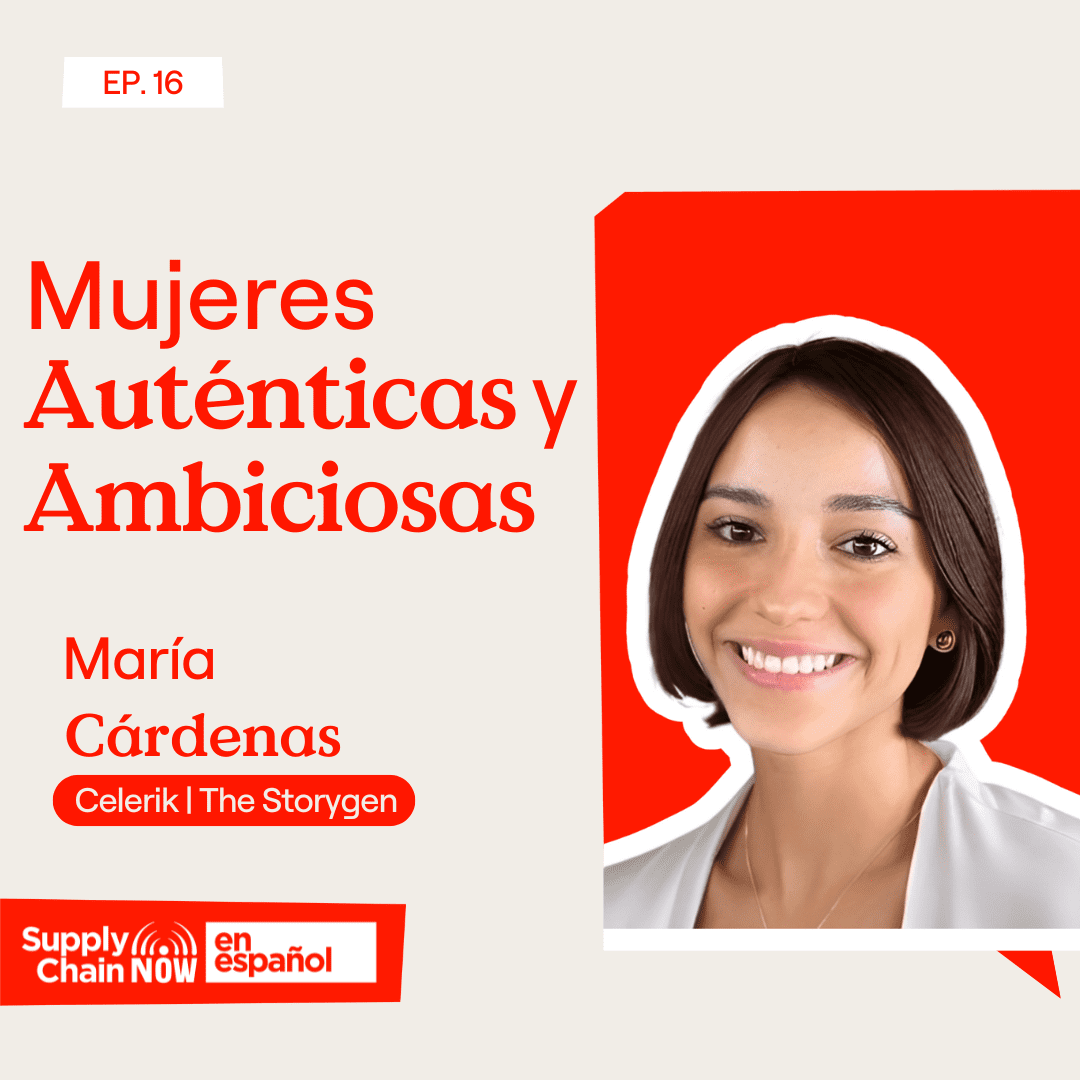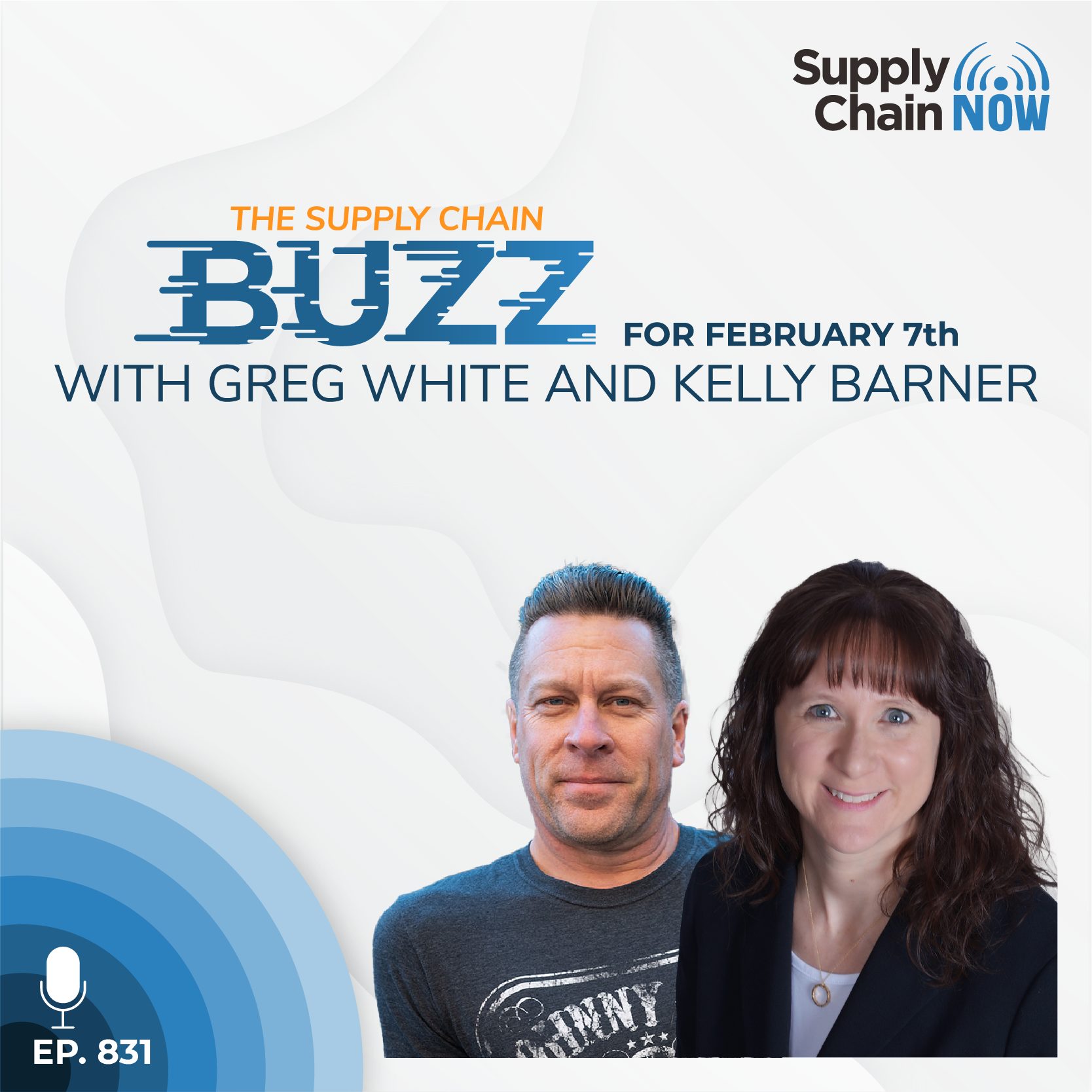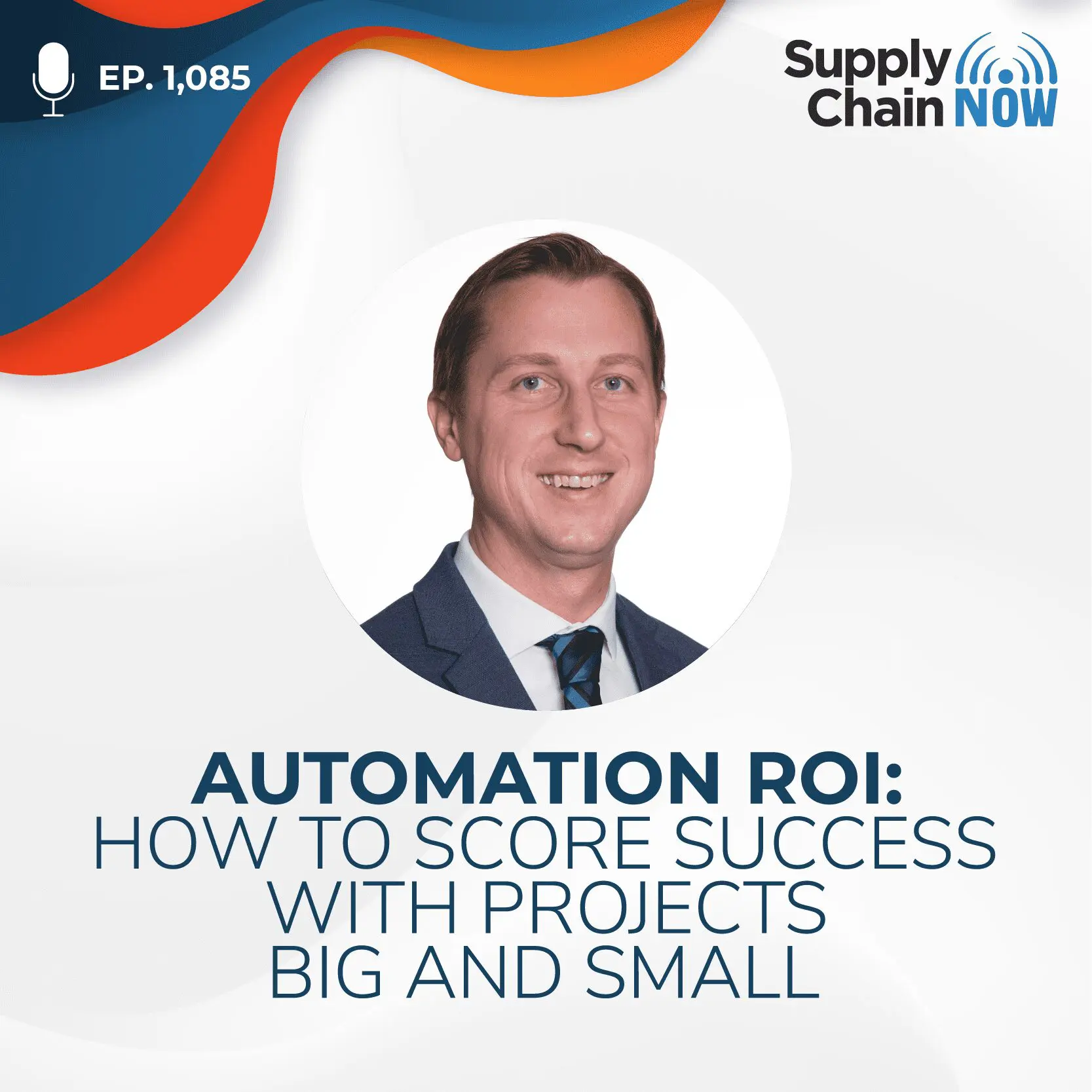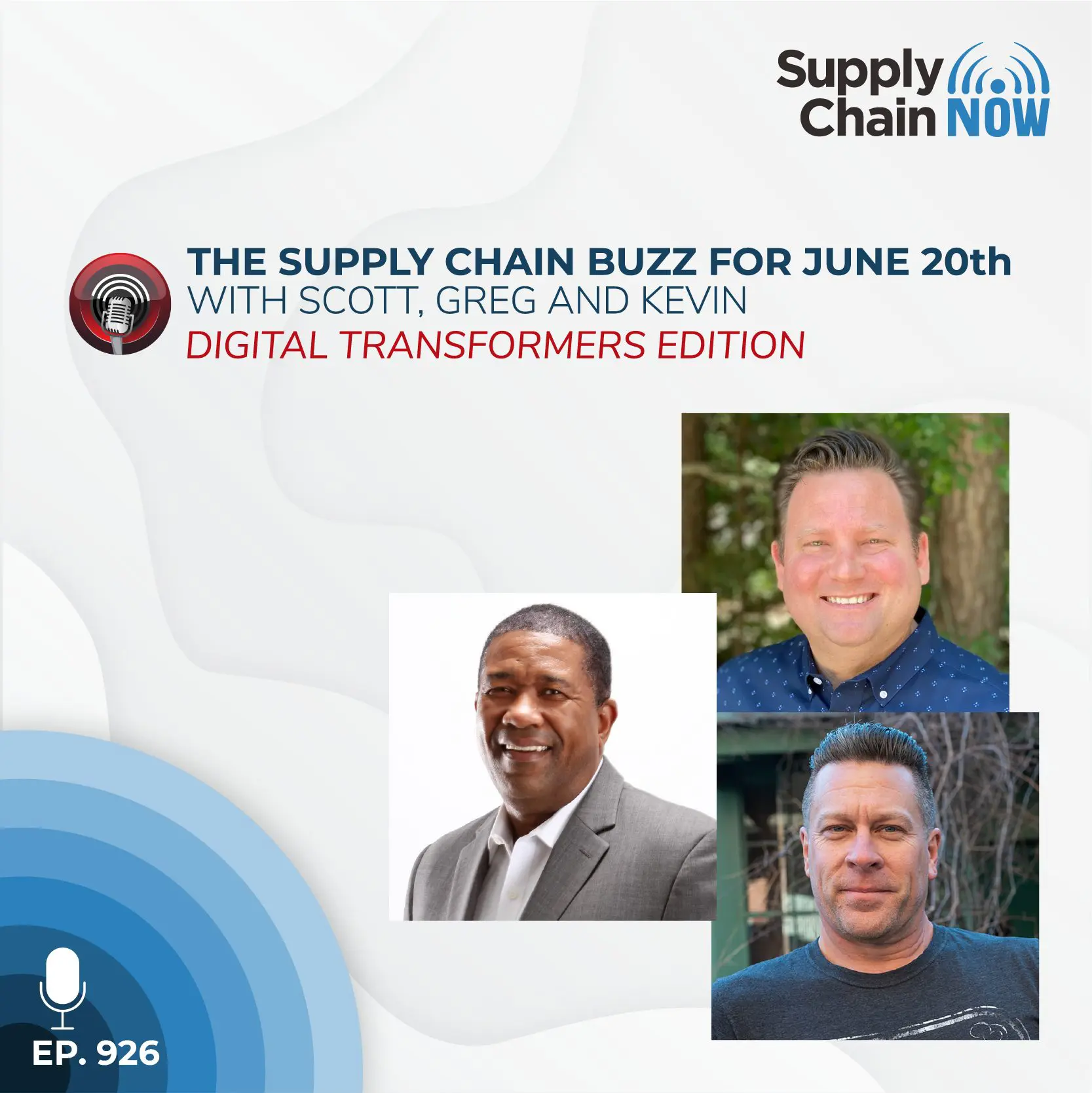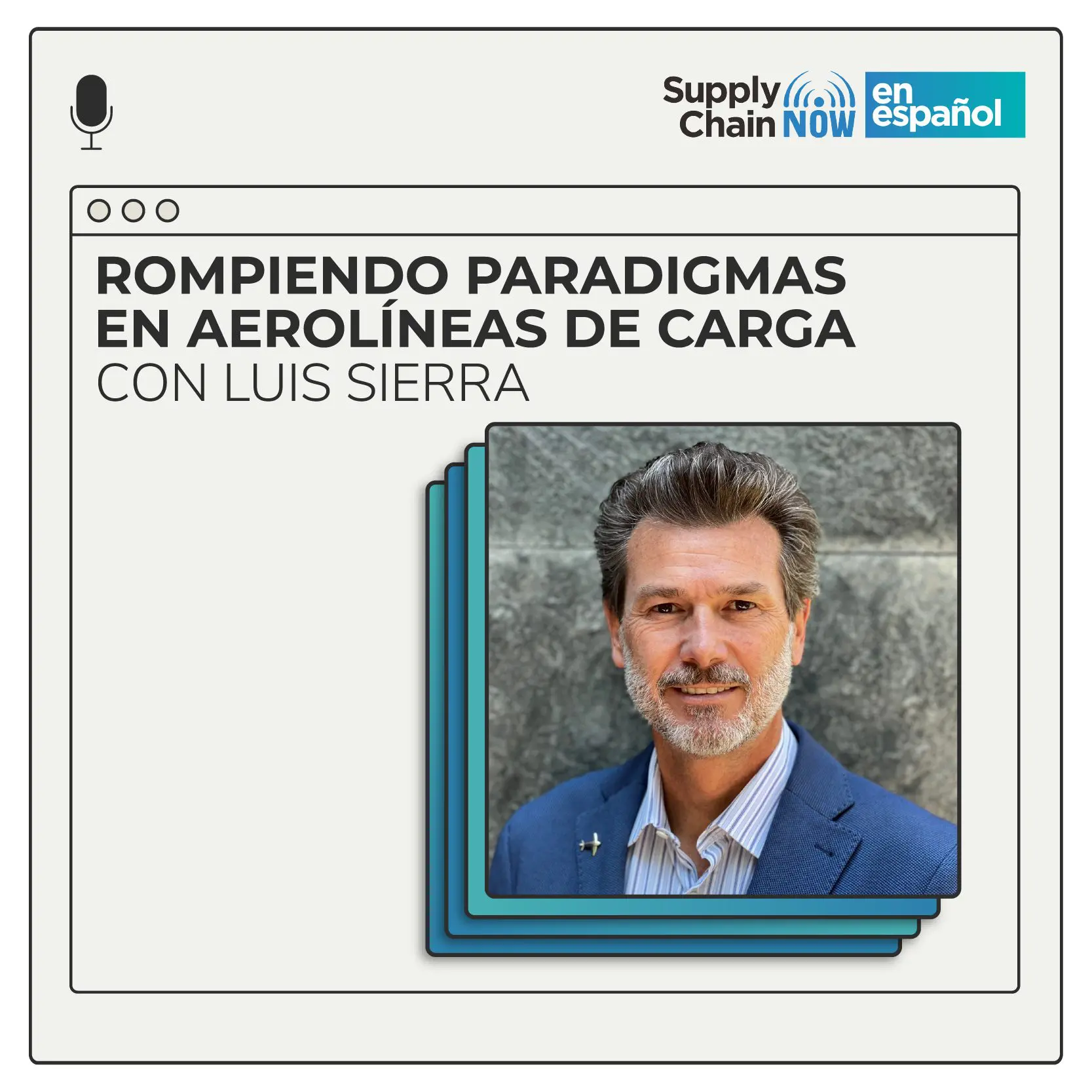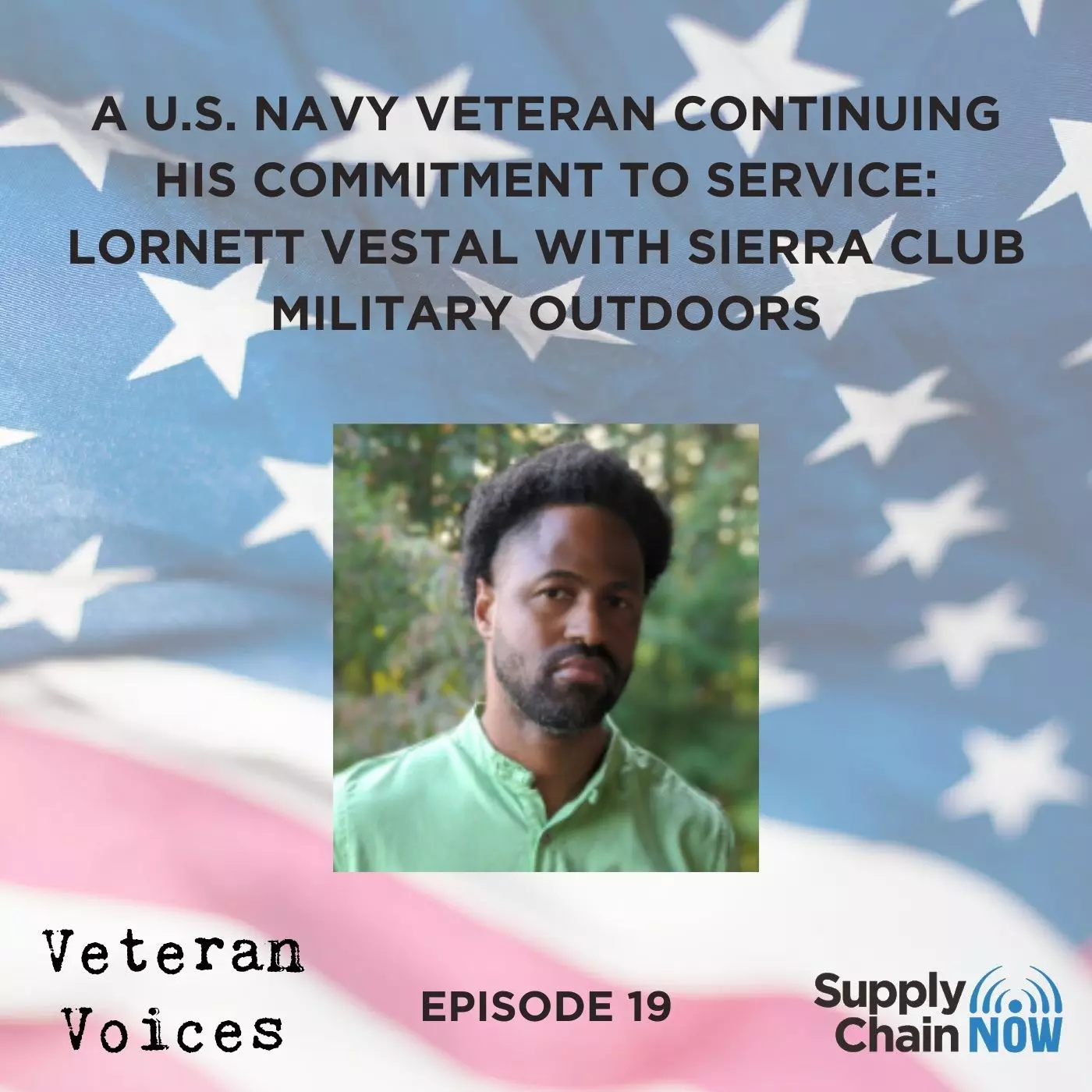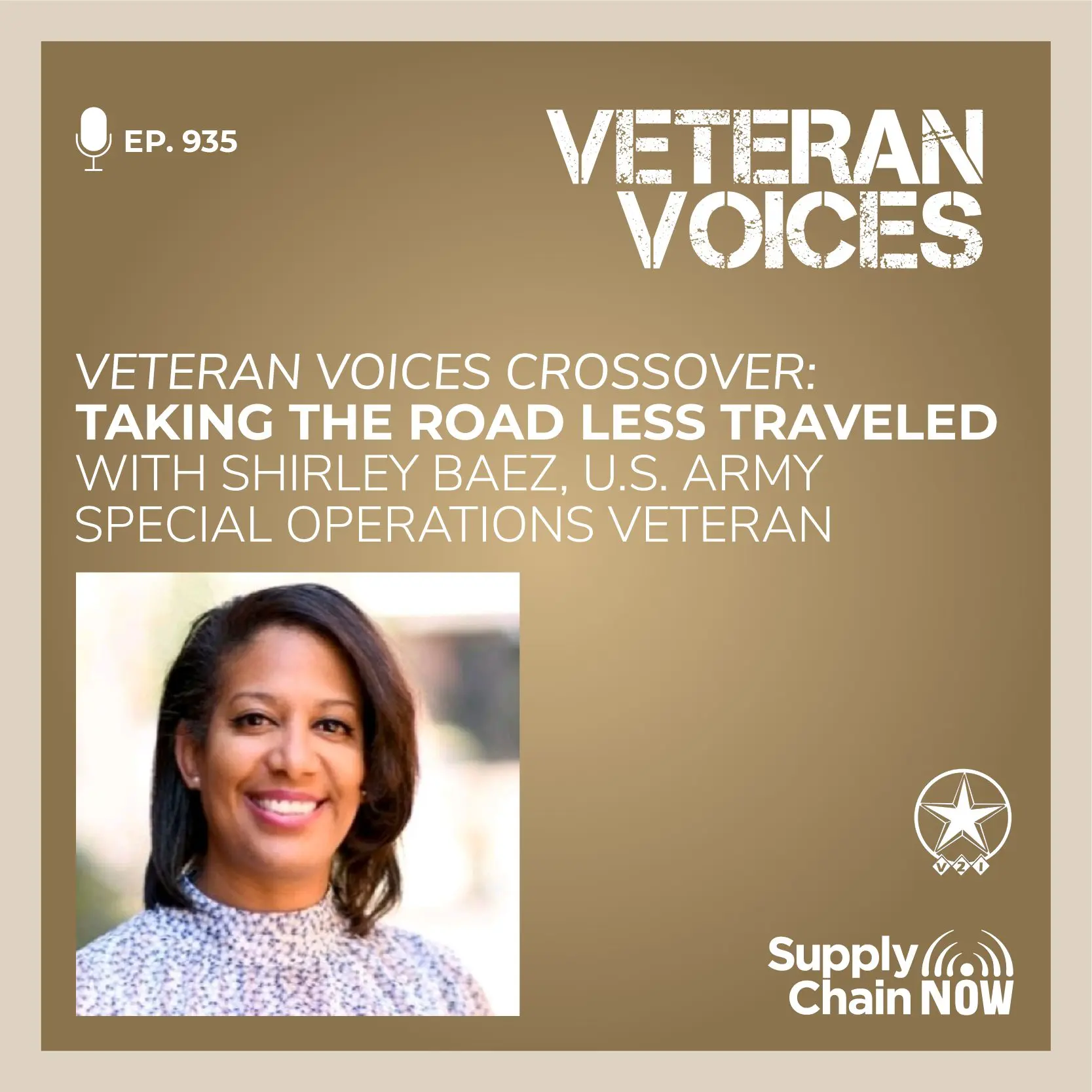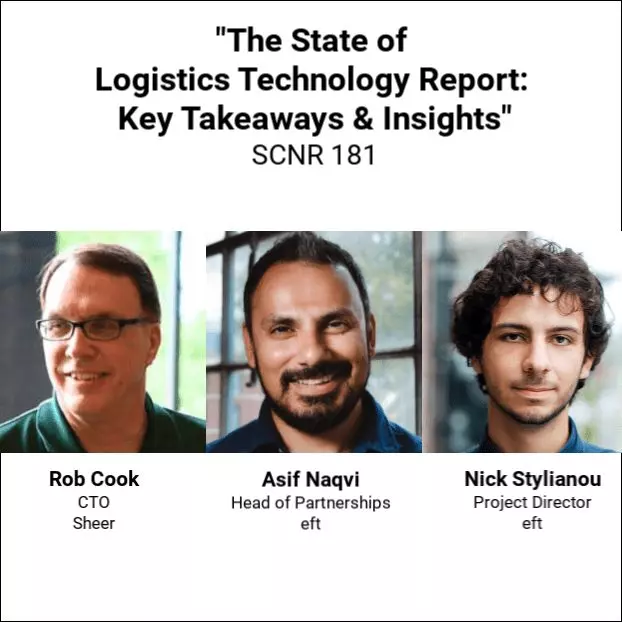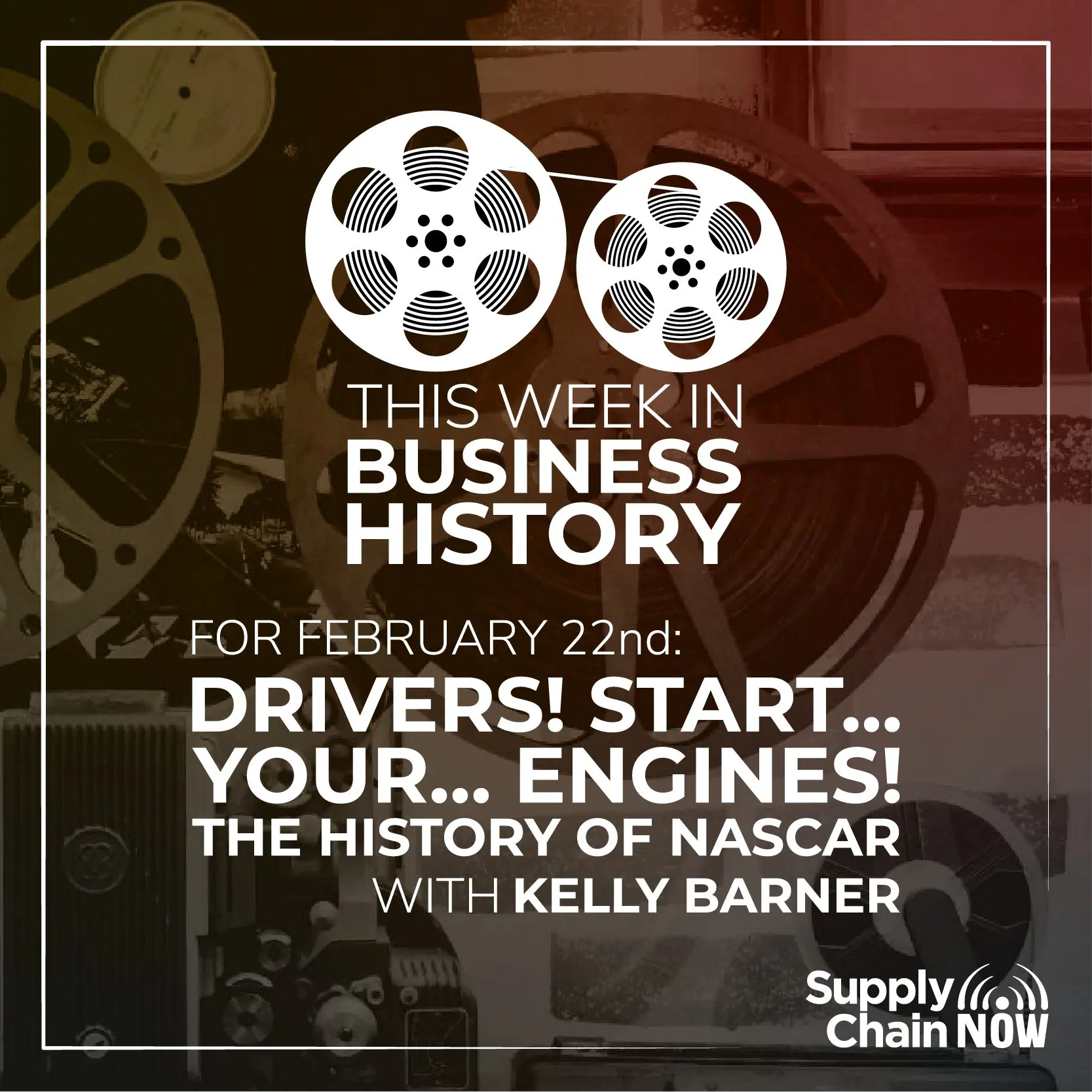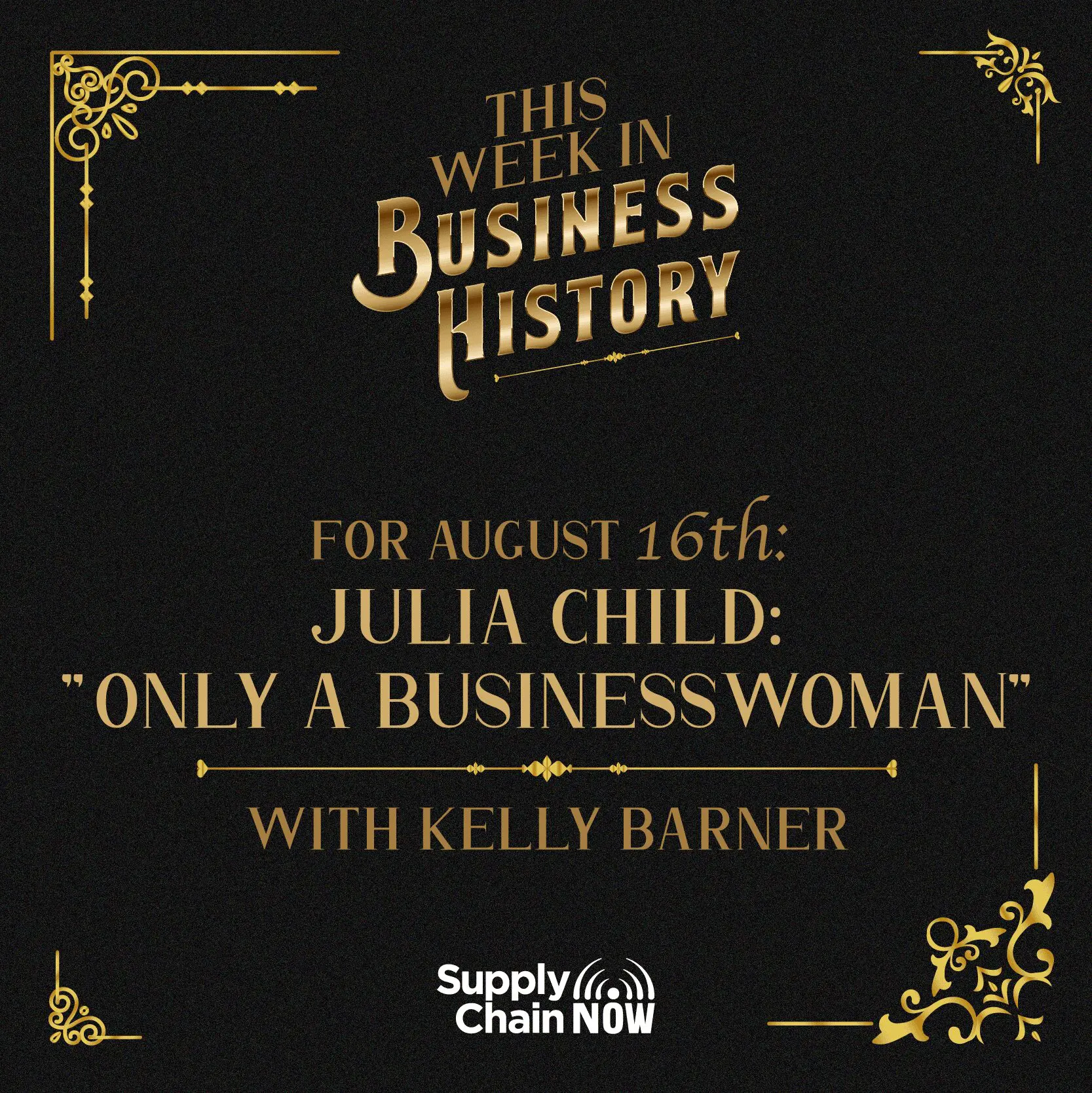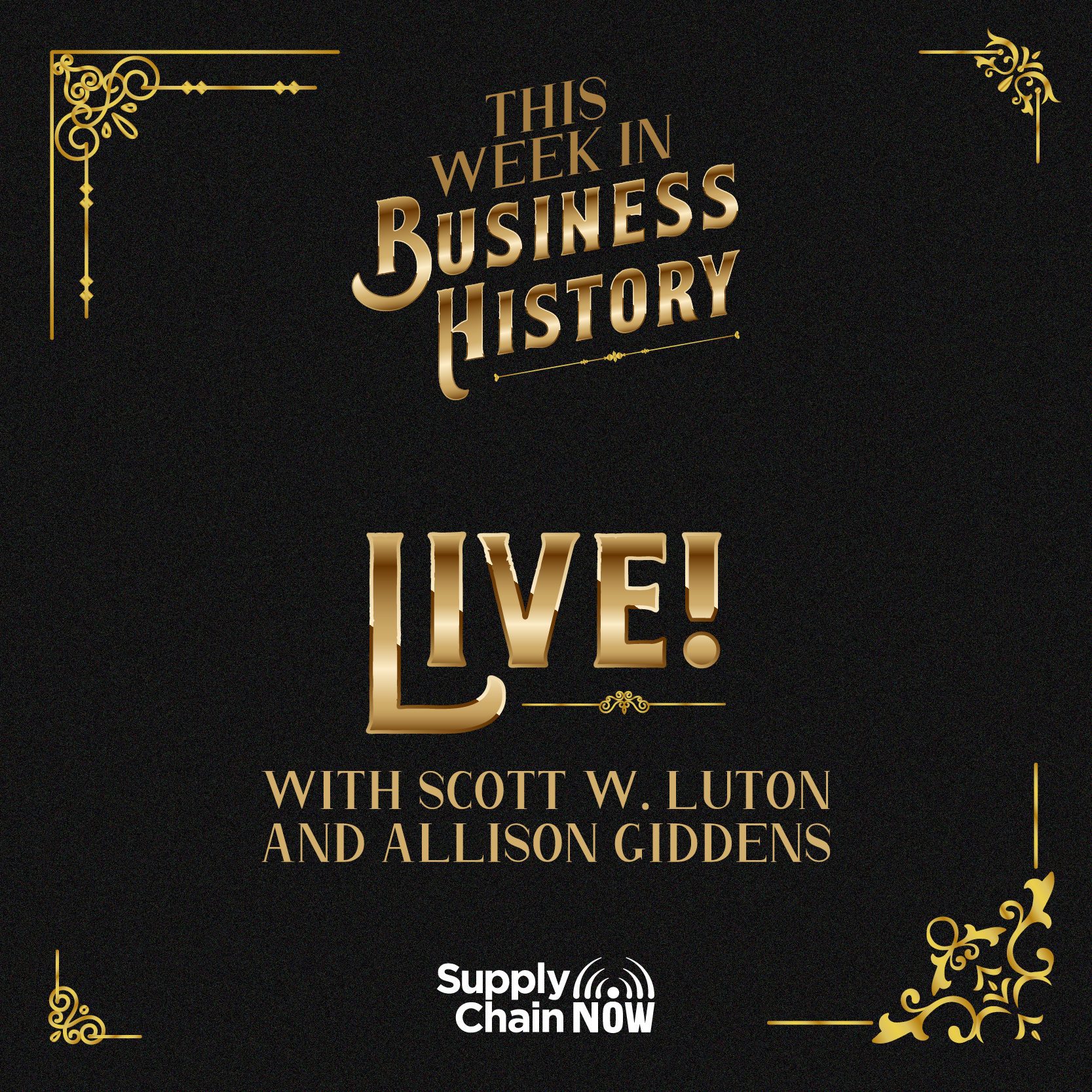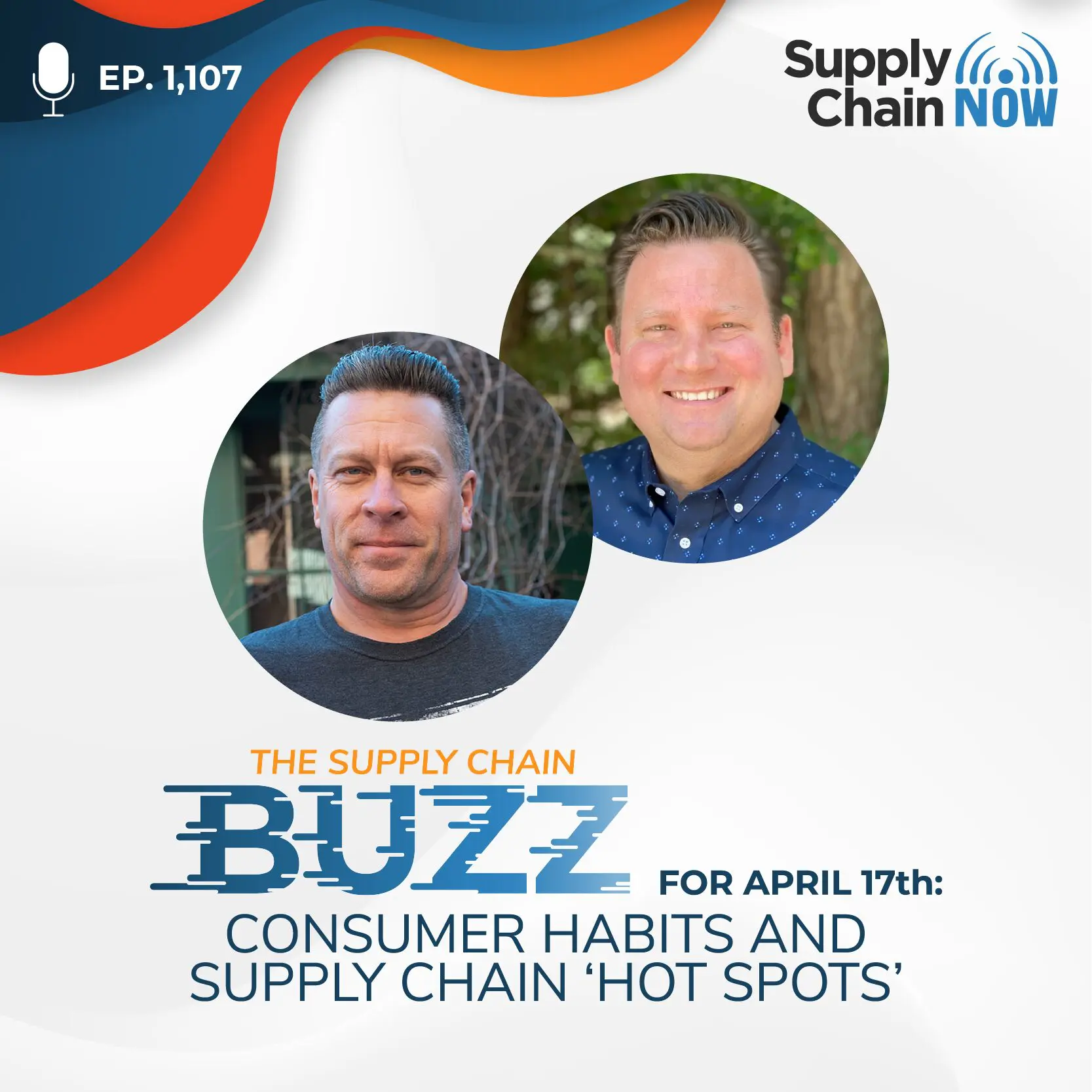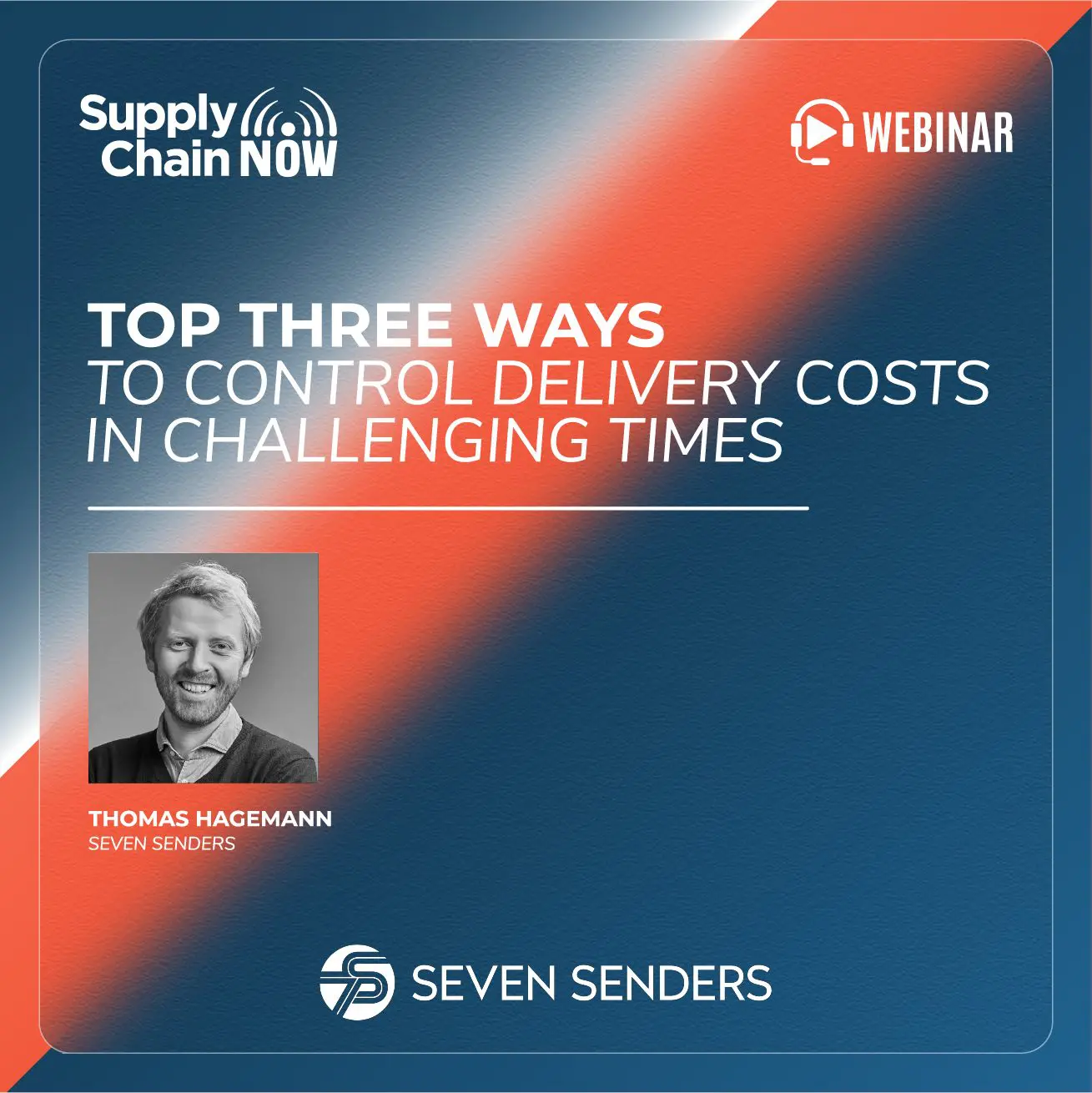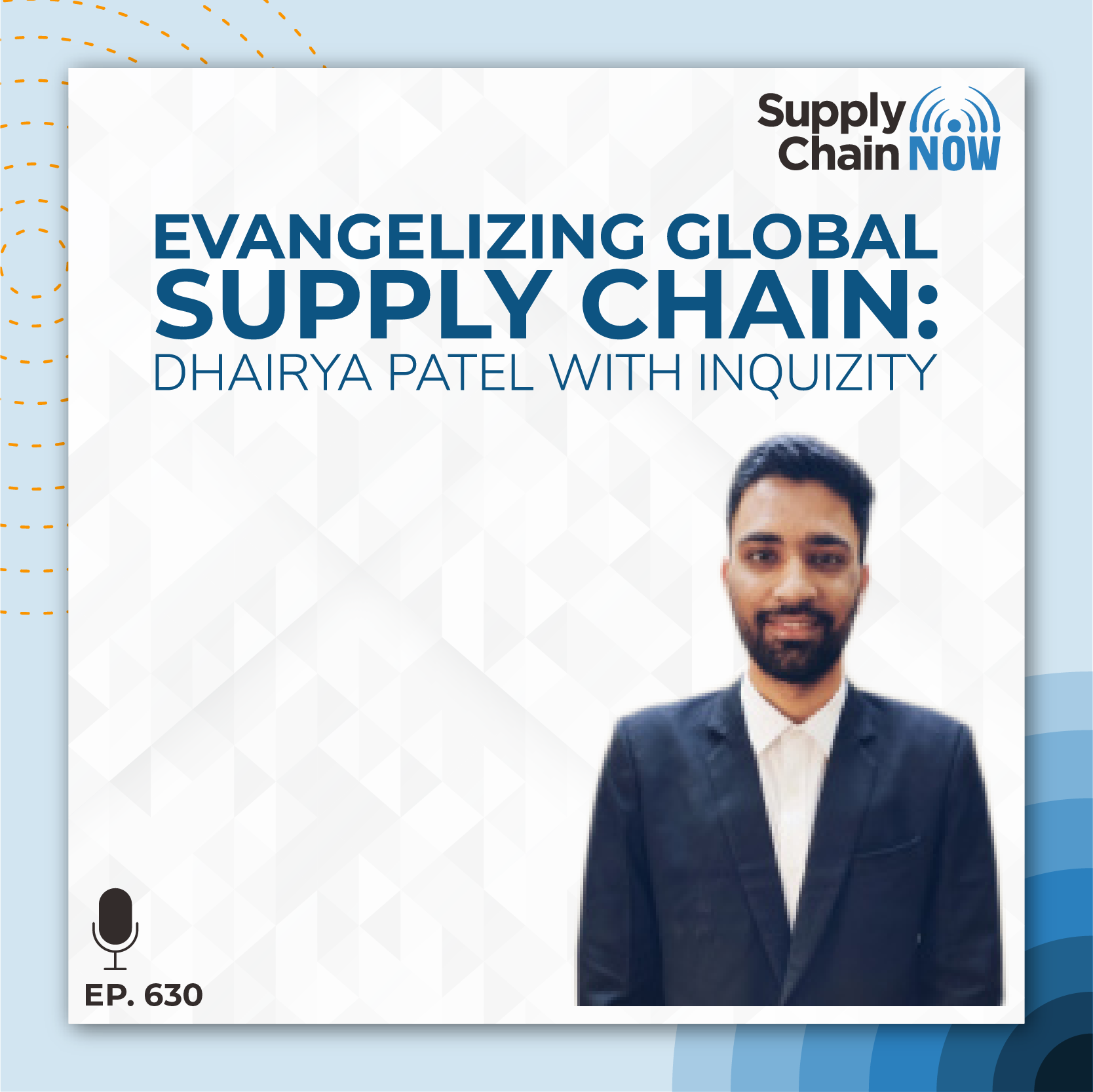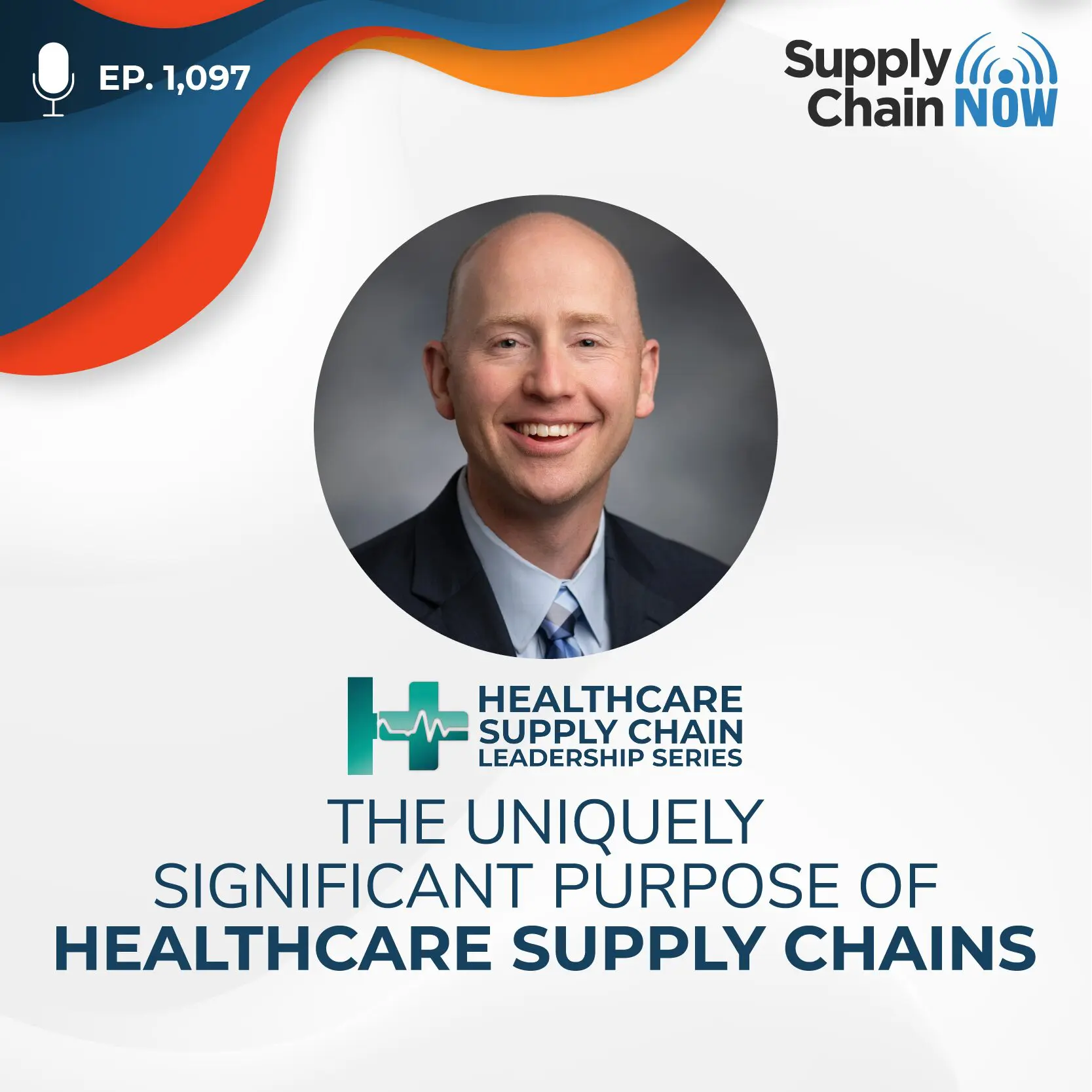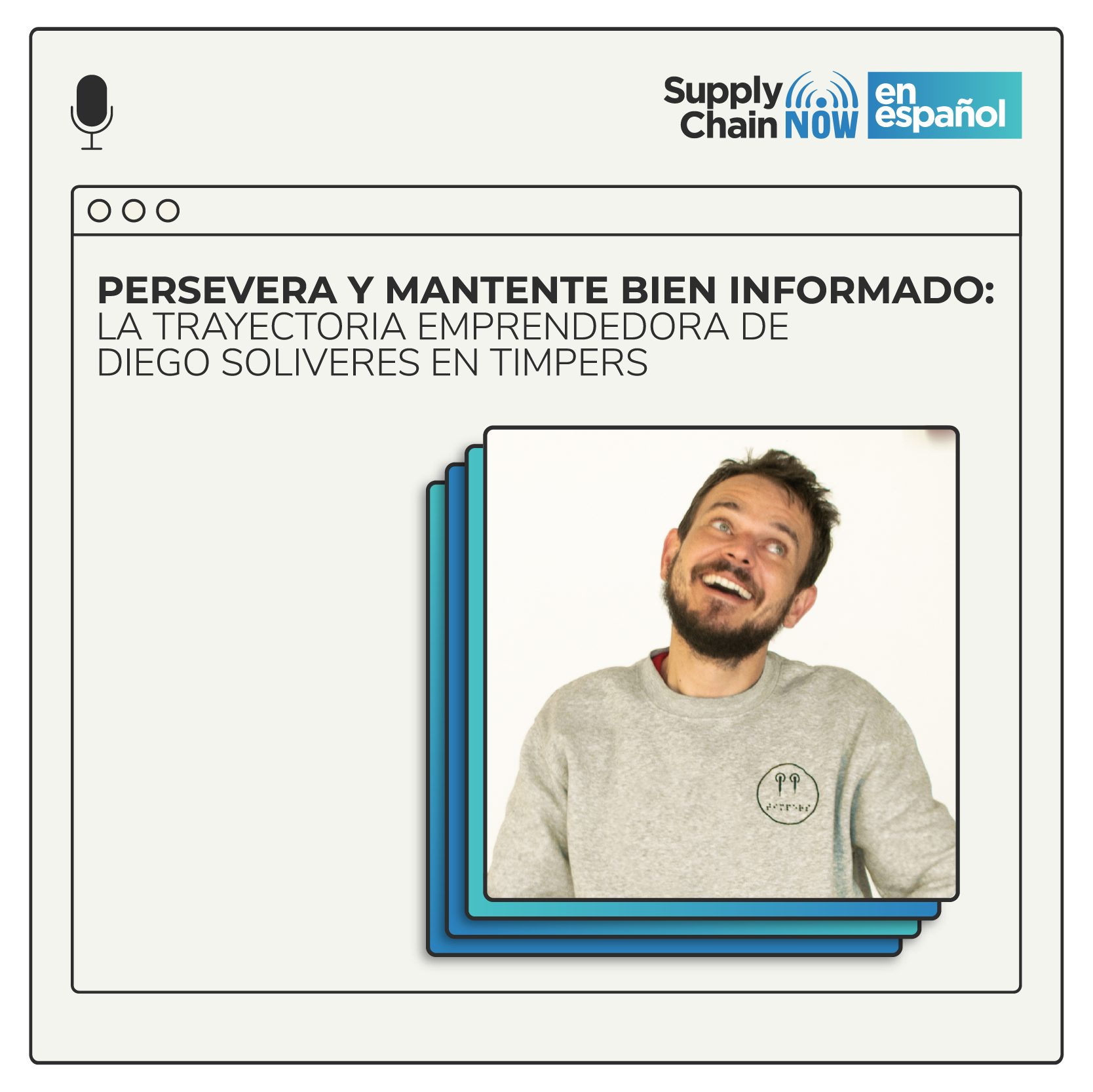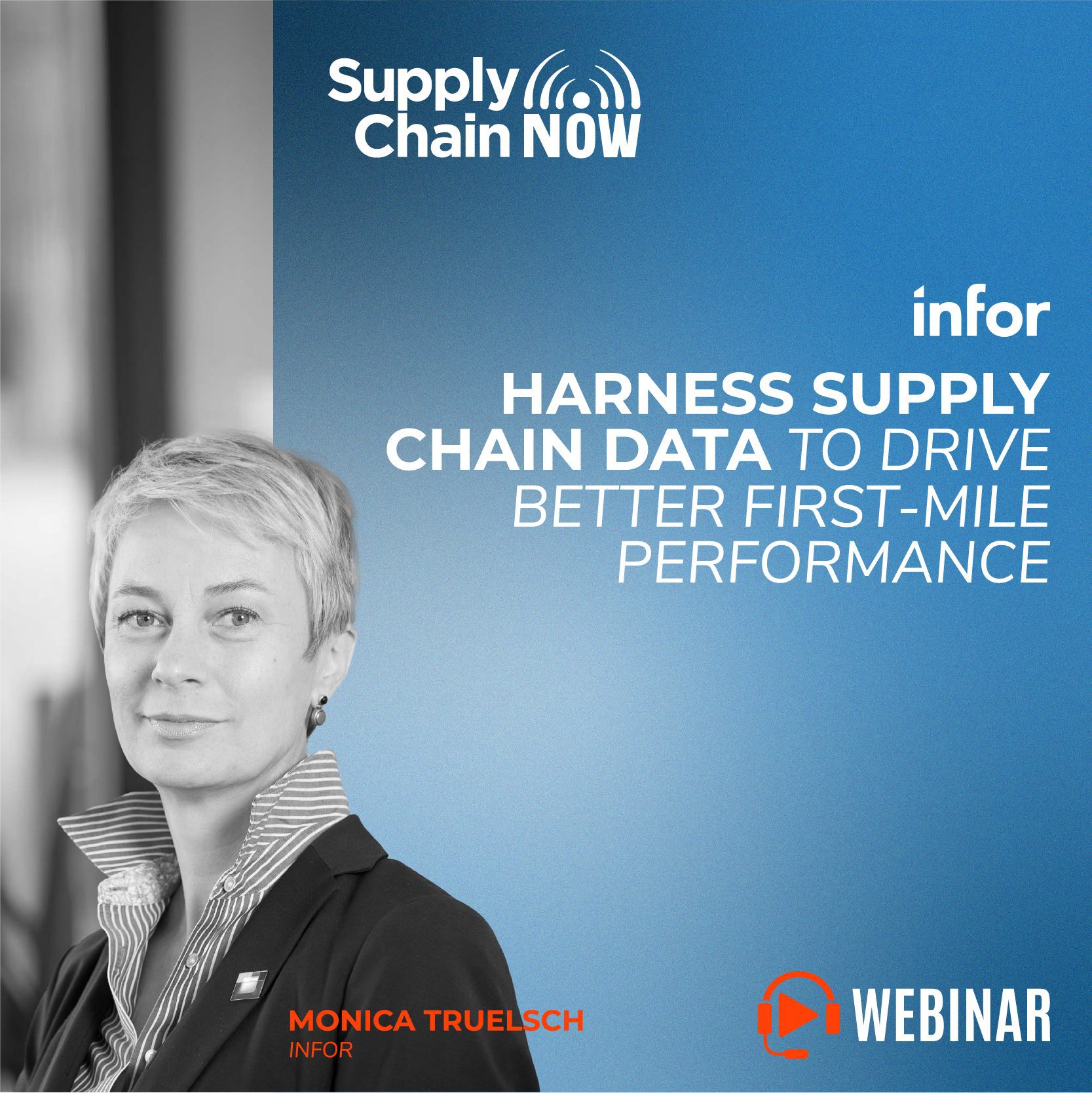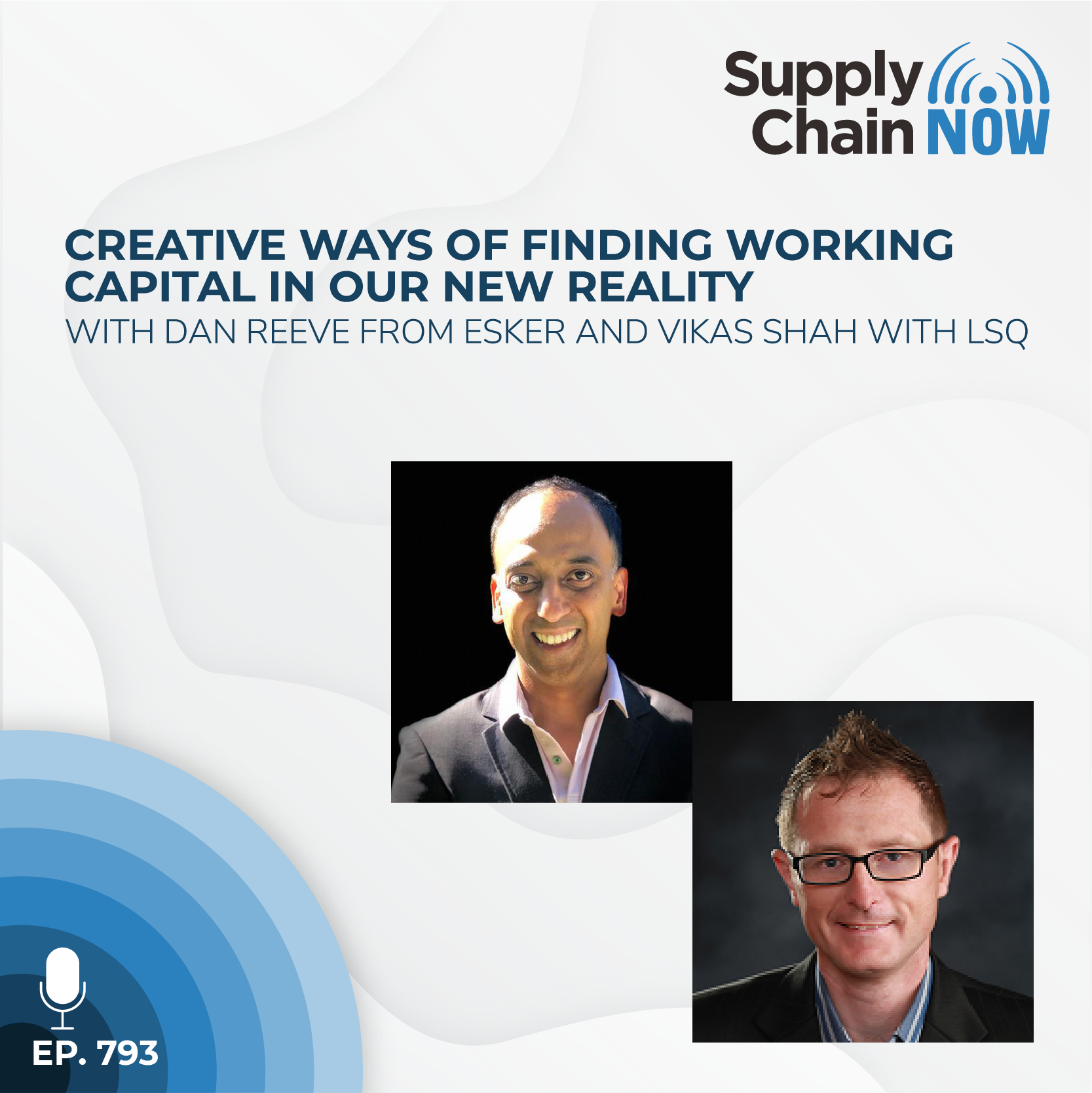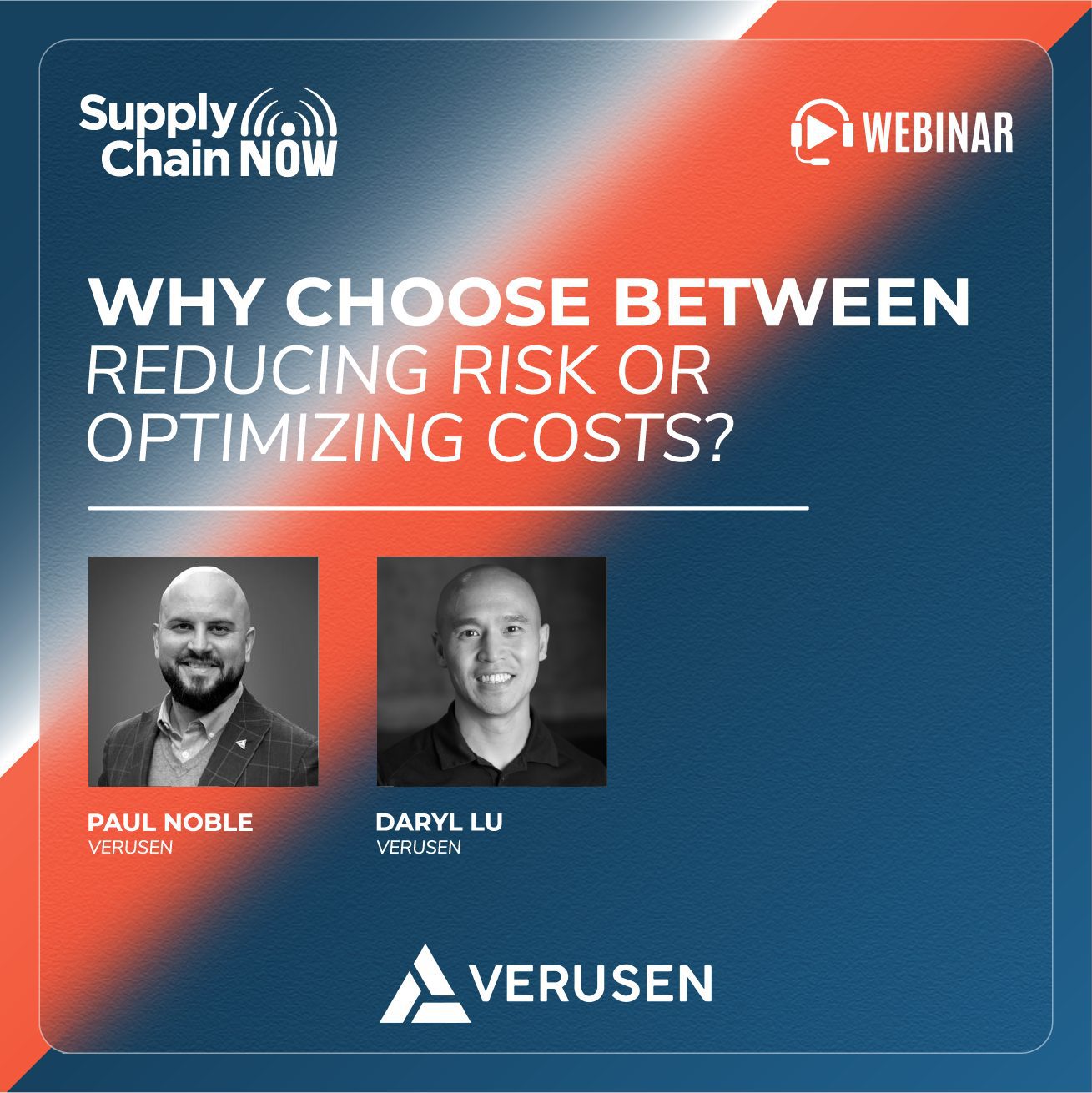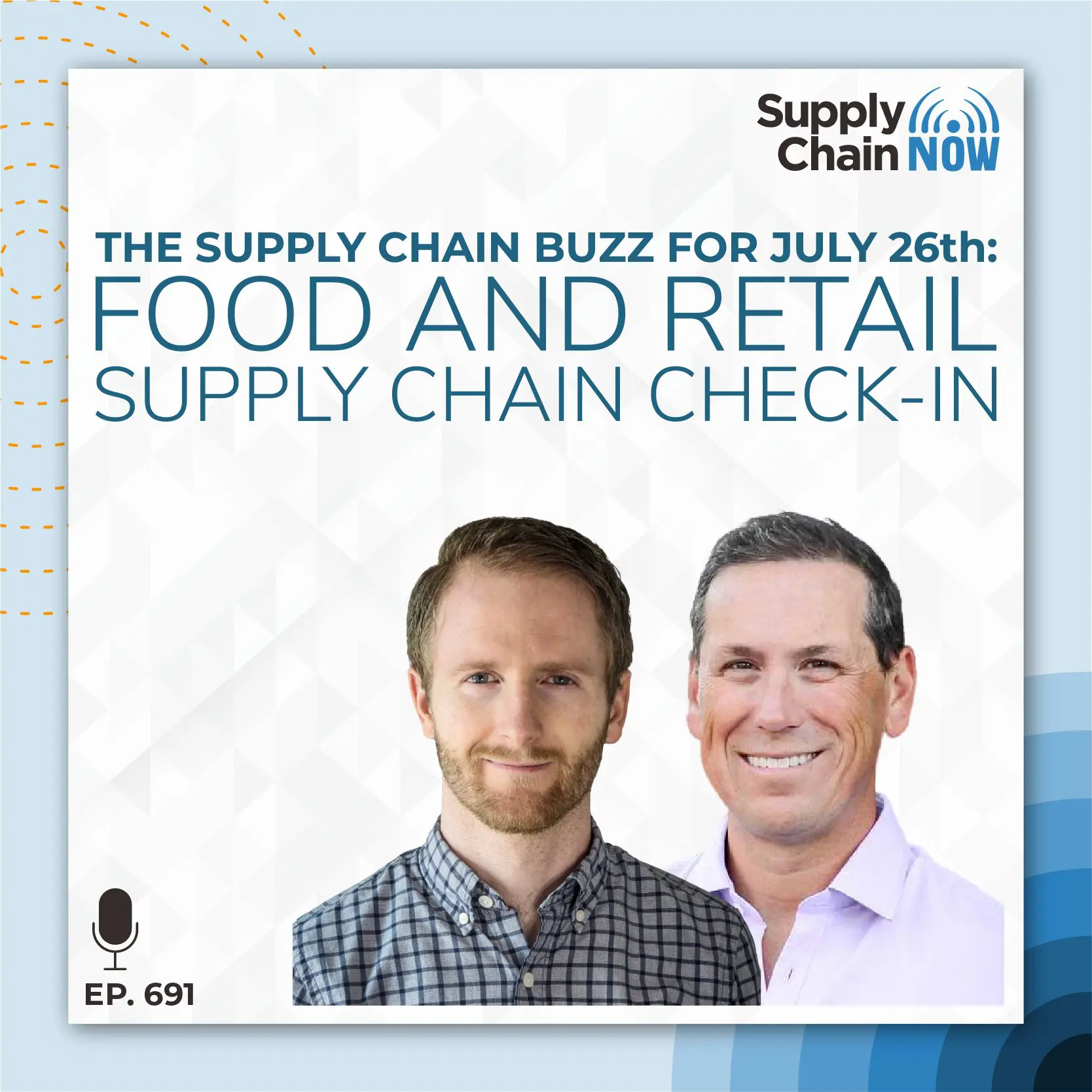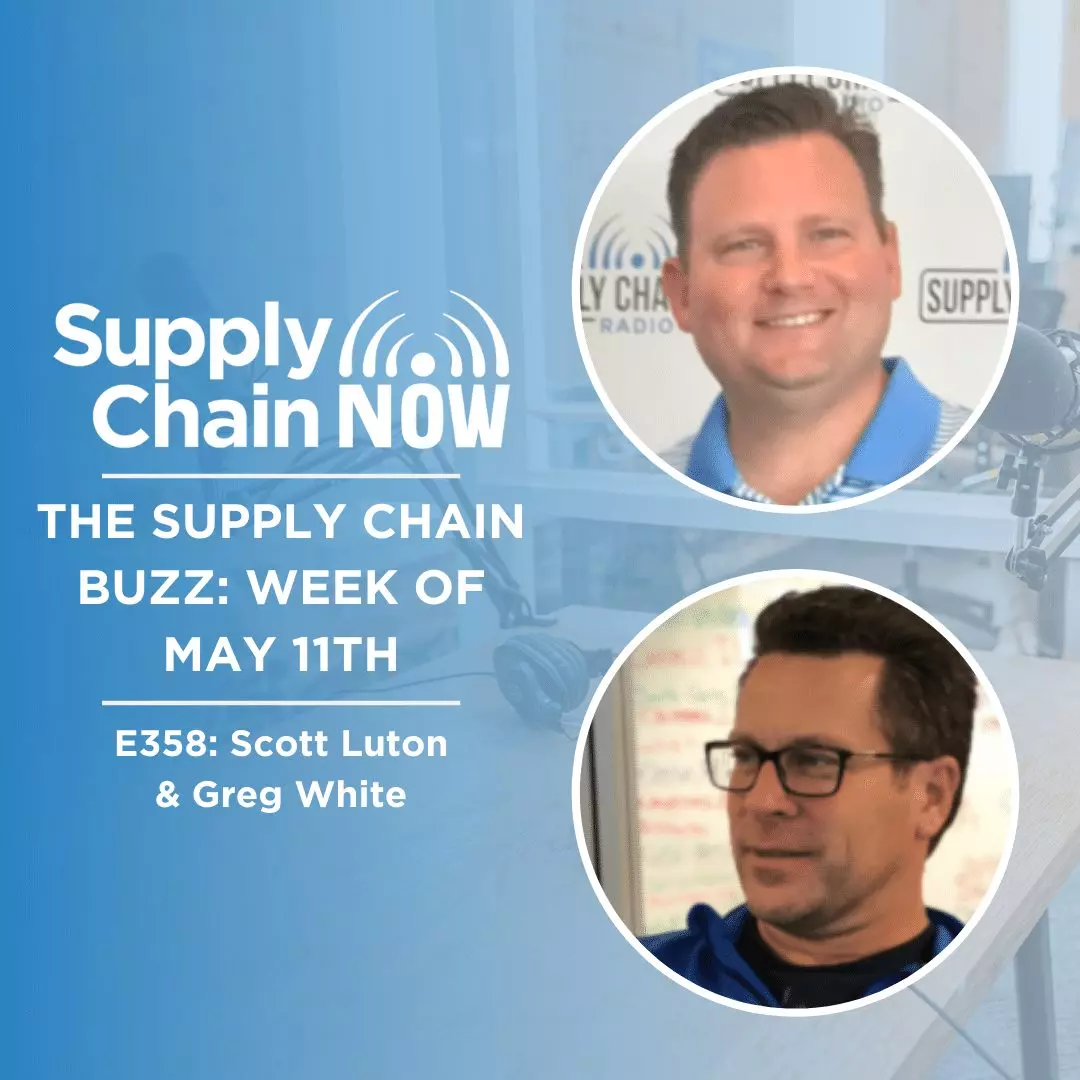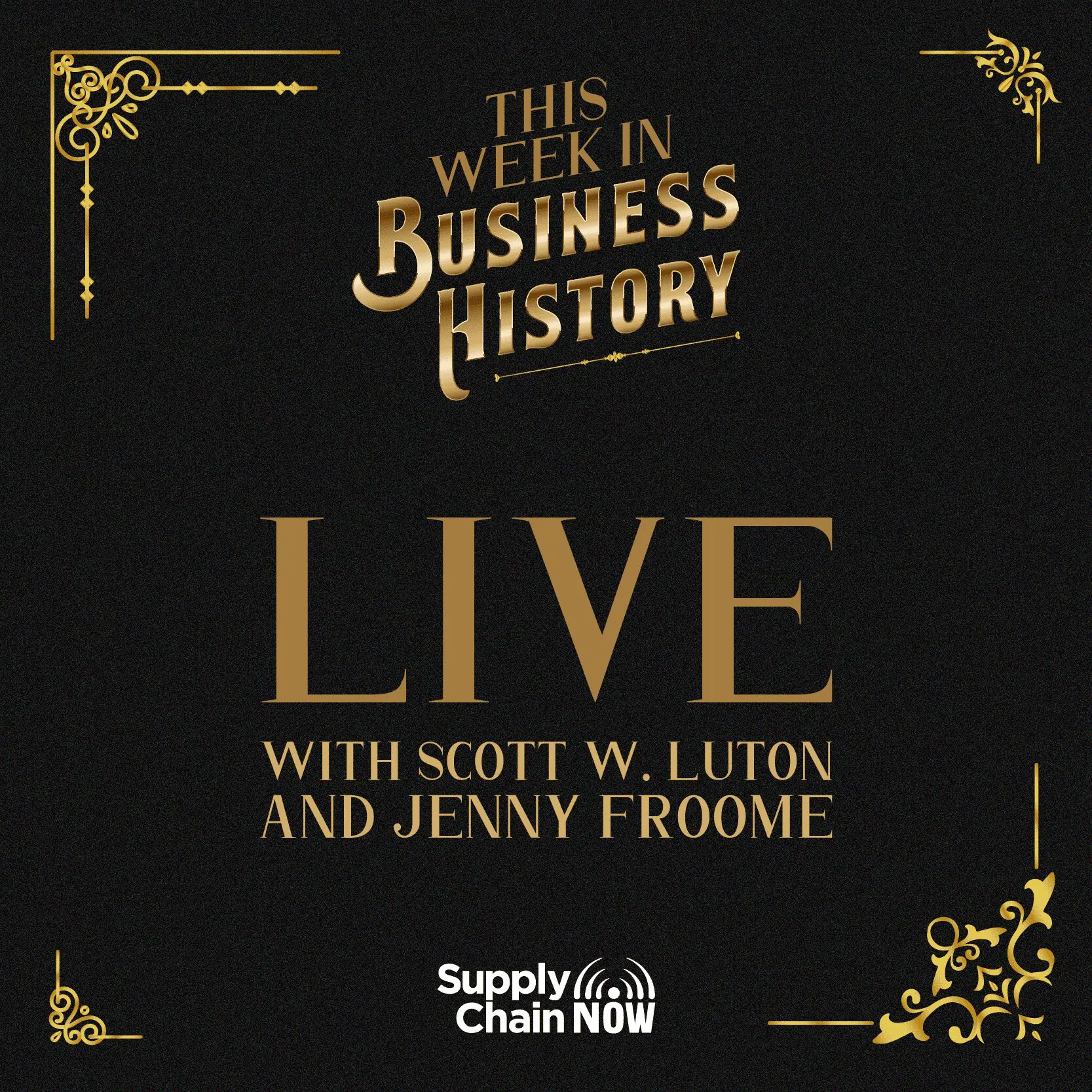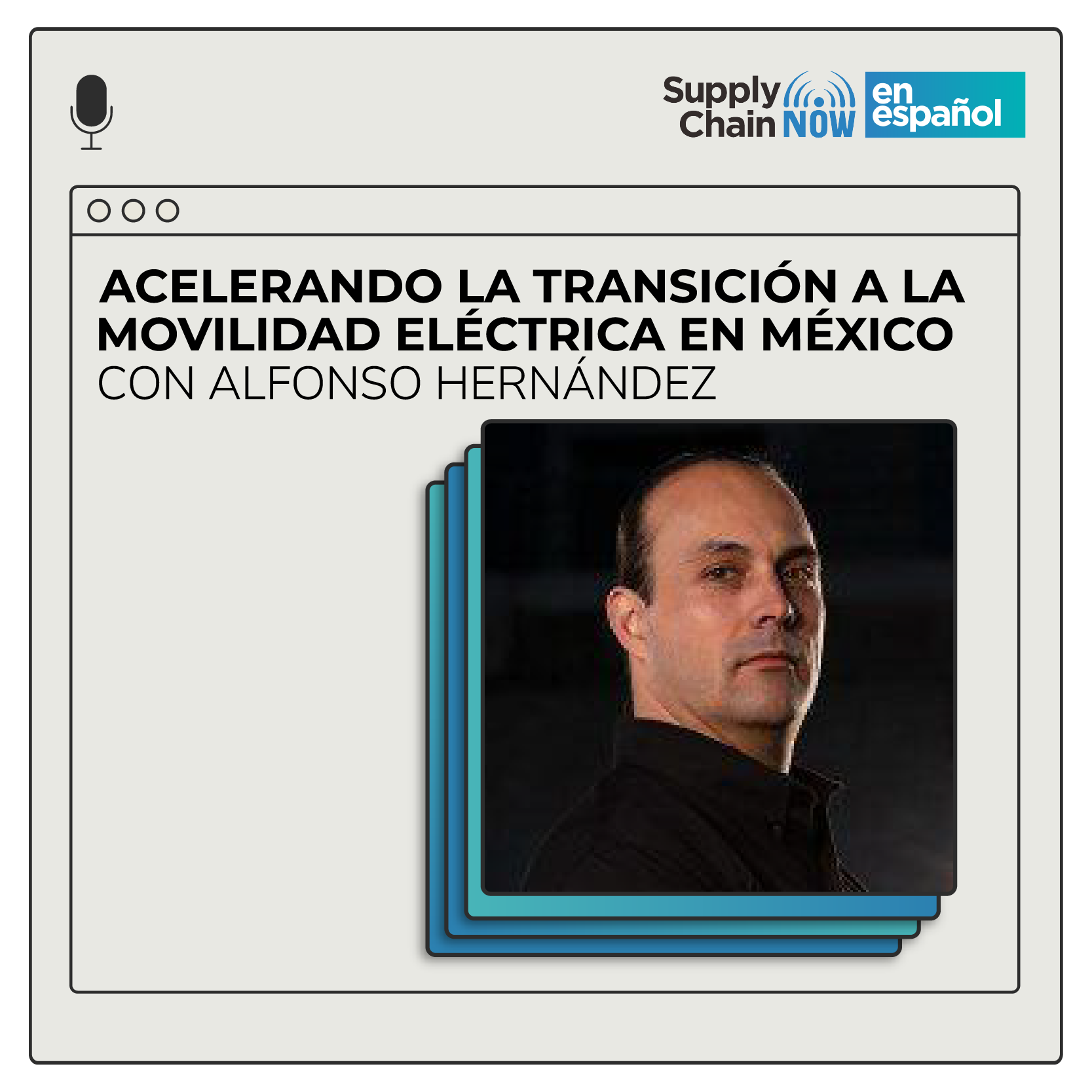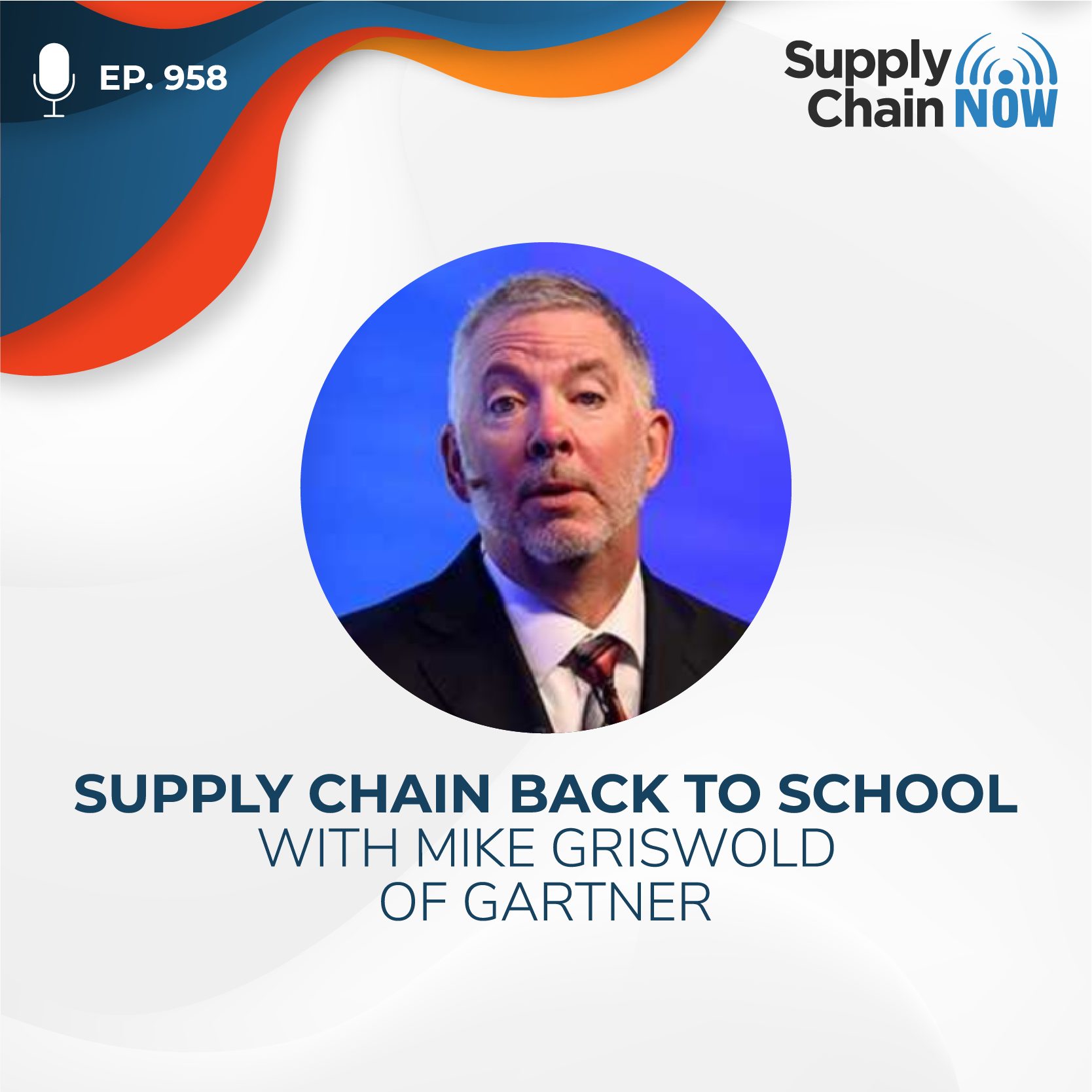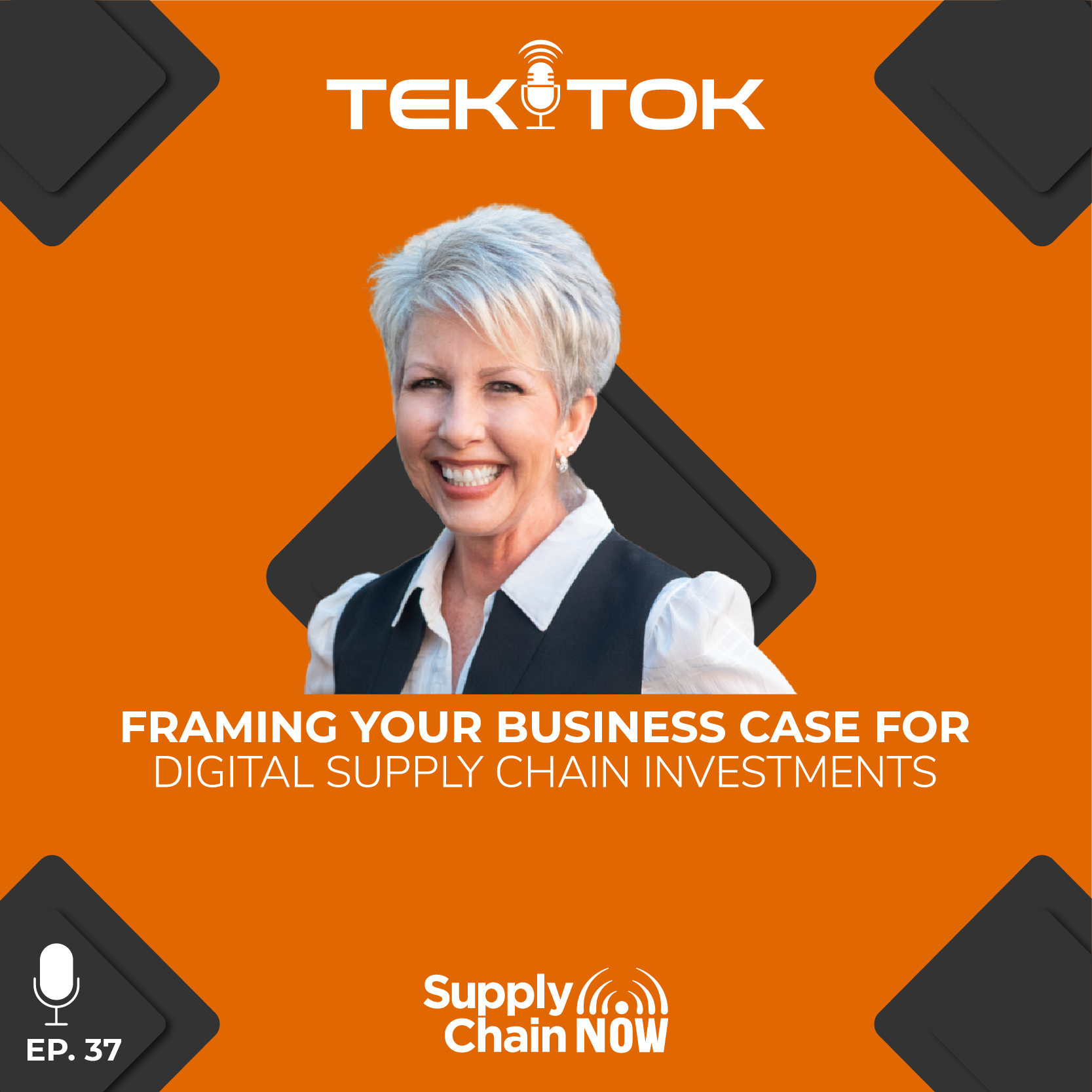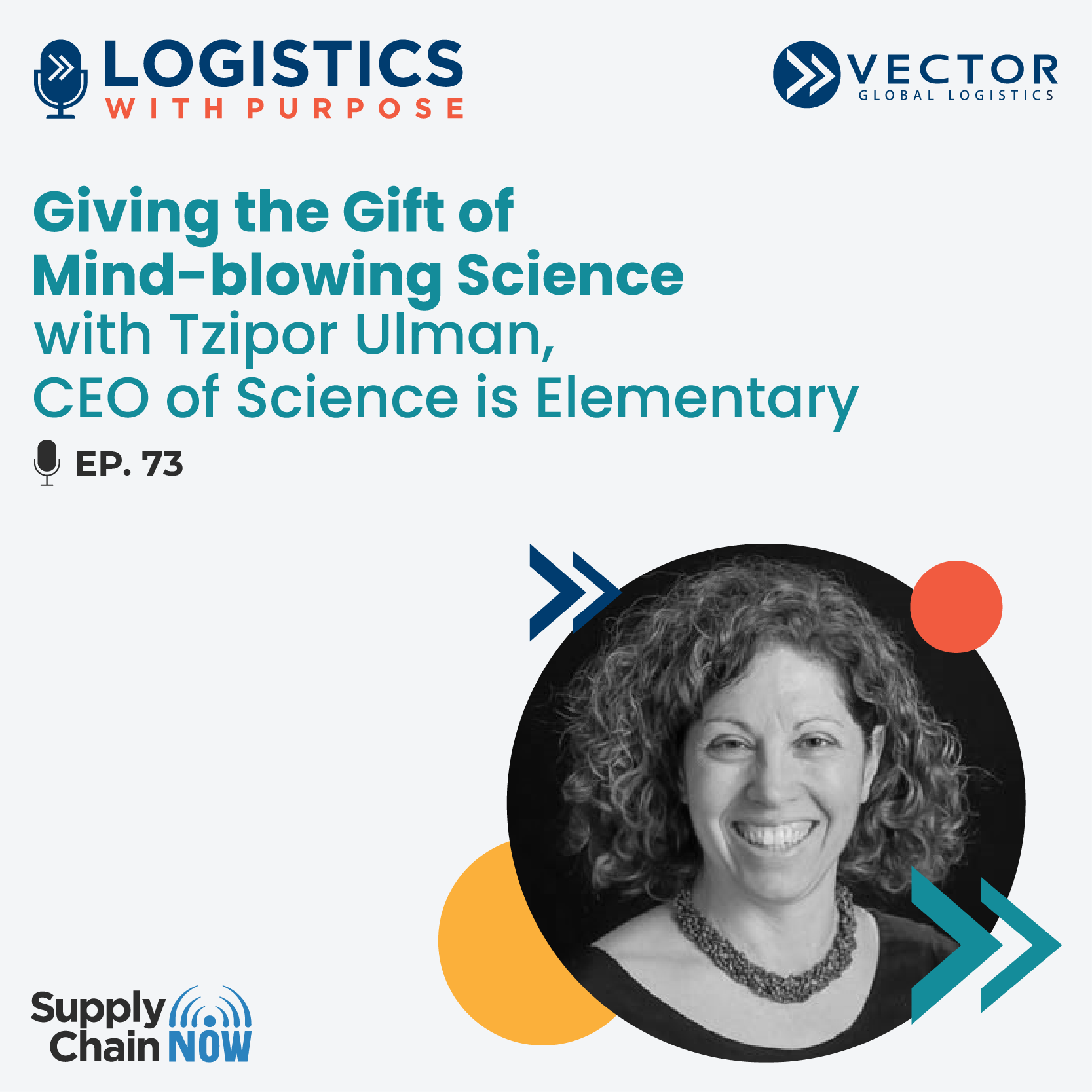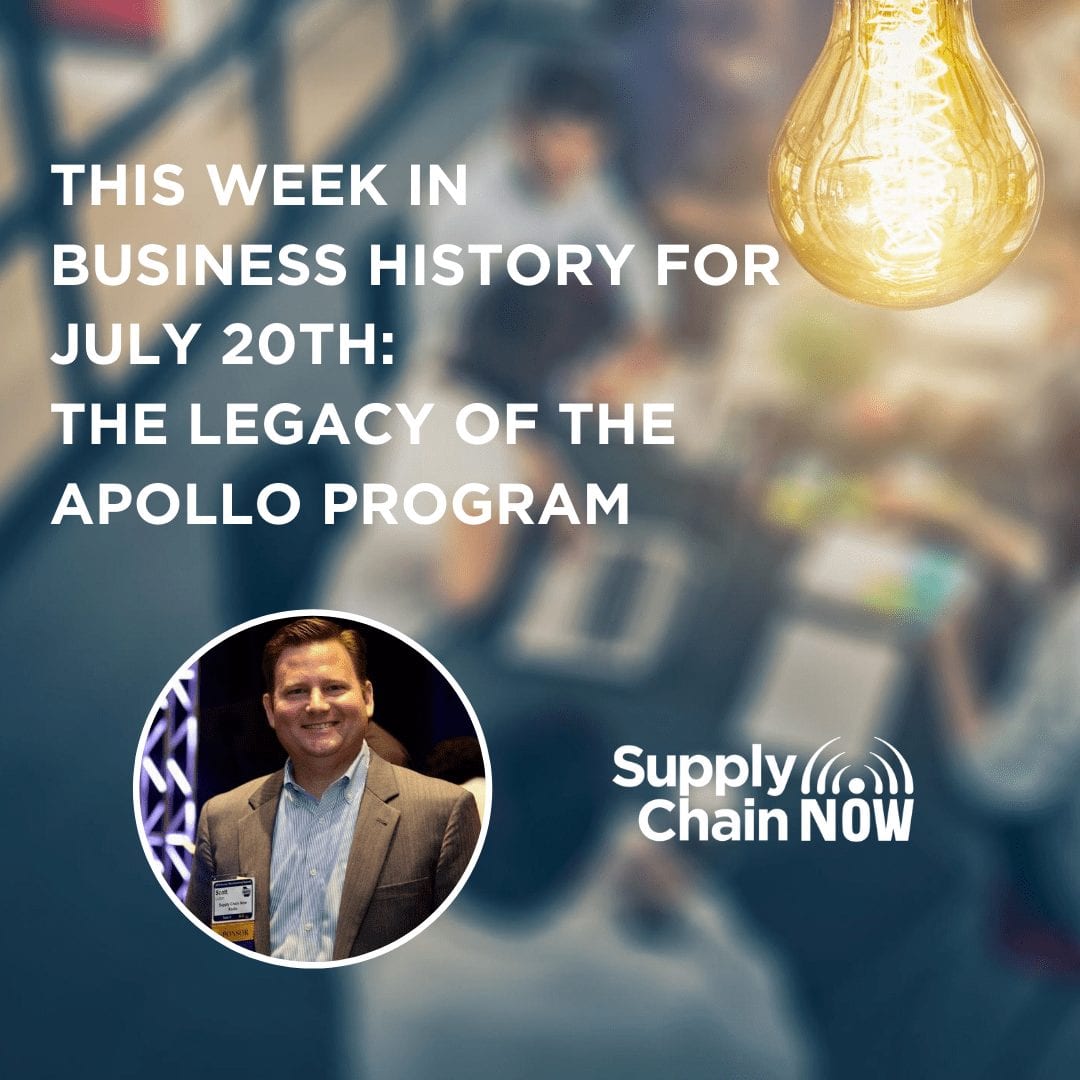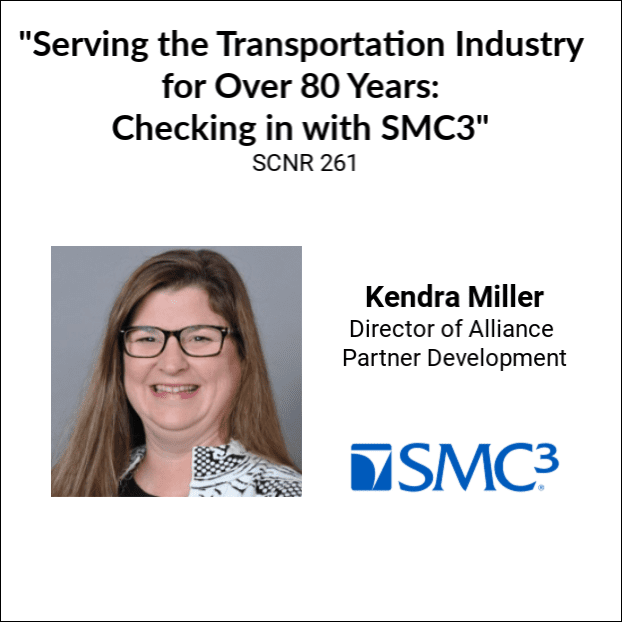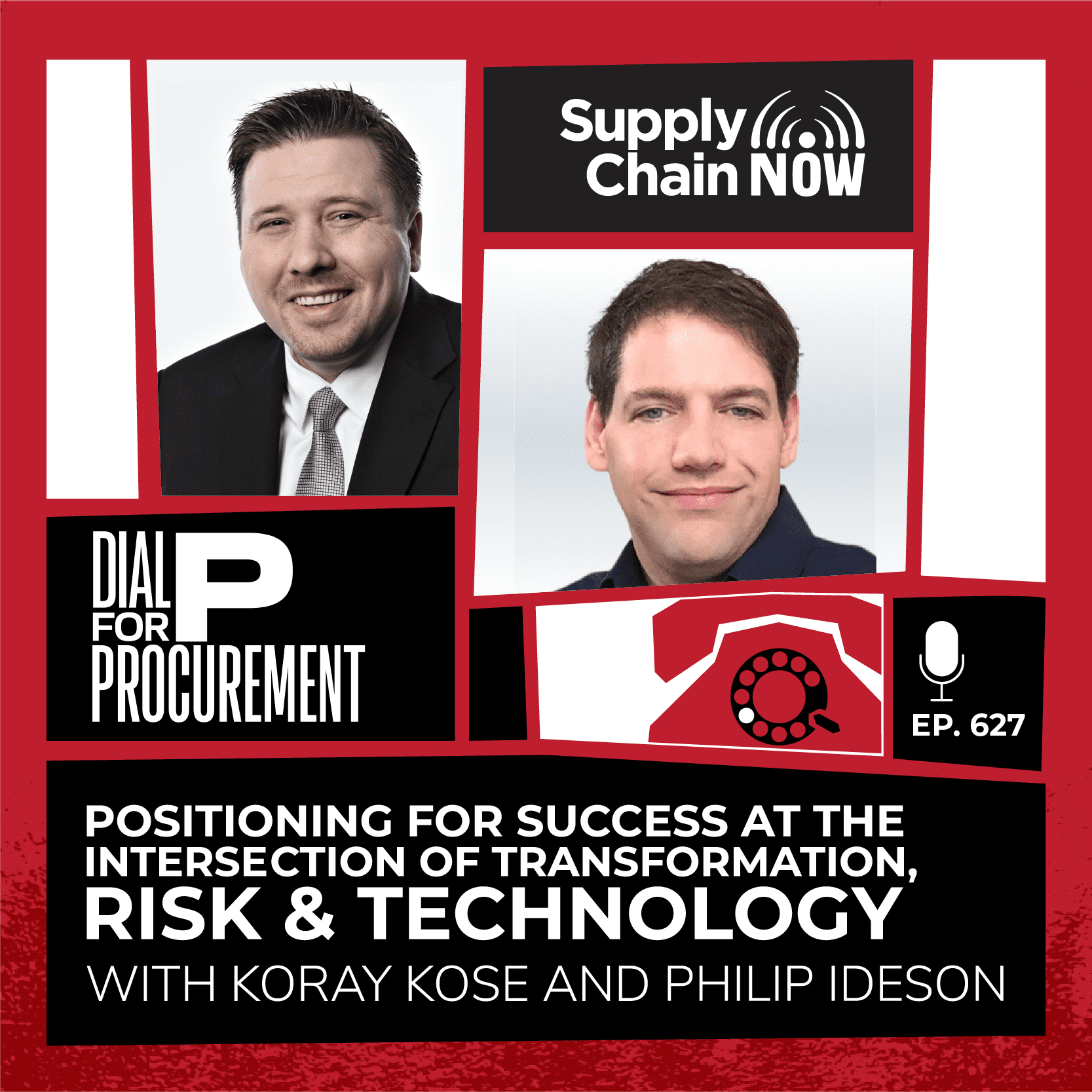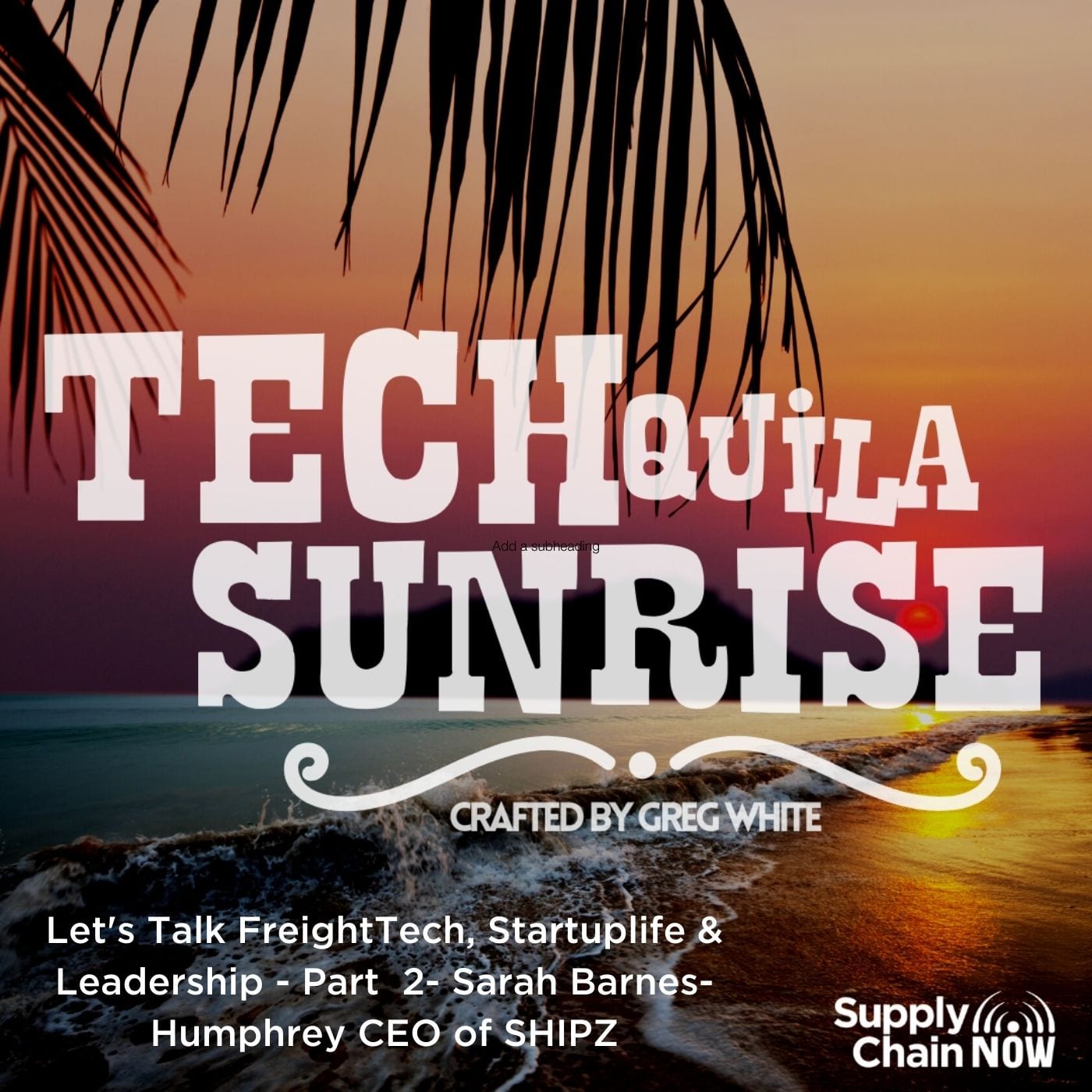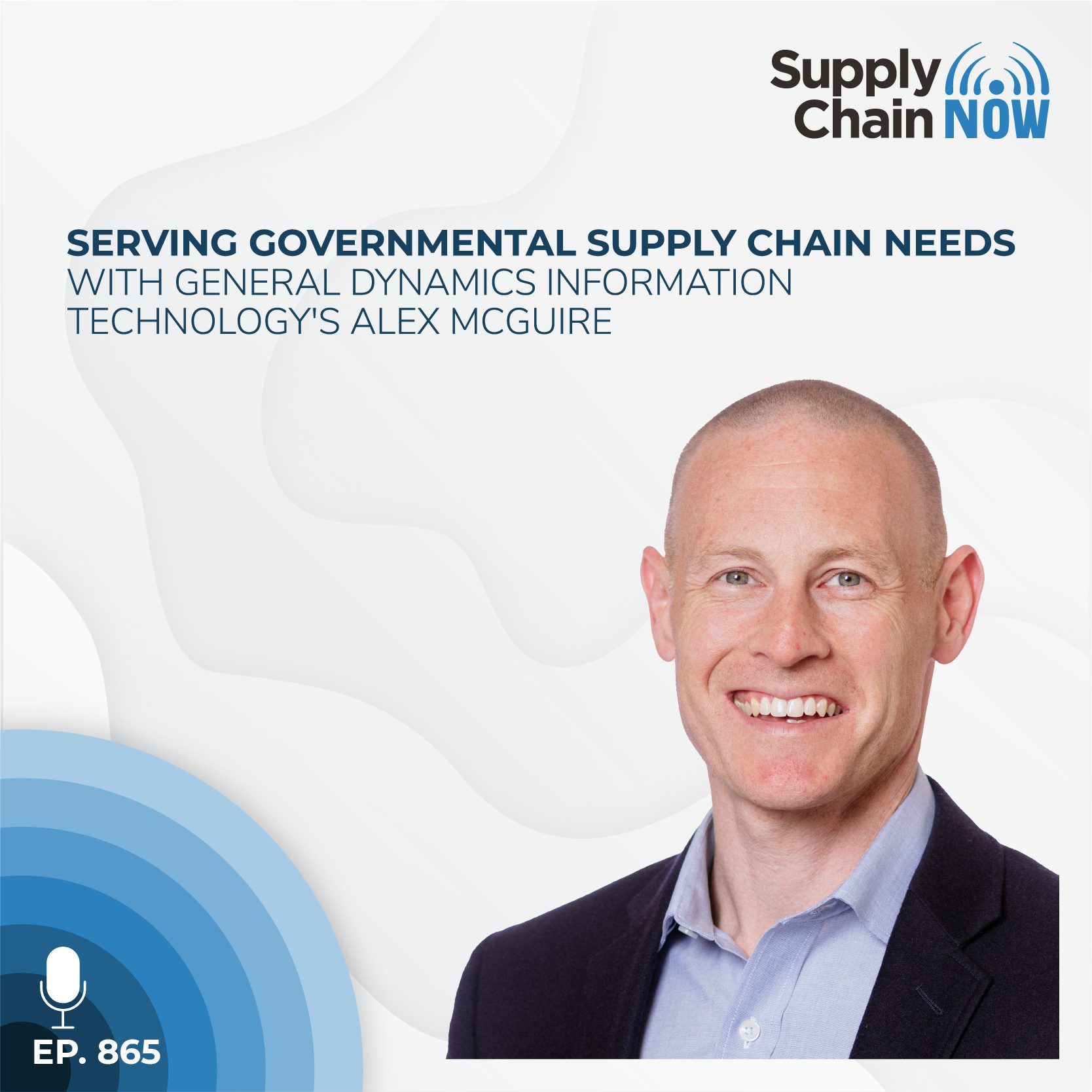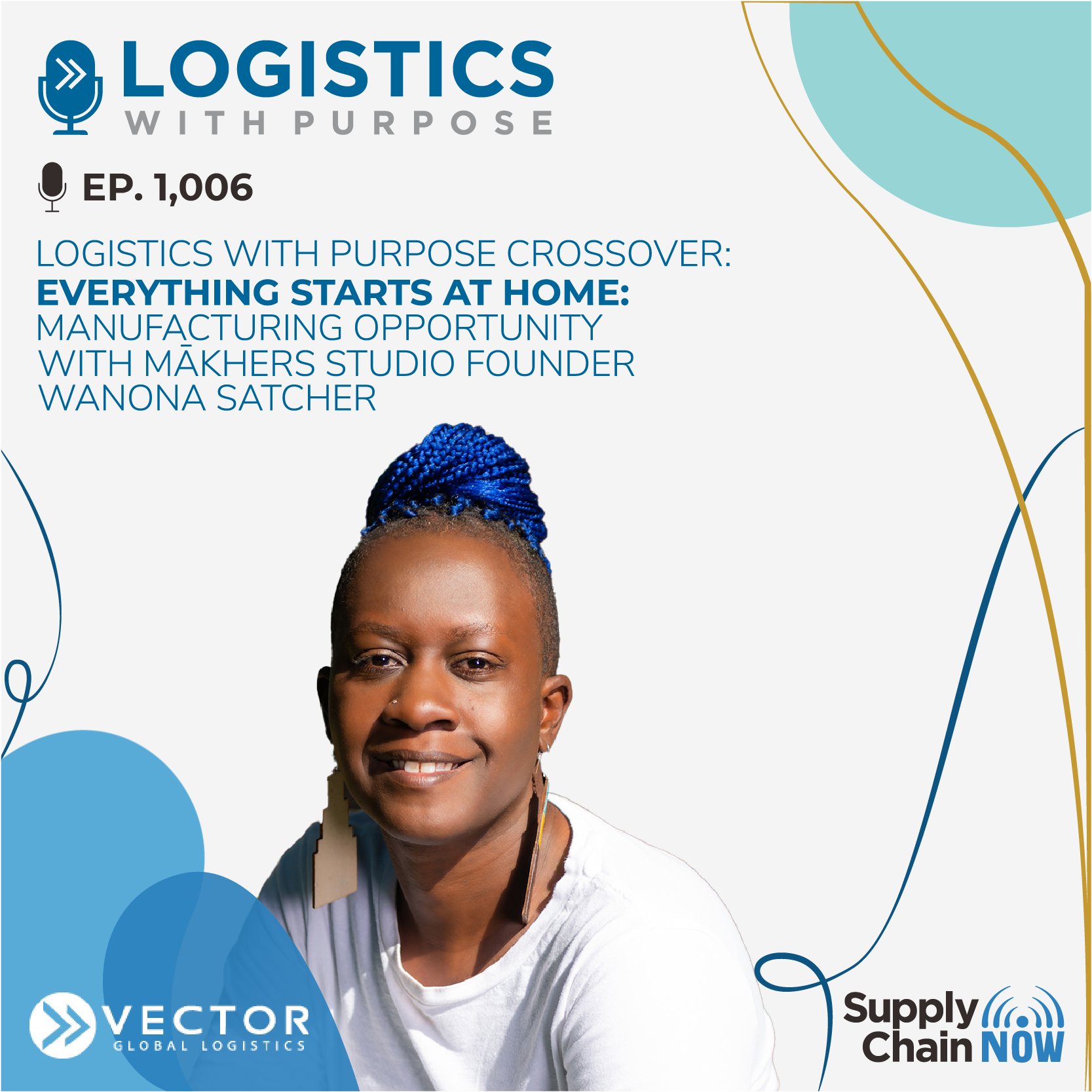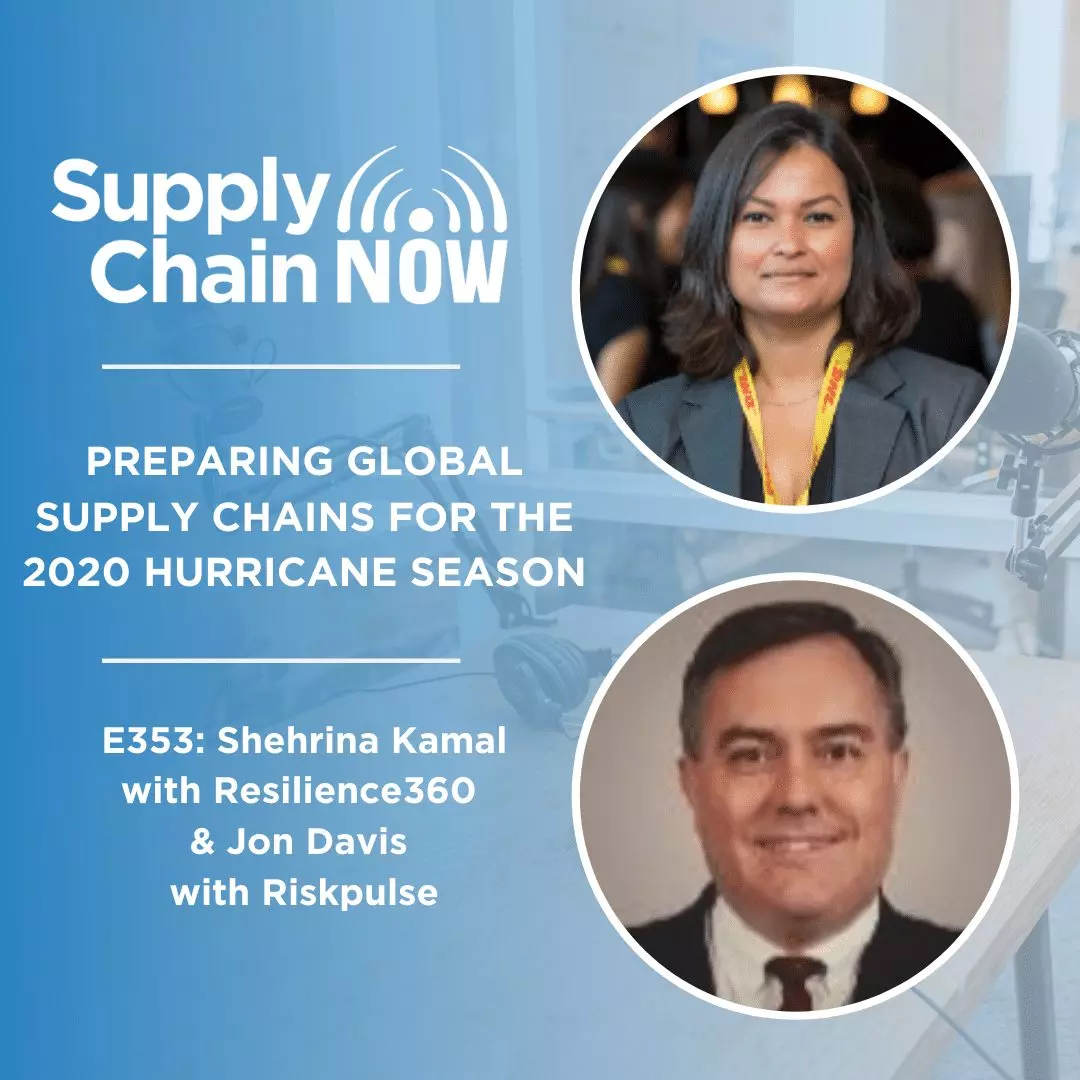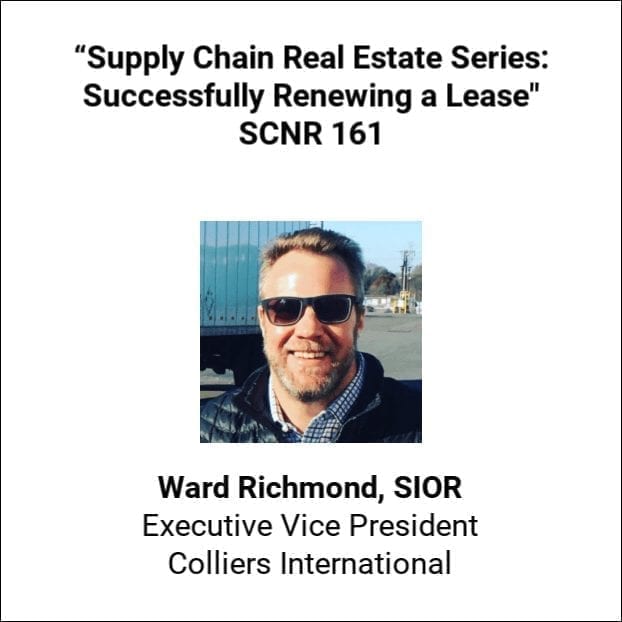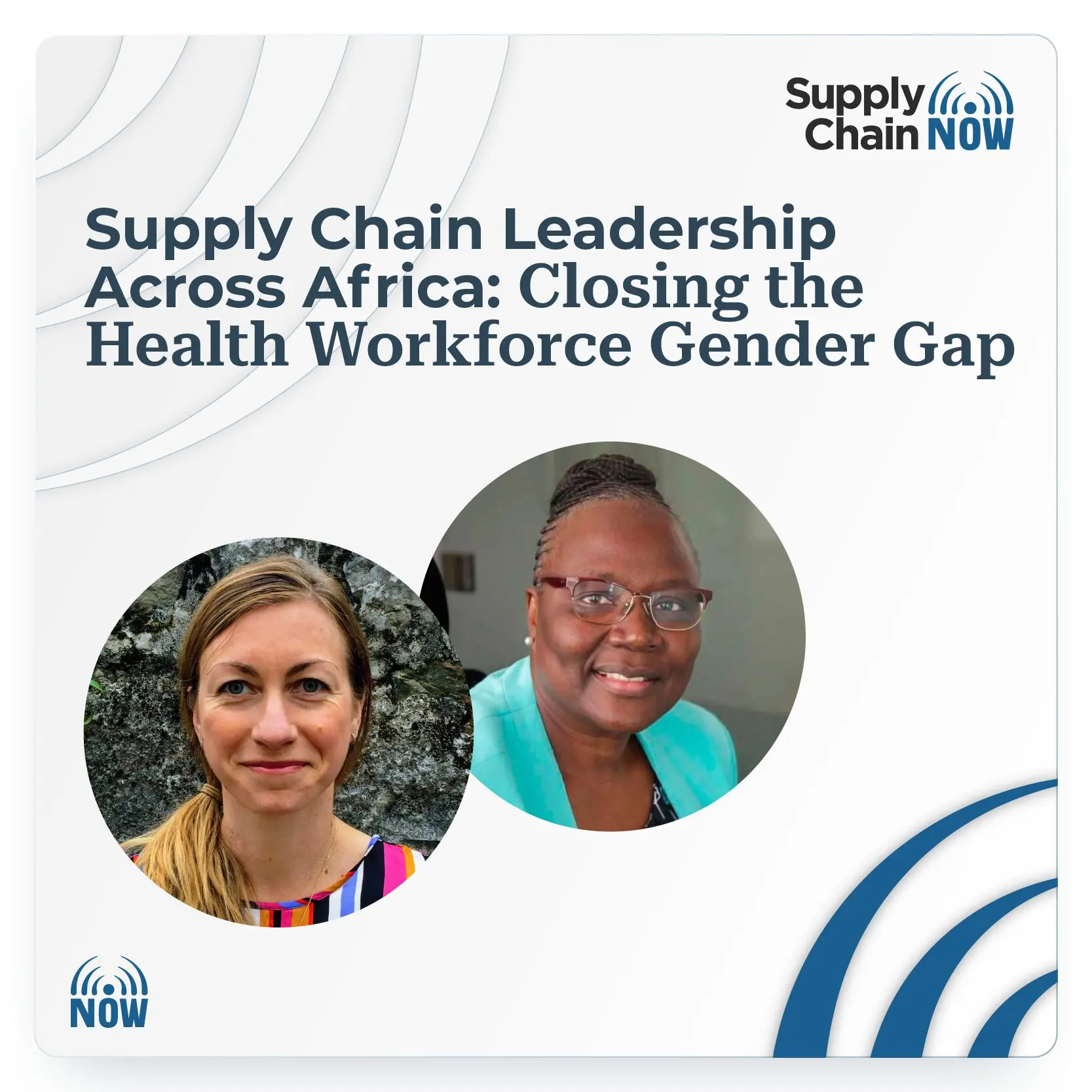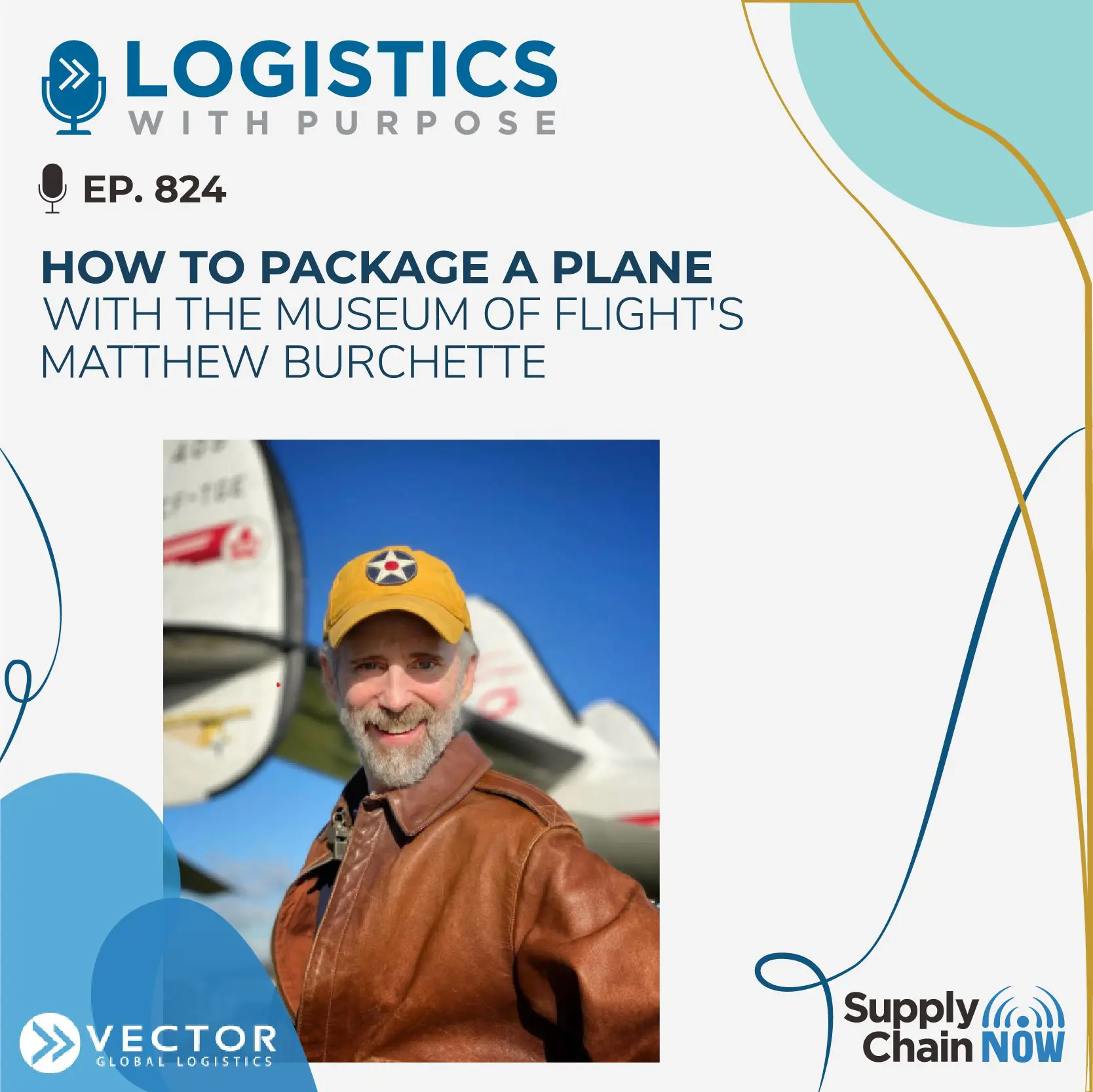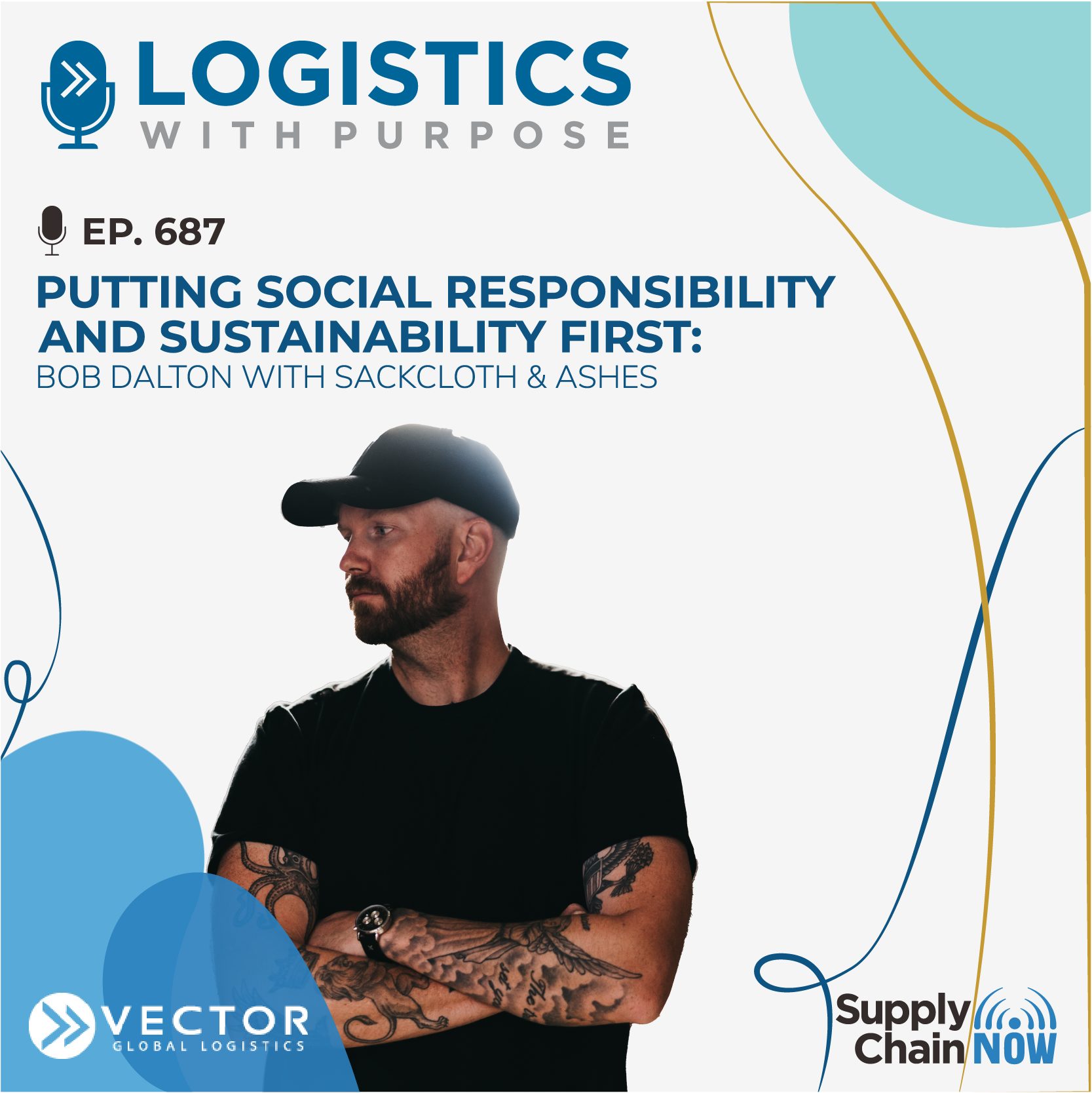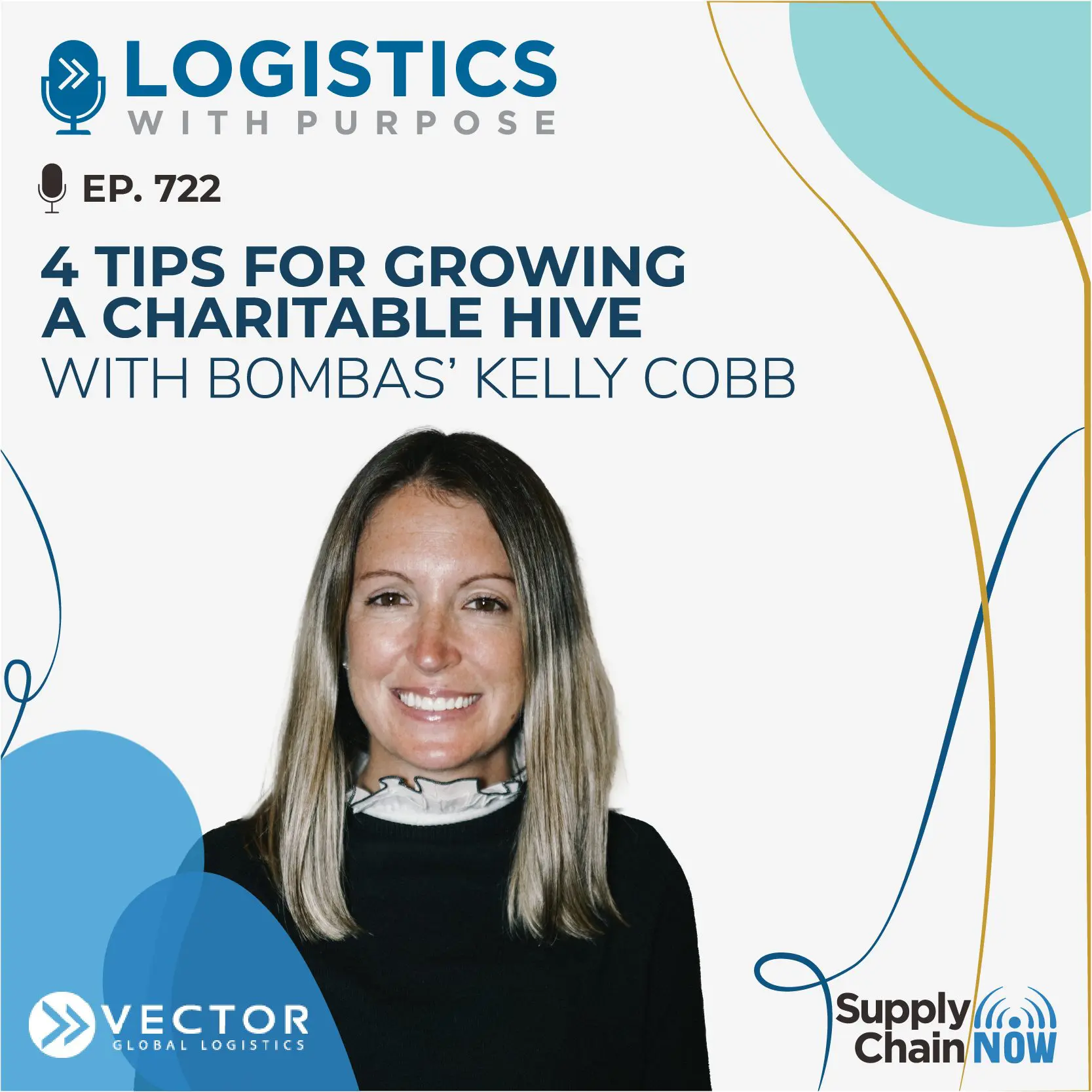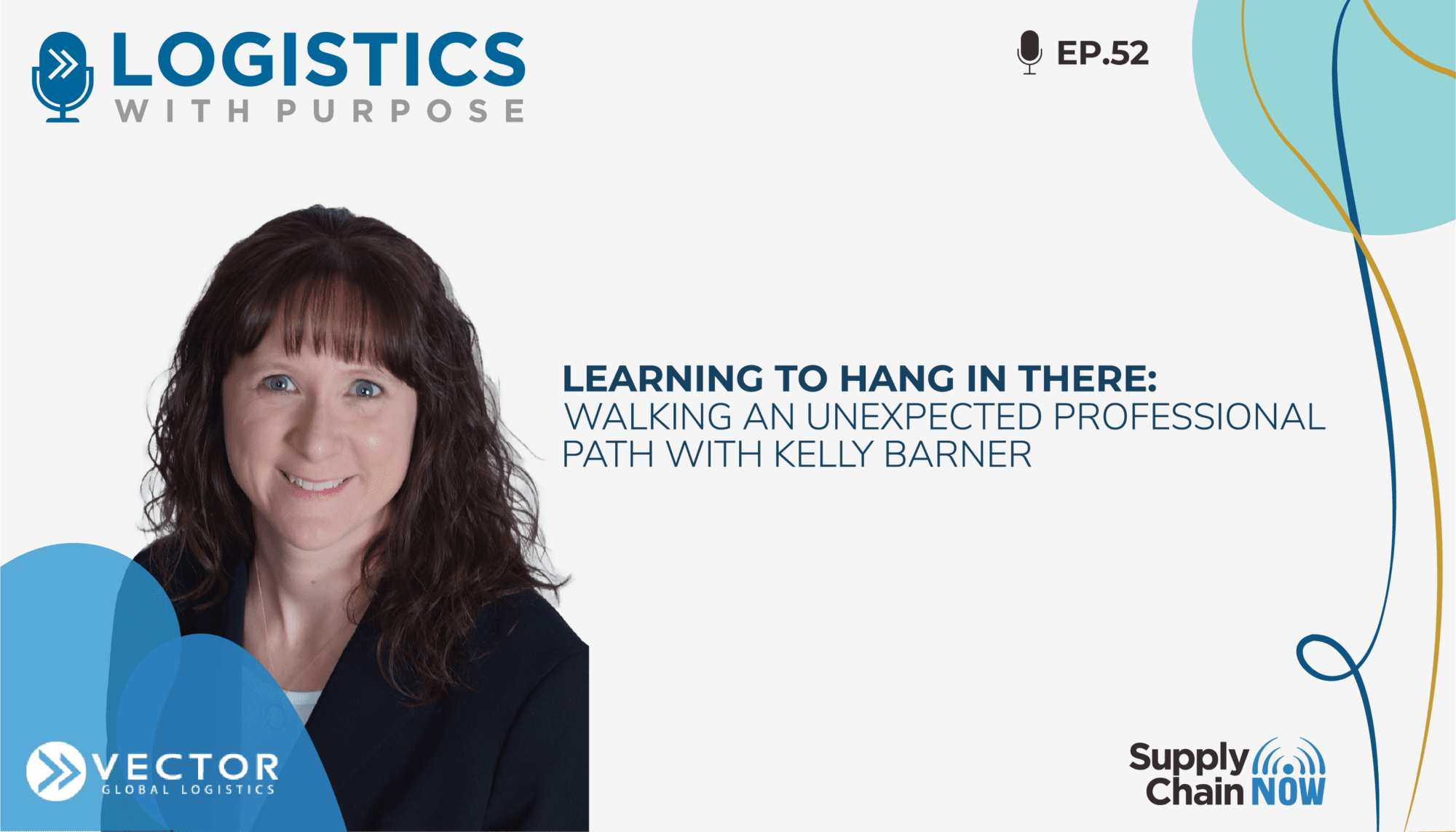
You know what does not work? Simply going outside your company and holding up a big sign that says, ‘Hey, we're minority owned!’ Guess what: nobody cares. Instead say, ‘We offer this amazing service or this innovative product - oh, and guess what, we're also minority owned! We invest in our people and our workforce is diverse. This is core to our success.
- Kelly Barner
Episode Summary
Despite its popularity as a profession now, no one grows up intending to work in procurement (no one!) And yet, many people that follow windy roads into the field fall in love once they are there. With supply chains in the spotlight over the last couple of years, procurement professionals have had the opportunity to drive a new range of value through initiatives like supplier diversity and sustainability. Enrique and Maureen chat with Kelly Barner, Owner of Buyers Meeting Point and the host of Dial P for Procurement on Supply Chain Now.
Episode Transcript
Intro/Outro (00:02):
Welcome to logistics with purpose presented by vector global logistics in partnership with supply chain. Now we spotlight and celebrate organizations who are dedicated to creating a positive impact. Join us for this behind the scenes glimpse of the origin stories, change making progress and future plans of organizations who are actively making a difference. Our goal isn’t just to entertain you, but to inspire you to go out and change the world. And now here’s today’s episode of logistics with purpose
Enrique Alvarez (00:34):
Good day, and welcome back to another episode of logistics with purpose. My name’s Cales and today we have a really real good guest, good friend as well, and coworkers at supply chain now. Uh, but before I introduce her, I would like to say hi to Maureen. Hey Maureen, how are you doing?
Maureen Woolshlager (00:51):
Hey Enrique, how are you?
Enrique Alvarez (00:52):
It’s great. I mean, you and I were talking before Kelly joined us. And, uh, you said that last one you did was what? A couple, uh, couple months ago?
Maureen Woolshlager (01:00):
No, a couple years ago I did one of the first ones with, uh, Greg and Scott and Suzanne Dickerson down in Charleston.
Enrique Alvarez (01:07):
Well, it’s awesome that, uh, you’re back and, uh, we have a great guest today. So without further ado, Kelly bar owner, managing director at buyers meeting point, LLC, Kelly, how are you doing? How’s your week going?
Kelly Barner (01:20):
I’m good in Rick. It’s nice to be here with you and hi, Maureen. Nice to be here with you as well. I’m I’m glad to be on logistics with purpose.
Maureen Woolshlager (01:27):
Welcome,
Enrique Alvarez (01:28):
Welcome. Welcome once again. And, uh, again, it’s been, uh, challenging couple of weeks with everything that’s going on in the world.
Kelly Barner (01:35):
Absolutely it has, but I think it’s changed our perspective on everything, right? Just like, you know, those of us that have been in supply chain or I guess in my case procurement for a while, when things started happening with where is the toilet paper, why aren’t my Amazon packages coming? We were sort of, we had an insider’s view on that. And now we’re sort of looking at Russia and Ukraine with the rest of the world and thinking about what the implications are gonna be. So I think everybody right now is focused on some aspect of that.
Enrique Alvarez (02:03):
Absolutely. Maureen, do you wanna go ahead?
Maureen Woolshlager (02:06):
Sure. Kelly, to start us off, will you tell us a little bit about where you grew up and your childhood and give us a little bit of perspective of, of who is Kelly?
Kelly Barner (02:15):
Sure. So I don’t hide it. I’m a Boston girl. Um, although I say Boston, when I’m talking to people that are in my opinion far away, um, I’m actually in a little town called Shrewsbury, Massachusetts, which is right dead smack in the middle of sort of the rectangle part of the state. Um, I actually right now live in the same town that I grew up in. I did go off and have sort of my fun kid free, no backyard years, um, working in and around the city. But once it was time to do the family thing, we, we came back here. So, um, it’s a really cute little new England town. Um, and it’s amazing now because there is so much technology and so many platforms that are available to us that, you know, I’ve been working out of my home for geez, 13, almost 14 years now.
Kelly Barner (03:04):
So it’s been a very long time, um, a little bit ahead of the curve. I know everybody else learned how to do that over the last couple of years, but it’s been a wonderful opportunity to connect with people as everybody got more into video and virtual events. Um, and so I, I like having my home base here where I grew up. Um, but every single day I come into my office and I sit at my desk where I am right now and I might travel to Atlanta, Georgia, or I might travel to speak to somebody in Germany or Italy. Um, so it’s a, a wonderful time to be both based in Shrewsbury and also virtually traveling the globe every day.
Maureen Woolshlager (03:41):
So Kelly, do your kids go to the school that you went to when you were a child or is it you’re not quite in the exact area?
Kelly Barner (03:48):
So they do actually. And it’s really sad because where I went to high school is now called the old high school.
Maureen Woolshlager (03:55):
Oh,
Enrique Alvarez (03:56):
Oh no. I
Kelly Barner (03:57):
Know it’s so bad now it’s to middle school. Um, my daughter, Anna attends that building and it’s very 1960s concrete, modular tech, um, the new high school, which is actually right up the street from the, from the house that I grew up in is this beautiful glass windows, high tech, fancy looking building. Um, it is a little bit weird. I get to re-walk some of the halls, um, that I walked in, but I will say, um, so Shrewsbury sports teams are the colonials. Um, I was big into sports when I was going through the school system and it still chokes me up a little bit every time when one of my kids goes running by with the blue and gold on and we, you know, GOs. So there’s, there’s just something about sort of reliving that experience through them. That’s been incredibly magical.
Enrique Alvarez (04:47):
That sounds great. Sounds
Maureen Woolshlager (04:48):
Really great. Yeah.
Enrique Alvarez (04:48):
Yeah, for sure.
Kelly Barner (04:50):
It is great. I know I’ve got a, a cross country kid and a football kid, so we have, we’re not the same season, which helps quite a bit fall in spring. Think if my, if my third son wants to pick a sport, it’s gonna have to be basket or something in the summer because the coordinating the sports schedules gets intense
Enrique Alvarez (05:06):
Logistics. Right? It’s all about logistics,
Kelly Barner (05:08):
Logistics with purpose. As a matter of fact,
Enrique Alvarez (05:10):
That’s true. There’s no, uh, better purpose than kind of racing children. I, uh, I for sure. Um, what were, what were your sports back then? Were you also kind of, uh,
Kelly Barner (05:21):
So I was a row a
Enrique Alvarez (05:22):
Track or
Kelly Barner (05:23):
Yeah, I was coordination was not always my big thing, so they didn’t trust me to like kick anything or hit anything with a bat. Um,
Maureen Woolshlager (05:31):
And Molly is actually harder than it looks. I think, you know, it,
Kelly Barner (05:35):
I think, I think it is
Maureen Woolshlager (05:38):
Yourself. I think growing is a sport,
Kelly Barner (05:42):
Got to sit. Um, and as you can imagine, you know, rowing it all in the, the Boston area is a big deal, but I got to row the head of the Charles four times.
Maureen Woolshlager (05:51):
I was just sitting ahead of the Charles, did you do that? That’s so
Kelly Barner (05:53):
Awesome. I did. I rode the head of Charles four times, which I figure you guys can weigh in. I figure that gives me an exemption on the Boston marathon. Yes. I checked my, my local Boston sports thing. Yes. Um, and I was also fortunate because growing up, I went to the one public high school in the entire state that had a crew team. Oh wow. And so I walked into college being one of the very few kids that already knew how row, and it did kind of change my college experience a little bit, going straight to the varsity boat, um, as a freshman. So that was really exciting. So none of my kids so far seem to be into the, into the water sports. Um, but it was, it was a, I love team sports, just like I love team work, right. Whether it’s supply chain now or, or meeting point or art of procurement. So I thoroughly enjoyed getting to be on sports teams growing up.
Enrique Alvarez (06:42):
Well, congratulations. And, um, it going back to your earlier days, if you can actually tell us a little bit of a story of some kind of a, uh, the event that happened to you early on that kind of shaped who you are and that kind of slowly started paving the, the road towards, uh, the Kelly barer that we have today and all the different, uh, things that you currently do. That would be great.
Kelly Barner (07:04):
Sure. So I was thinking about this and I have lots of embarrassing stories. I’m gonna tease those and save those probably for another day. But I think a really meaningful story that comes to mind. Um, so in, when I was going through high school because of space and constraints, eighth grade was actually in the high school. So it was another one of those advantages. We could go out for high school sports. We could sometimes take high school classes. And then we got to participate in some of the high school initiatives. And one of the big events they did every year was a writing contest. And I’d always been a reader, but not necessarily a writer. And what they would do is they would pick some type of, I don’t know, idea, sparker. It would be a song, a piece of artwork, a poem, and everyone in the entire school would be exposed to this idea spark.
Kelly Barner (07:55):
And then we had some number of weeks in English class to write a short essay. And the eighth grade year, it was this beautiful song. It was actually, um, variations on the cannon Paco bells cannon, but it was all piano music, absolutely gorgeous. And I would’ve personally been happy just to sit in class and listen to the music for all those weeks. Um, but I wrote an essay with all my classmates and some minute it, I was selected as one of three winners from my grade. And I think that was the year. It dawned on me that it wasn’t just about reading for me, that it might be writing. Now, ironically, I carried that right through high school. And when I went to college, my major was English lit before 18 hundreds. So my plan was to be a college professor focusing on Shakespeare TRSs and Milton, which clearly didn’t work out because now I’m in procurement and supply chain.
Kelly Barner (08:49):
So I didn’t end up doing that, but I did find an opportunity after working in business for a while to come back and take my subject matter expertise, combine it with my ability to write, um, and truthfully make a career out of it. Most people do not like to write. They’re very honest about that. And I will always say, thank you, cuz I consider that job security. Um, but I certainly had no idea when I was in the eighth grade, listening to that music and writing my, my fictional essay, um, that it would end up actually setting me on my future professional path.
Enrique Alvarez (09:19):
That’s incredible. So you never really had like a diary that you kept or anything like that was your first kind of official writing assignment and that’s what woke your, that was it writer in you up?
Kelly Barner (09:30):
Yep. And, and as a matter of fact, I went on to the, the essays were all a, I think to prevent the teachers from being tempted to pick favorites. Um, but I went on and of the five years that I was in high school. Um, I won the contest a total of four times. So I think that had a lot to do with, with pushing me into being an English major in, in college. Um, but even now I never get tired of writing. I thought really enjoy every new project. Every project is a puzzle. And even though business writing is very different from Shakespeare or, or creative writing, it’s still a process that combines learning and listening to people and figuring out the right message and finding a way to make it interesting. So it may not be fiction anymore, but I still think there has to be entertainment value to our, our business writing and reading as well.
Enrique Alvarez (10:19):
Do you still write some fiction for yourself or at some point, have you considered that or
Kelly Barner (10:24):
I don’t all of my writing now. It’s like, what’s that expression? Um, it’s, it’s always the cobbler’s kid that don’t have shoes. All, all of my writing time goes into the professional stuff I will say. And every spare moment I get, I will find something to read and some of its business, a whole lot of it’s definitely not. That’s sort of the one passion that, you know, when I think about where do I spend my guilty moments, I definitely spend them between the pages of a book. But, um, these days, all my creative writing is business oriented. What are you reading right now? Right now I am reading. It’s actually right over there. Um, the title, what is the title? Oh, it’s a book about parables. Um, and so it talks about how, when we read a story, what are we supposed to see as literal and what are we supposed to view as sort of teaching us something or being an example of, of a style of conversation.
Kelly Barner (11:20):
So it’s a little bit reading about writing, um, which ends up being useful, but it’s, it’s part of a small discussion group. I have a, a small group of ladies that I meet with every Thursday morning and I find it really helpful to get me out of my comfort zone. It couldn’t be further from business or supply chain than anything. Uh, but they’re very smart group of ladies. And so it’s a completely separate, we go from book to book, to book, reading different kinds of things, and we challenge each other. In fact, a couple of them have talked about different book groups, not that they’ve been kicked out of,
Enrique Alvarez (11:56):
But they have
Kelly Barner (11:58):
Probably, um, where they figured out, maybe it wasn’t the, the book group for them. It’s definitely not contentious, but there’s a lot of, I don’t agree or, you know, I don’t really think that I read it that way or I see this point over here. I don’t think that’s what he meant. There’s, there’s plenty of debate and ID exchange that goes on. And it, I, I will sometimes be, I’ll be honest. Don’t tell them, reading the last few pages as I’m joining the zoom because there’s never quite enough time for reading, but I always leave the group being so glad that I stepped away from what I consider sort of my work life and spent 90 minutes in this other universe, thinking about other things. I come back to everything with a much clearer mind.
Enrique Alvarez (12:36):
It’s important, right? It’s definitely important to it is from time to time, take some breaks, uh, care about yourself, care about your mind and your agree body and just be healthy and change is always a good thing. So, yeah, especially now with everything that we’ve been going through in the last couple years, and it seems like it just going to continue you piling up, uh, into the future. So thank you for sharing that. It looks like you have everything very well set up. Is that something intentional given you being such a professional, uh, zoom, uh, almost celebrity by now, uh, is, are those books, do they mean something? Is that, can you tell us a bit about what you can see in the, they do,
Kelly Barner (13:14):
So let’s see if I can do this without breaking eye contact. Um, right. My red phone, that’s obviously for dial P um, it’s sort of the branding of my show on supply chain. Now, the three books, one of which I’m blocking a little bit, um, I wrote those, those are the, the three books that I’ve written, um, down below there. So while I was consulting in procurement, the Brigg project that I work most of the time, which is what sort of gives me my logistics experience is I helped Conway before being acquired by XPO, not only implement procurement technology, but really build out a program. They had only been purchasing and between process and reporting and governance and all of that. I helped them build out, um, a more mature procurement program. Um, I, you know, another supply chain now tie in, I am a huge fan and supporter of the veteran community.
Kelly Barner (14:06):
Um, so that flag was made by an air force veteran by a veteran owned company, something, you know, I think we’ll talk a little bit about supplier diversity as we get into the conversations. So I always like to have that over my shoulder and then the other two things. So that’s part of the complete works of Shakespeare. Um, on the one side with, this is how cool I was in college. I studied in England and what did I bring home in my suitcase? Not beer, not, you know, soccer slash football stuff. I carried home marble bookends of shakes beer. So that’s, that’s my bookends. And then the picture, this is the lady, um, right near where I am. Uh, there’s a beautiful Worcester art museum. And when the world was closed for the pandemic, they did a really nice thing where they would go around the gallery and take pictures of the different artworks that are hanging in the gallery.
Kelly Barner (14:58):
And this one is a work. It was apparently a part of a series of very popular breakfast paintings of well to do ladies, um, from the, from the 19th century. And this picture went by in my Facebook feed and I did my best, you know, to keep it together during the, the extreme shutdown, but everybody has their moments. And I will admit that when this picture went by, there was something about the lady that really captured my attention. And so I took a screenshot of her and she was in my phone and it’s hard to tell probably from there, but the features of her face are not particularly well defined. And I found myself almost meditatively in quiet times or times when I needed a break, I would go back and look at the picture again. And I almost found that she looked different based on my day. And so some days she was just sitting quietly and peacefully every once in a while I would look at her and think, oh my gosh, she looks sad today. Or today she looks tired. Other days she might look prayerful. And so as soon as I started thinking about what I needed in my backdrop, don’t worry, I didn’t steal it. It’s not the original.
Kelly Barner (16:04):
And I go lift it off the wor art museum gallery wall, but I did manage to get a canvas print. Um, and even though I don’t see her, I, I see her every morning when I come to work. And other than that, she’s got my back. Um, but it, to me, it’s a reminder of going through the, sort of the full range of emotions of that time of everybody being home. So, so that’s my lady.
Enrique Alvarez (16:26):
It’s a beautiful painting.
Kelly Barner (16:28):
I love it. I really do. I have to be careful every once in a while end up wearing the same color as her and people will ask me if I’m dressing to look like the picture. So I try to stay away from the sort of tey blue. Um, but it’s, uh, it’s a very nice calm setting to come to work in every day.
Maureen Woolshlager (16:44):
So, Kelly, you’ve talked a lot about, you know, moving back to where you grow up and kind of your, somewhat of your personal progression over the past couple years, we haven’t really talked about your professional pro pro progression yet, but what if you could go back and talk to your 21 year old self, what sort of advice would you get? I mean, I know you just turned 22, so you for step,
Kelly Barner (17:06):
I, I’m trying to think way, way back to last year. I, I know,
Maureen Woolshlager (17:10):
I know it might be a stretch, but, um, um, it, you know, I, is there any advice or what would you tell her, um, that, that maybe to do something different? Or what advice would you give her?
Kelly Barner (17:20):
I think I would tell her to hang in there. You know, it’s tough transitioning from college to the real world. Um, and I think, you know, we talked a little bit about the fact that I was part of a crew team and, and we rode full eights. And one of the things that I hit had experienced, I mean, for, let’s say nine years by the time I graduated from high school is pretty much year round. There were, you know, the eight rowers plus the coxswain. And so there was a very tight knit group of us that in college, we had practiced at 5, 5 15 in the morning. Wow. So we were sort of offset from the rest of the college universe. And you would get to the point where it felt like your whole life was on the same rhythm as this tight-knit group of girls.
Kelly Barner (18:00):
And then we graduated in everything sort of scattered to the wins. And I was lucky. I went on to grad school and then I got a job, but it took me a aisle to sort of find my new tribe. It took me a while to feel truly connected to another group of people, the way I had been connected to them. So I think that’s the advice that I would give. I would, I would say, like, be patient it’s coming, it’s all gonna work out, but hang in there because those were a transitions are always hard, but those were a tough couple of years that I tried to figure out what the, the longer term path of my journey was going to be.
Maureen Woolshlager (18:35):
Yeah. I’m sure. Once, you know, when you left high high school and you started in college, you kind of had a softer landing pad for some of the newness. Oh, definitely. Because the team that you were with, so it, it definitely makes sense that leaving college and leaving that team, and you were probably going through some of that, maybe when a lot of people did that, you know, their freshman year in college and absolutely you were older. So you were like, wait a sec. I, how do I navigate this new unfamiliar territory without my tribe with me?
Kelly Barner (19:04):
Right. Well, it’s sort of like when you’re, I’ll say a little kid, but let’s say preschool kindergarten type age, who is your best friend? Well, your best friend is the one digging with the sand pale next to you. Right. You don’t worry about who’s my tribe. What’s my community. They’re the people that are around you. And when you find yourself doing grownup things out there in the grownup world, and everybody’s very busy and they have their families, and you’re trying to sort of reconstruct that it’s a time when you do learn a lot about yourself. Um, you learn about what makes you happy or what stresses you out or the kind of people that you wanna spend your spare time with, but it does take some effort to consciously build that back up again.
Enrique Alvarez (19:40):
Absolutely. And we actually had like a pretty good example of that over the last two years when we were all kind of, uh, quarantining with our own family and our own tribe. And then we went out into world or we’re starting to slowly kind of open up to the world and yeah, and that’s, I guess another opportunity for us to kind of revalue the kind of, uh, relationships and friendships we have, and then try to be a little bit more kind of, uh, um, purpose oriented in terms of who you wanna hang out with. But changing gears a little bit, Kelly here, um, let’s just talk a little bit more about your professional journey and tell us more, a little bit more about you and how you went from like a successful writer rower to, uh, to what you’re doing now. And, and just, uh, tell us a little bit more about you from a professional career standpoint.
Kelly Barner (20:25):
Sure. Um, so I, I, even though I understood I, wasn’t gonna be a, a Shakespeare professor, um, graduate degree is in library science. I thought, well, if I can’t teach about the books, I could always work in the library books, make me happy. Um, and while I was there, I discovered that some companies had libraries. And so I started down this road of market research and corporate librarianship, and I absolutely fell in love with it. Um, and fairly quickly after graduation, I actually ended up getting hired by a global knowledge management program, being run at the time by a whole USA, which in the us, if you’re up and down the east coast, it’s the grocery company that owns stop and shop tops giant Landover. At the time they owned us food service. And some of those change have, uh, have changed in and out.
Kelly Barner (21:17):
But although I had the master’s degree, which I needed, what actually got me, the job was that through high school, I had worked in a stop and shop. So I was just, well, the kid and stock the shelves. Um, and it helped me because I obviously understood the rhythm of the stores. I understood what they were about, and that became my little edge to help me get that job. Um, and as lucky as that seemed, the timing must have been a little bit off because maybe six, nine months after I joined I’ll hold while the corporate parent Royal ahold had their own little Enron style, accounting scandal, I mean the Dutch equivalent of like FBI agents going into the building with the cardboard boxes, very dramatic, not great if you work for knowledge management program, because they immediately started laying off everyone. Non-essential and I was definitely non-essential, I’ll be totally honest about that. Um, but I was about halfway through a corporate sponsored MBA program. I had my meeting with HR. I was all prepared to be laid off and some wonderful person in HR figured out if they laid me off, I walked away with all that tuition money. They came to me and they said, how do you feel about procurement? And I had no idea what procurement was. And so I said, I love it. It’s my favorite. I wanna spend my career there cuz I’m thinking student loans and apartment you’re like it’s. So you
Maureen Woolshlager (22:46):
Asked that’s exactly what I wanted to do my whole
Kelly Barner (22:48):
Life. I’ve been waiting my whole life for someone to ask this question, where have you been? And I can still remember sitting in my cube the very first day at work Googling strategic sourcing. What is because if someone came by and said something to me, I didn’t want them to think I was so stupid that I needed to be sent home immediately. Um, but I was lucky once again and I ended up, I worked on the hired services, sourcing teams. So all of the different third party services that make a supermarket run everything from window washing to grease trap, cleaning to floor, washing, to background checks, all of those different things I would source. Um, it was an amazing education and it’s something that I fall back gone even now because everyone goes to grocery stores. So if I have to explain, you know, what is procurement or what’s the difference between direct and indirect spend?
Kelly Barner (23:39):
I can fall back into that example of supermarkets and give people examples of things that, that they’re familiar with. Um, but I ended up finishing my MB a program and there just weren’t any promotion opportunities. Um, but we had implemented a software called in tourists and they approached me and offered me a job to come join their consulting team. And I, I got the job and that’s when I go, want to support Conway and a number of other, uh, companies as they were upskilling their procurement teams. And I loved that job. I actually absolutely loved it, but it was like 8000% travel. And so when it was time to start a family thing, this is not gonna work. Um, but one of my former colleagues from the supermarket company had just started this thing called buyer’s meeting point. And she reached out to see if I would want to join her. Um, and so that was 13 years ago. Um, I’ve never looked back. I never foresaw potentially being in any sort of entrepreneurial position, even though the, the school I got my MBA at is Babson college have the number one ranked entrepreneurship program in the country never took a class, never even occurred to me that that might be a good idea. Well,
Enrique Alvarez (24:53):
That didn’t stop you to get into procurement.
Kelly Barner (24:55):
So yeah, no, and sometimes it’s better not to know what you’re doing. It really is like, just keep moving. Right. Keep moving. Um, so now I get to read and write and interview people and has continued branching out both through dial P on supply chain now and the work that I do with art of procurement. So I’m still reading, still writing, still focused on procurement. Um, but it gets more and more interesting all the time, especially with some of the things that we’ve talked about that have changed so much.
Maureen Woolshlager (25:22):
Could you tell us about buyer’s meeting point, but maybe start more where it was 13 years ago and if it’s changed or yeah. You know, the evolution of it?
Kelly Barner (25:32):
Yeah. It’s, it’s changed a ton originally. It was sort of like white pages. So if you’re looking for a source of information about procurement or something that you’d need to do your job, we tried to build these lists, but as our lists got more and more complete, it became earn harder for people to find things. And so we very slowly started writing, uh, nobody called a curation back then, but I think that’s kind of what we were doing. We were recommending resources. We were writing about events that were upcoming. And then of course I realized there were books like, well, if I call up these publishers and tell them that I reviewed books, they’ll send me books for free. This was great. I would get books in the mail for free and I would read them and review them. And it continued my education and it gave me unique content to be out there.
Kelly Barner (26:17):
Um, I now own buyer’s meeting point outright. I actually, uh, purchased the other half of the business from, um, my, my co-founder some number of years ago, um, which, you know, has made it, I love being independent, but it makes that bigger tribe that much more important. Um, it’s not easy being an entrepreneur. It’s not easy balancing the challenges, you know, the successful days are awesome, but not every day can be successful. And so it’s nice to have a supportive network that I can lean back on. Um, but today buyer’s meeting point is predominantly a source of content information. We have really active social media accounts and, and a community online. Um, and so it’s, I consider it my home base for all of the other work that I, um, but it’s been a terrific foundation to sort of stand on my own two feet, be fully responsible for all of the finances, marketing sales, any of that kind of stuff. You know, when you run a business completely by yourself, you’re the CEO and the janitor at the exact same time and you own every single thing in between. It, it all comes back to you. So it’s at this point, I don’t think I could go back to a real job. You know, people talk about having dogs that are crate trained. I think I’m like the
Maureen Woolshlager (27:32):
Job though.
Enrique Alvarez (27:33):
Right? Right.
Kelly Barner (27:34):
I couldn’t nine to five. Like I don’t think I could work for another person. I couldn’t go back to a cube. Um, I love the freedom of it. I’m probably the toughest boss I’ve ever had. Um, but I love the fact that I get to make all of the decisions about, you know, where to spend my time or where the business should go next.
Enrique Alvarez (27:49):
Absolutely. And yeah, you’re definitely your toughest, uh, boss and, uh, the most critical as well. And, uh, that’s actually a good thing. Um, so tell us a bit more about your, I know that you’re, um, very active when it comes to own companies and diverse suppliers. So before I ask you about like what you do in that particular area, just why, why do you, why were you so kind of interested or, or excited about actually learning and diving a little bit into this diverse suppliers and minority owned companies?
Kelly Barner (28:21):
Sure. So there’s, there’s been a spike in new supplier city programs over the last couple of years. Um, but it’s not a new initiative actually remember back in the days when I was a procurement practitioner, um, it was interesting, there was one day where we managed to get a contract signed with a woman owned business and they brought us all into the break room and gave us a cake. I remember thinking that was kind of odd. Um, like why are we having cake? Um, it was when you figure almost 20 years ago, probably at this point. So not that many companies had supplier diversity programs, ESG was not even a concept. Um, but I sort of picked up on the fact that,
Enrique Alvarez (28:58):
So what is, I’m sorry to interrupt you. What is ESG for people that are listening to us? And don’t probably know any of, any of this.
Kelly Barner (29:03):
I know procurement acronyms, um, so ESG initiatives, environmental, social, and governance. So it basically takes things like sustainability initiatives or regulatory governance and compliance as well as, um, actually both supplier diversity and also potentially workforce diversity. And it combines them under one corporate heading. Um, so, you know, that’s sort of a, that’s relatively new ESG is sort of a new idea, um, to make it worse. Um, it’s really just replacing CSR, which is corporate social responsibility. Um, so now we’re getting more specific instead of this sort of broad as a corporation, we have responsibilities to society and we wanna be a responsible member of the, of the, um, environment and of the communities where we function. It’s gotten more specific. And I also think a little bit more worldwide. Um, Europe is ahead of us on, on some of the sustainability things. And now the us is getting some opportunities to return the favor by talking more about diversity and, and sharing some of the maturity that we’ve built up in that area. Um, so that’s, that’s ESG.
Enrique Alvarez (30:17):
What value, I mean, what value added can actually this, uh, diversity companies who are diverse minority owned companies have, uh, to your clients, to other clients, to corporations.
Kelly Barner (30:28):
Yeah. So for, uh, consumer facing companies, anything B2C consumers have learned over the last couple of years, how much power they truly have to change the direction of companies. They wanna make sure that the company is that they buy things from have a workforce that either looks like them as a consumer, or roughly matches the distribution of character traits and, and personality traits that are out there in larger society. So certainly there’s brand value. There’s customer loyalty. Um, in many investment companies are really activist around this. They wanna make sure that there’s all different kinds of diversity included in the supply base, but perhaps most importantly, one of the big things that companies get when they invest in a supplier diversity program is it gives them a reason to work with different suppliers. You know, procurement traditionally is trying to bring down cost and we do that in most cases through economies of scale.
Kelly Barner (31:27):
And so if that’s your only award constraint, you end up awarding all of your contracts to the biggest supplier out there. When you start bringing in other things, whether it happens to be sustainability impact, whether it happens to be trying to work locally, um, or bring in a business that’s owned by a woman, a minority, a veteran, someone with disabilities, or somebody from the LGBTQ community. It gives you another reason to work with different people and simply working with different people, brings in different ideas, the benefit of different experiences. You know, if we all look at the world the same way, we’re all gonna try to solve problems, the kind of following the same path. And so bringing in people that have lived different journeys and look at the world in different ways, I would almost equate it to the difference between somebody that’s very art mind and somebody that’s very scientifically minded. In my opinion, the best solution comes from getting the two of them to work together. If you have all art minded people, your world will be beautiful, but you probably won’t meet any deadlines. And if you have all science people it’ll be very technically accurate, but there may be a certain fines or elegance missing from your solution. And so simply diversifying the types of businesses that a company works with can make them more resilient, more innovative, um, certainly things that are incredibly important, regardless of what kind of company you
Maureen Woolshlager (32:46):
Lead. Do you think that it’s harder for companies to take on kind of diversity initiatives because of the perception like you had said, if we are just going to go and procure or sell to know those that are the lowest, um, cost that might exclude some of these smaller companies that bring this more intangible value, how do we, what, what do you think about that as to how do companies get on board with that when it doesn’t necessarily always have an immediate positive impact on their bottom line?
Kelly Barner (33:19):
Yes. Someone definitely has to own it internally. Um, and it has to be someone that brings the passion to the project, but can also operationalize it at scale. You know, it’s sort of like we talk about all the time everybody owns risk, which is true, but somebody has to completely own it or everybody’s gonna like, oh yeah, we should also think about risk, but it’s not my main focus. I think one of the challenges around supplier diversity is that not always, but a lot of these businesses are small. And so bringing in a smaller supplier, they may not meet the typical insurance requirements. They may not be accustomed to working through your sourcing contracting payment process. I mean, a huge one is how long does it take company to pay their suppliers? If your supplier is looking at sort of in their best case, 30 day payment terms, and your company typically pays everybody in 60 or 90, they’re gonna have payroll problems. They’re gonna have difficulty paying for inventory. And so companies don’t always anticipate some of the shifts that they need to make, or simply exceptions that they need to be willing to make for these C.
Maureen Woolshlager (34:21):
So what advice would you give to a company that was considering going through the formal process to become a minority owned, uh, cert certified company and how would a company go about doing that?
Kelly Barner (34:33):
Sure. So the first step is to figure out sort of what category you fit into. There are certifying bodies that are associated with all of the different categories of, of diversity. Uh, for instance, WeBank is the organization that certifies women owned businesses. Um, there’s also NMS D C, which is the national minority supplier development council. They manage minority on businesses. Now the first question is really, are you gonna do business with private sector entities or are you hopefully gonna supply the government? Um, that brings in some complexities because in a lot of cases you will have to get different certifications from local state and federal government, depending on where you’re based. Whereas in the private sector, typically you go to one of these main organizations and at a certification, which is not necessarily easy. You have to turn over financials, you have to go through this very involved process with them so that they make sure that only qualified companies get the certification.
Kelly Barner (35:35):
Um, but I think the other thing that, that I’ve learned and I’ve been on sort of a, a journey in recent weeks to learn more about supplier diversity is that you have to be very clear how it fits into your value proposition. And that’s both in terms of how does it make you stronger and more unique as a supplier, but you also have to think through the tactics of how am I gonna bring this into my sales process? You know, what does not work is simply going outside your company and holding up a big sign that says, Hey, we’re minority owned. Guess what nobody cares. Right. But it has to be, we offer this amazing service or this innovative product. Oh, and guess what, we’re also minority owned. And we invest in our people and our work is diverse and, you know, it needs to be part of a total package, which I think companies need to think through very carefully, but when done, right, I’ve seen some amazing examples and I’ve spoken to some amazing business owners that prove how you can take a very successful business and just put it over the top using sort of the diversity angle to communicate more about your workplace culture and your investment in people and talent.
Kelly Barner (36:45):
That is incredibly important, even to large corporations now. And making sure you communicate that in the right way really does position you as having a competitive advantage when there’s a, a major contract to be.
Maureen Woolshlager (36:59):
Yeah. So I guess, how do you, how do you suggest smaller companies work that into the spaces that they’re looking to, to generate growth? What would be their, their lead?
Kelly Barner (37:10):
I would say the best place to start is companies you’re already doing business with because they may not have selected you because you are a diverse owned business. So simply going to those companies and producing your certificate or multiple certificates in some cases and saying, Hey, did you know, that might be a way to get a contract extension. It might be a way to get a larger percentage of the business. It might be a way even to get more face time with them and deepen that relationship and potentially become part of corporate development programs or re research and development initiatives. Uh, but I would definitely start with anybody that you’re already doing business with and then to grow beyond that, I think there’s two great ways. One is most of the organizations that certify have sort of like mixed serves or networking events or, or meet and greets work through those organizations because the buy side companies that get involved there are actively looking for diverse owned businesses to partner with.
Kelly Barner (38:11):
Um, and the other way would be making sure the language is reflected in an integrated way in your marketing materials. So it’s not just per putting a sticker on your homepage. It says, Hey, you know, I’m woman owned. Um, it’s a matter of making sure that all of that language is cohesive. You know, we believe in people and people are important and innovative ideas come from different places. And so we want you to know all of these things about our team and our company and what that means for you as a potential customer. I think that can be very powerful, both your own customer retention and new customer acquisition.
Enrique Alvarez (38:47):
Kelly, you mentioned a little bit about the, uh, networking aspects of it, and you have to go to all this meet and greets and make sure that you work, uh, your weight through those, uh, organizations, and then try to connect with the companies. Are there any kinda, uh, public resources or listings out there, even if they’re not public, if you had to pay for them, are there any kind of resources that you can mention, uh, for companies to kind of go and try to connect with, uh, with other corporations that have this minority, uh, programs?
Kelly Barner (39:13):
Absolutely. I mean, to typically as you go through the certification process, you get pulled into that. And so I think, you know, it’s no different than networking at local events or spending some time on LinkedIn. The ROI that you get out of it is really contingent upon the time and effort and energy that you put in. And so I think a good place to start if you can, is locally know, for instance, N M S D C has localized chapters where you not only get access to a database where companies can come discover you, but you get to meet other diverse own businesses in your area, and you can learn from those other business leaders. So I think working both in terms of the, the organizational category, where your certification is held and then also by city, right? Atlanta’s a great example. It’s a huge hub of business.
Kelly Barner (40:01):
These organizations are strong there. The same would be true of Boston, Chicago, you know, up and down the west coast. And so finding a combination of geographically based resources with sort of identity based resources is sort of like a one, two punch. Um, but it does take time. Um, and especially in those cases where a business is small, make very careful decisions about how much time are you investing in this? What kind of an ROI are you seeing from it? Because it’s never gonna substitute for sales. It’s never gonna substitute for attention to your current customers. It’s simply one more way to get the word out there at your business and to demonstrate what makes you different.
Enrique Alvarez (40:40):
I’ve been thinking, uh, tons of notes, by the way. I’m hoping that everyone else is listening to this is doing, doing the same thing. And, and of course we’ll, we’ll link some of these references that, uh, Kelly’s mentioning when we released the episode. So thank you once again, sorry, Maureen. I interrupted you again.
Maureen Woolshlager (40:56):
No, it’s fine. I was gonna say so with 13 years at buyer’s meeting point, I mean, you’ve probably had a lot of ups and downs and challenges and you know, all of those are a foundation to, to who you are and how the company is right now. Are there any in particular that stick out that we’re worth sharing for the rest of us who might wanna be entrepreneurs or, or not in your space and we could learn from, from your experiences?
Kelly Barner (41:23):
Sure. I mean, I think, I don’t know if this counts as a, as a down, but it’s certainly reality, you know, a lot of times people reach out and they’ll say, oh, I’m thinking of starting a new business or going out on my own. Um, because I wanna spend more time with family. And I think, uh, okay, you might wanna stay where you are. Uh, because when you are the one trying to stand up a business, nothing happens if you don’t do it. And so just like, you know, we talked about the tough decisions that diverse own businesses have to make around where to network versus where to sell or focus on operations. Same’s true for an entrepreneur. You’re always making that decision. Do I actually focus at this kid’s birthday party? Or do I check my email? And I know that sounds horrible, but that’s the reality when every minute you invest in the business is what might potentially get you through the next month or the next quarter or the next year.
Kelly Barner (42:14):
It’s, it’s really hard and figuring out where that fits into your personal journey. It’s important to be honest with yourself, it’s incredibly hard. Um, I literally dream about work. It’s not that I don’t dream about other things. There’s, you know, nachos and ice cream that appear in my dreams as well. Um, but it consumes you in a way that in not nine to five job does not. And so I would always say to people be very careful about what you think it means. Talk to people that are willing to be very honest with you about if it’s actually gonna support the kind of lifestyle you wanna have. It probably took me a solid five years of working at buyers meeting point before the business was generating any red revenue, let alone paying me any kind of decent salary. So it’s a journey. I mean, the upside at the end of that is that it’s yours and nobody can ever take that away from you, but it is, it is not a journey for the faint of heart by any means.
Enrique Alvarez (43:07):
Well, thank you so much for that advice. I’m sure a lot of people out there can relate to it. And, um, thank you all so much for giving us a, a time today to actually speak with us. It’s always a pleasure. And the more I talk to you, the more I learn about you and the more I admire what you do. So thank you once again for everything you do. Um, we didn’t really talk much about dial P but, uh, we might have one or two minutes more. Do you wanna say something about your other kind of slide business, if you will?
Kelly Barner (43:35):
Sure. So, uh, like logistics with purpose dial P is a program within supply chain. Now family shows, um, it’s a combination of guests and topics that revolve around procurement and then guests and topics that have nothing to do with procurement, but that I find interesting. Um, so it’s a weekly podcast. It’s periodic live streams, it’s monthly video interviews. Um, we actually just recently got our own dedicated feeds. So you can now subscribe exclusively to dial P um, but it’s a, it’s a wonderful place. You know, we talked a little bit early on about creativity. I have very few bounds other than being interesting. And so it’s a great place for me to get, to be creative and share my perspective on the world and truthfully start fascinating conversations with people that I would otherwise not have an opportunity to connect with.
Enrique Alvarez (44:23):
I totally recommend you guys subscribing to, uh, to help P for procurement and Kelly. Thank you very, very much. Once again, for being here with us, how can, uh, our listeners connect with you and support you or learn more about buyers meeting point?
Kelly Barner (44:36):
Um, I think probably the easiest way is to connect with me on LinkedIn. Um, so please follow or connect with me there. You can also go to buyers, meeting point.com, um, or buyers meeting point right on LinkedIn. There’s a presence in both of those places. And of course, check out dial P both on the supply chain now site as well as on LinkedIn. Thanks,
Maureen Woolshlager (44:55):
Kelly. It was great talking with you today.
Kelly Barner (44:57):
Thank you, Maureen. Thank you, Enrique. It was a pleasure to be here.
Enrique Alvarez (45:00):
Thank you so much, uh, for you to be here, Maureen, always a pleasure. And if you, uh, listen, if, if you listen to this episode or any of the other episodes of logistics with purpose and you enjoy the conversations that we’ve been having and, uh, the ones that we’ve had today, please, don’t forget to subscribe once again and, and thank you very much. Have a.
Featured Guests
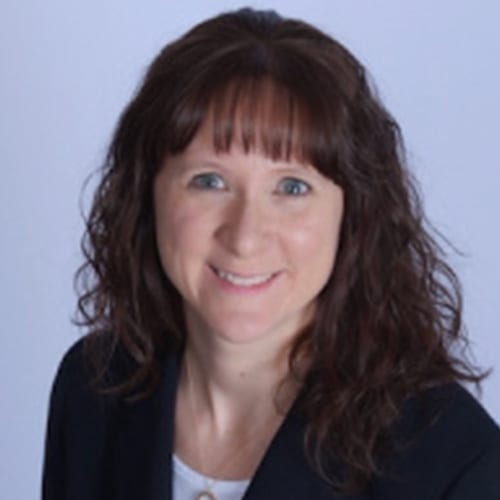
Kelly Barner is the Owner and Managing Director of Buyers Meeting Point and MyPurchasingCenter. She has been in procurement since 2003, starting as a practitioner and then as the Associate Director of Consulting at Emptoris. She has covered procurement news, events, publications, solutions, trends, and relevant economics at Buyers Meeting Point since 2009. Kelly is also the General Manager at Art of Procurement and Business Survey Chair for the ISM-New York Report on Business. Kelly has her MBA from Babson College as well as an MS in Library and Information Science from Simmons College and she has co-authored three books: ‘Supply Market Intelligence for Procurement Professionals’, ‘Procurement at a Crossroads’, and ‘Finance Unleashed’.
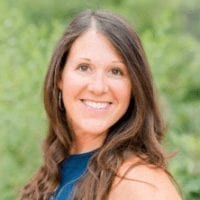
Maureen Woolshlager started her career at McMaster-Carr’s Management Development Program working in sales, marketing, distribution operations, finance and accounting. After McMaster-Carr, she spent a year managing operations in one of Target Corporation’s warehouses before finding a role within a small management consulting company in Denver, Colorado. She worked on large projects for international food and restaurant companies and advised on account management, business development, operations management, warehouse operations, continuous improvement and distribution center operations, and procurement/supplier/inventory optimization. She has spent the last 9 years living in Belgium & Germany where her husband has been stationed as a US Army officer. Maureen has her B.A. from Emory University. She earned a certificate in Management & Marketing from the Wharton School at the University of Pennsylvania & her M.B.A. from the University of Phoenix. Learn more about Vector Global Logistics here: https://vectorgl.com/
